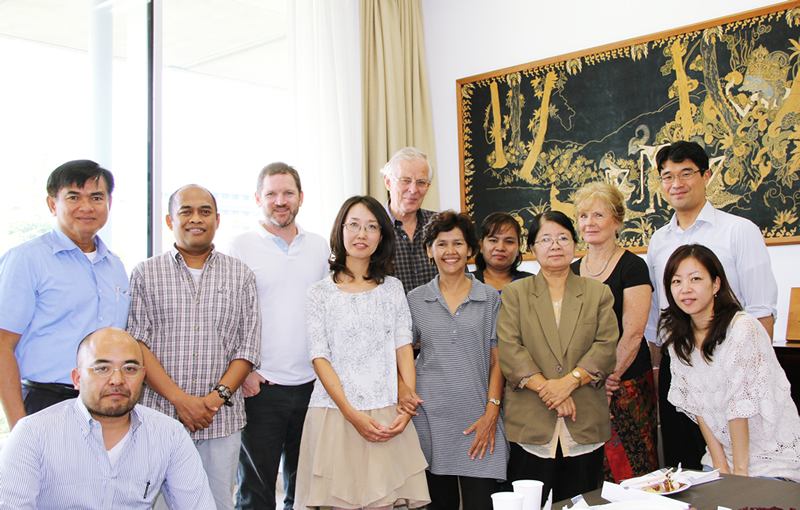
CSEAS FELLOWSHIP
To those who are interested in the CSEAS fellowship, due to COVID-19,
applications will be postponed until further notice.
To those who are interested in the CSEAS fellowship, due to COVID-19,
applications will be postponed until further notice.
Fellowship Slots and Periods
Seven fellowships, including one librarian position, will become available on the following dates:
- 1) October 1, 2020
- 2) December 1, 2020
- 3) January 6, 2021
- 4) January 19, 2021
- 5) March 1, 2021
- 6) April 1, 2021
Eligibility
Applicants must be productive scholars of high reputation under 65 years of age at the time of the fellowship appointment; those over 65 may be considered only if they are outstanding. This fellowship is not available to individuals currently pursuing graduate degrees or post-doctoral studies. Only experienced librarians are eligible to apply for the library position. Scholars who have previously held CSEAS fellowships must wait six years after the completion of their fellowships before reapplying.
Application Procedure
Applicants must submit their applications via our online form. Online applications must have the following documents attached separately.
- a) A completed online application form
Please send the files in PDF format by E-mail (grants@cseas.kyoto-u.ac.jp) - b) A curriculum vitae (must not exceed 5 pages and must include a list of all major publications)
- c) A research plan for the fellowship term (Please write a concise overview of your research project for your stay at CSEAS within 2 pages. Please download and use this form. Please use double space and include paragraph descriptions.)
- d) Two Recommendation Letters (Applicants must also contact their respective referees and request them to send their letters of recommendations to CSEAS via email. The letter should be written in their institution’s letterhead.)
Application Deadline
Applications for the 2020-2021 fellowships must reach us no later than February 29, 2020. We regret that we cannot entertain individual queries or follow-ups about the results of selection by email, fax, or telephone. Applicants will be notified of their application status by the end of April 2020.
CSEAS Fellowship
Since 1975, CSEAS has had an established visiting scholarship program to promote research activities in and on the region by distinguished scholars. To date, over 400 – many of them leading researchers in their respective fields- have availed themselves of the Center’s considerable scholarly resources to engage in path breaking, multidisciplinary research and develop comparative, historical, and global perspectives on Southeast Asia.
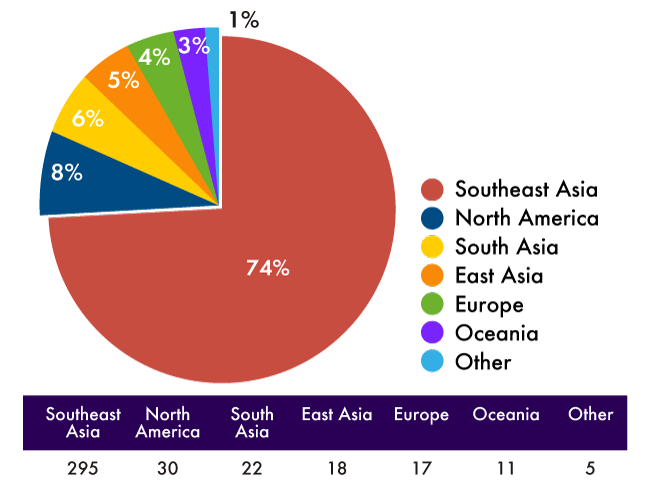
CSEAS hosts scholars and researchers who work on comparative and regional issues from a multi-area perspective, and are interested in spending time in Kyoto, Japan to conduct research, write, or pursue other scholarly interests in connection with their field of study. With considerable scholarly resources, CSEAS also offers the invigorating atmosphere of scenic Kyoto, the ancient capital of Japan and the main repository of the country’s cultural treasures, to enable researchers to pursue their interests in Southeast Asian area studies.
The Center’s multi-disciplinary character and the diverse research interests of our faculty offer visiting research scholars an ideal opportunity for the exchange of ideas, collaboration, and the cultivation of comparative perspectives.
Fourteen fellowships are awarded annually on a competitive basis. Fellowships are between a period of three to six-months.
Applicants are not limited to scholars: CSEAS has hosted government officials, journalists, public intellectuals, librarians, NGO workers, IT specialists, and other professionals on short-term visits.
While in Kyoto, we encourage scholars to participate in CSEAS conferences, seminars, and workshops and submit articles to the Center’s flagship journal Southeast Asian Studies, The Kyoto Review of Southeast Asia, and the CSEAS Newsletter. Fellows are expected to reside in Kyoto for the duration of their fellowship and deliver a public lecture during their term. We also encourage fellows to consider submitting manuscripts to one of our book series.
Successful applicants will receive an appropriate stipend to cover international travel and living expenses in Kyoto and research funds will be provided to facilitate work. Funds will also be allocated for domestic travel, subject to government regulations. Visiting Research Scholars are considered as employees of Kyoto University and are therefore subject to some of the University’s regulations.
Testimonials
Charnvit Kasetsiri (Thailand)
I was at the Kyoto Center for Southeast Asian Studies two times. The first one was for a full year in 1977 right after the 6 October 1976 coup. The second was for nine months in 2014-15, right after the 22 May 2014 coup. I was fortunate to have applied to be there well ahead of time and I must say that I did not expect the coups, especially the 2014 one, were coming. I enjoyed living and working in Kyoto, away from troublesome Bangkok and my University Thammasat.
My impression of CSEAS is that it is a good place for academic work. It has good academic staff and good library. In 1977 senior sensei like Ishii Y., Yano T., Fukui H. were around; the staff was small enough that we got to know one another well. I was amazed to find out that these Japanese scholars had good, or sometimes even better knowledge of Southeast Asia and my country Thailand. The research library was developing in such a way that by 2014, I could find books and materials for my Thai history research. One must remember that in the 1970s Japan did not have good image in Southeast Asia. Anti-Japanese feeling was running high when Premier Tanaka Kakuei visited five Southeast Asian countries in early 1974 (the Philippines, Thailand, Singapore, Malaysia and Indonesia, January 7 to 17). Kyoto and CSEAS gave me a different image of Japan. I came to appreciate the Japanese way of life, its culture and fresh raw sashimi. On top of that, biking in Kyoto, back and forth to the Center, is beyond description.
Being attached to CSEAS I have opportunity to be more involved in cultural and academic bi-lateral exchanges with Japan and its academics, as well as multi-lateral with other Southeast Asian countries. From here I came to be familiar with the Toyota Foundation, Japan. The Foundation and CSEAS helped me cross into neighboring mainland Southeast Asia as well as the island world like Indonesia and the Philippines. Via my CSEAS Japanese friends I got to know those in Myanmar, Laos, Vietnam, Indonesia, etc. And my Thammasat became the first Thai university, in the year 2000, to establish a B.A. program in Southeast Asian Studies. On top of this a good number of books/translations and manuscripts on Southeast Asia in the Thai language are an outcome of my connection with CSEAS. Much thanks and appreciation. Arigatou and ookini.
Professor Emeritus, Thammasat University Former CSEAS Visiting Research Scholar
Dates 1977
June 2014-February 2015
Resil Mojares (Philippines)
My six-month stint as a visiting fellow at the Center for Southeast Asian Studies in 2000 was a most pleasant, productive, and memorable experience-in part because the city of Kyoto offers the charm and solace perfect for a writing retreat; in part because CSEAS is a quietly supportive, stimulating haven for intellectual work. Such fellowships as I enjoyed address an important need in a region where the conditions of academic work in the scholar’s home environment often constrain the free pursuit of writing and research. By offering a fellowship that is well-endowed, flexible in its priorities, and one that is not over-managed, CSEAS offers a rare and vital service to scholarship in the region. By thus becoming a focal point for Southeast Asian scholars to come together, CSEAS nurtures the spirit of intellectual sharing, collegiality, and community.
CSEAS has created an environment perfect for this purpose: low-profile and relaxed; excellent physical facilities; a good, working library; a small but top-notch resident faculty; and (not least) an efficient, self-effacing staff. It is also rightly-sized, not too big as to depersonalize the kind of work that takes place at the Center.
People have recognized for a long time now that “Southeast Asia” is a dynamic construct that should be defined and shaped from within, and that studies pertaining to the region must have their base and center of gravity within the region itself. CSEAS is leading the way in turning these aspirations into a reality in the field of scholarship.
I consider CSEAS in Kyoto the best of the centers of its kind, whether located in or outside the region. It is sensitive to the priorities and needs of scholarship in Southeast Asia, yet not agenda-driven; collaborative and region-based not only in its aims but its practices; and respectful and supportive of what, at the heart of it all, is the individual exercise of dedicated and responsible scholarship.
Professor Resil Mojares
Emeritus, University of San Carlos, Cebu City, Philippines
Former CSEAS Visiting Research Scholar
June-December 2000
Hsin-Huang Michael Hsiao (Taiwan)
My three-month tenure as a foreign visiting scholar at the Center for Southeast Asian Studies in Kyoto University was between October 2015 to Jan 2016 and offered a very intellectually productive and culturally rich experience. I successfully completed my tasks to complete a research project proposal on the comparative study of the tripartite links between the middle class, civil society and democratization in Taiwan, South Korea, the Philippines, and Thailand. From this, at a later date, I was able to invite scholars from CSEAS and GRIPS in Japan, along with experts from Taiwan, to join two international workshops to present papers on the topic at my Institute of Sociology, Academia Sinica (Taipei, Taiwan) and at GRIPS
(Tokyo, Japan) in September and December, 2016.
At present (2018) I am excited to report that all the revised workshop papers will be complied in an edited volume titled, Middle Class, Civil Society, and Democracy in Asia to be published shortly (2018 Routledge).
In retrospect, I am grateful to the CSEAS fellowship in that it offered me a calm and pleasantly intellectual environment to pursue my proposal writing and develop necessary scholarly networks to build up my research team.
Furthermore, during my stay there, I even facilitated the institutional collaboration between CSEAS-Kyoto and CSEAS-NCCU to sign a MOU to co-sponsor academic programs in the following years. I also had plenty of opportunities to attend lectures and seminars organized by CSEAS and many informal, yet stimulating discussions, with resident scholars and fellows. It was indeed a luxury to indulge myself in such a free spirit exchange with first rate academics in CSEAS.
My wife also greatly benefited by accompanying me to visit CSEAS. She was graciously invited to hold an art exhibition to celebrate CSEAS’s 50th Anniversary. We of course would not miss this rare occasion to explore the culture and beauty of this ancient Japanese cultural capital. This enriched and deepened our understanding of Japanese culture, nature, and the city landscape.
I would like to join many other international scholars who have been greatly benefitted from CSEAS fellowships and assert with great confidence that CSEAS is a leading research institution in Southeast Asian Studies. The fellowship has definitely nurtured and fostered the precious intellectual spirit of freedom and sharing. Thank you, CSEAS.
Professor Hsin-Huang Michael Hsiao
Distinguished Research Fellow of Institute of Sociology, Academia Sinica
Professor of Sociology, National Taiwan University and National Sun Yat-sen University
Chair Professor, National Central University
Former CSEAS Foreign Visiting Research Scholar
October 2015 – January 2016
Chris Baker (United Kingdom)
Pasuk Phongpaichit (Thailand)
We visited the Center in 1998 when Pasuk was invited to Japan by the Japan Foundation and have been fortunate to have two 6-month fellowships- from September 2004 to March 2005 when Pasuk was hosted by Professor Shiraishi Takashi, and from November 2011 to April 2012, when both Chris and Pasuk (for part of the time) were hosted by Professor Sugihara Kaoru.
Pasuk has also made several shorter visits to the Center under the JSPS-NRCT Core University Program headed by Professor Shiraishi and later by Professor Mizuno Kosuke. From this latter program emerged The Rise of Middle Classes in Southeast Asia edited by Shiraishi Takashi and Pasuk Phongpaichit (Kyoto University Press and Trans Pacific Press, 2008) and Populism in Asia edited by Mizuno Kosuke and Pasuk Phongpaichit (Kyoto University Press and NUS Press, 2009).
For visiting scholars such as us, the Center offers a unique experience. First, it is an opportunity to devote oneself full-time to a major project. Over our 2004-05 stay, we completed our A History of Thailand, which is now in its third edition, and also began translating the folk epic, A Tale of Khun Chang Khun Phaen, completed and published seven years later. Over 2011-12, we worked mainly on a project about inequality, since published as Unequal Thailand: Aspects of Income, Wealth and Power (Singapore: NUS Press, 2016).
Equally important is the chance to interact with the staff and projects of the Center, and to learn from the Center’s special culture of interdisciplinary work. We were privileged to attend one of the launching events for the “Sustainable Humanosphere” project, and several years later to attend its final conference. Both the process and the end-product of this pioneering project are very inspiring.
A special feature of the Center is the opportunity to meet and discuss with other visiting scholars who come from all over Asia and beyond and who study different parts and different aspects of Asia within many disciplines. These encounters offer unplanned and unexpected learning experiences. We have attended several seminars and short conferences on topics which would not normally have drawn our attention but which provided opportunities to learn “outside the box” of our usual concerns.
Finally, the sheer elegance of Kyoto as a city can sometimes be a distraction from academic work but on balance serves as a source of inspiration. Cycling along the Kamo River between the Center and the Shugakuin Hostel through the changing seasons is therapy for the mind.
CSEAS has built a pre-eminent position in the world of interdisciplinary scholarship on the Asian region.
Its contribution is found in its journals, publications, library resources, databases, conferences, seminars, and projects, but also in its efforts to foster the human contacts and personal academic exchanges which are the traffic of intellectual life.
Pasuk Phongpaichit Professor, Chulalongkorn University
CSEAS Visiting Research Scholar
Dates September 2004-March 2005
November 2011-April 2012
Chris Baker Writer and Scholar
CSEAS Visiting Research Scholar
Dates November 2011-April 2012
Janet Hoskins (United States)
I was at CSEAS from December 2010 to May 2011, which was a year with a harsh winter, a huge earthquake and tsunami, and a beautiful spring. For Japan, it was perhaps “the best of times and the worst of times.” I saw the incredible devastation caused by the Tohuku earthquake, but also the outpouring of support for the victims. I saw the government fail to address radiation dangers adequately, but also the heroism of particular workers who tried to repair the leaks at the nuclear power plant in Fukushima. It was a time when the people of Japan were tested by horrific events and showed an admirable fortitude and solidarity.
CSEAS was known to me as a regional studies center which had a distinguished history and was linked to a number of important publications. I had not been aware of many of CSEAS’s other activities in sponsoring conferences on current events and bringing together scholars who work on environmental issues. I was familiar with the work of anthropologists and historians who had been affiliated with CSEAS, but had not realized the links that the Center has to activism and the political transformation of the region. Since my own work is on transnational religion, I had been especially interested in the linkages between the new Vietnamese religion of Caodaism and some of the “Oomoto lineage” new religions in Japan.
My main goal during the time that I spent at the Center was to finish a book manuscript and to learn more about Japanese religion. Kyoto proved to be a wonderful place to do both of these things. I was very happy to meet a range of scholars from different countries who study Southeast Asia. I attended a wide range of seminars and workshops, and also went on field trips to monasteries, temples and mountain retreats in the area. There was a wonderfully congenial atmosphere at the Center which was combined with a serious devotion to scholarship and research productivity.
When I had a serious bicycle accident just a few weeks before the end of my stay, I got incredible assistance from CSEAS staff and especially my sponsor Yoko Hayami. I will always be grateful for her help at that time of pain.
CSEAS has helped to foster and continue dialogues across the Pacific about Southeast Asian cultures and how they are changing in today’s globalized world.
Regional studies have been challenged in recent years by the new ways in which we are all increasingly connected, so I see an emerging model of “Transpacific Studies,” in which people from both sides of the Pacific are part of an interactive, mutually constitutive dynamic process. I am hoping build new “Transpacific bridges” (which will, of course, be conceptual “bridges,” not real ones!) through increased contact between Asia and North America.
Japan is well situated to contribute to our knowledge of Southeast Asia because of its long history of involvement in the region, its educated citizens, and its commitment to scholarship. Globally, there are still language issues in communicating with many Japanese scholars, but publications like the journal of Southeast Asian Studies have made this less of a barrier. Collaborations with institutions like the Asia Research Institute at the National University of Singapore have also created a context for more inter-Asian dialogue and research collaboration.
Professor Janet Hoskins
Former CSEAS Visiting Research Scholar
Dates Dec 2010 – May 2011
OOI Keat Gin (Malaysia)
Twin Interludes
Twice, not once, I was a visiting research fellow of the Center for Southeast Asian Studies (CSEAS), Kyoto University, Kyoto, Japan. My initial residence was a three-month stay from mid-July to mind-Oct 2015. On the second occasion, it was a similar duration in 2016. Kudos to CSEAS for its flexibility in arranging the allotted six-month sojourn into two phases owing to other commitments that were less than accommodating. Seizing this present opportunity, my gratitude to those managing CSEAS then in demonstrating less than dogmatic observance of rules and regulations.
Intellectually, the twin interludes during the Kyoto summer were indeed beneficial. Seclusion afforded deep contemplation, thoughtful reflection. All the thinking, deep or otherwise, were effectively and readily transformed into words on the notebook screen. In penning a book, solitude was an asset, an ambience of indulgence for the writing craft, thoughts flow into words, words dressed a page, and several pages thereafter, a manuscript (for submission). Whether in my assigned office in CSEAS or in my apartment in Shugakuin, the environment nurtured creativity that transferred into completed papers, chapters, volumes in clockwork fashion. Over the space of two sojourns, the final accomplishment, writing-wise, was laudable, if not, impressive, viz. two working papers, two edited volumes, and a single-authored monograph. Admittedly the last mentioned had commenced much earlier in various other venues but was completed at CSEAS. Prolific penmanship and editing work owed much to the minimum of interferences. Encountered distractions faced by most serving academics commonly included a series of fruitless meetings, nuisance of unfinished administrative paperwork, and various other time-sapping bureaucratic demands, were all pleasantly ‘missing’ during my residences.
Again intellectually, I partook and enriched my knowledge and appetite, thoughts and insights in Japanese sociocultural practices, history, and heritage whilst sojourning in the ancient city of Kyoto. Weekends were spent cycling (one of life’s joys) around the historic city and outskirts, savoring the natural beauty as well as admiring the man-made edifices, the bustle of the city-center thronged with tourists and locals that were all profitable indulgences. Then there were the UNESCO-acknowledged world heritage sites (17 altogether then, if I recalled) were not only, mind the cliché, awe-inspiring, but also, fruitfully informative, a glimpse and a window into past achievements in both form and substance. Either enjoying the culinary delights of kaiseki, the traditional multi-course Japanese meal in an old-style restaurant, or simply standing and slurping (embarrassingly loudly) a bowl of soba (buckwheat noodle) at a roadside stall manned by an elderly couple, both were deep experiences of the senses.
Facilities at CSEAS itself and Kyoto University were commendable and supportive. Whether one was seeking assistance in the library or in one of the administration offices, staff were attentive, knowledgeable and helpful. Despite language and/or cultural barriers, smiles from all quarters overcame any obstacles. Daily living in Kyoto, the cuisine, the shopping, the parks, the cycling lanes, ‘polite’ traffic, the Kano river, the outskirts, and the salubrious weather (despite summer heat, typhoon warnings), all added to the rich, profitable, and unforgettable stay. My spouse, who spent shorter sojourns with me, was equally impressed, amused, delighted.
Professor OOI Keat Gin
Coordinator Asia Pacific Research Unit (APRU-USM)
School of Humanities
Universiti Sains Malaysia
Filomeno V. Aguilar Jr. (Philippines)
To have been affiliated with the CSEAS on a Visiting Research Fellowship was my distinct privilege and honor, first during the second half of 2001 and then from August 2010 to January 2011. During the first fellowship I completed an anthology on overseas migration, which was published in 2002 as Filipinos in Global Migrations: At Home in the World? The second fellowship enabled me to work on my book manuscript that saw publication in 2014, Migration Revolution: Philippine Nationhood and Class Relations in A Globalized Age (published in 2014 under the Kyoto CSEAS Series on Asian Studies). The research fellowships also gave me the opportunity to work on journal articles that were subsequently published in Southeast Asian Studies (vol. 41, no. 2, 2003) and the Journal of Global History (vol. 7, no. 3, 2012).
The research fellowships offered by the Center are truly valuable in providing the dedicated time and congenial environment to pursue scholarly work.
Stimulating conversations with the Center’s resident and visiting scholars enhanced my research, providing me leads to pursue as well as friendly encouragement in my work. As an academic based in the Philippines since 2003, I truly appreciate that the Center provides research opportunities free from the complexities of my home institution. Surely scholars from other countries in Southeast Asia would have a similar appreciation of the CSEAS.
By making the visiting research fellowships more competitive, the Center has also enhanced their prestige. These fellowships, I believe, are at the core of a flourishing network of scholars of Southeast Asia-which the Center has formalized into the Consortium for Southeast Asian Studies in Asia (SEASIA).
Beyond the fellowships for visiting scholars, the Center undertakes numerous activities, such as its program on young researchers and the various intersections with graduate degree programs in Kyoto University, which have contributed immensely to the training of a future generation of scholars and to knowledge production in and of Southeast Asia.
The Center’s decision to launch the English language journal, Southeast Asian Studies, in April 2012, while keeping Tonan Ajia Kenkyu as a Japanese language journal, has expanded the journal’s readership and positioned the Center as probably the only one in the world devoted to Southeast Asia that publishes its own high-caliber journal on the region. I am honored to be on its International Advisory Board.
In 2012 an important milestone was achieved when the Ateneo de Manila University’s Philippine Studies: Historical and Ethnographic Viewpoints and Southeast Asian Studies entered into a formal partnership. As a result, the two journals have cosponsored so far two international conferences, both of which were held at the Ateneo de Manila. “Historiography and Nation since Pasyon and Revolution: Conference in Honor of Professor Reynaldo C Ileto” was held on 8-9 February 2013. “Disasters in History: The Philippines in Comparative Perspective” was held on 24-25 October 2014. A third one will be held on 30-31 July 2018, “Bridging Worlds, Illumining the Archive: An International Conference in Honor of Professor Resil B. Mojares.”
All these innovative activities may seem like ordinary pursuits that the Center is expected to conduct anyway. However, given the travails of area studies in the United States, the Center’s activities gain tremendous significance. The expansion and growth of the Center for Southeast Asian Studies at Kyoto University signal in no uncertain terms the continuing relevance of Southeast Asian studies amid changing conditions in both Southeast Asia and the world. The CSEAS has engaged scholars of the region as equal partners and colleagues, unhampered by the ambitions of states and rulers.
Filomeno V. Aguilar Jr.
Former CSEAS Fellow
Dates 10 July 2001 to 9 January 2002
1 August 2010 to 31 January 2011
Peter Jackson (Australia)
Over the years, many colleagues in Thai studies and other fields of Southeast Asian studies have spoken glowingly of Kyoto University’s Center for Southeast Asian Studies (CSEAS) as providing an outstanding, international standard research environment and they have strongly encouraged me to spend time at the Center. Honoured to be selected to be a CSEAS visiting fellow for six months from October 2017, I was not disappointed. CSEAS not only deservedly lived up to its reputation, but the Center much exceeded my expectations before arriving in Japan. In an international academic environment increasingly driven by short-term neoliberal policies of “global rankings,” “publication metrics,” “performance indicators,” and market-based curriculums, CSEAS and Kyoto University more broadly stand out as centres of genuine free inquiry that value scholarly excellence above all else. And at a time when we are witnessing a disturbing darkening of the political climate across much of Southeast Asia, with repression and restrictions on academic inquiry and expression becoming increasingly commonplace, CSEAS stands out as a bastion of intellectual excellence based on a spirit of unfettered free inquiry into the societies and polities of the region.
However, from a personal perspective the most important and rewarding aspect of my all too brief stay at CSEAS was the unanticipated discovery of the genuinely large numbers of Japanese scholars based at universities across the country who specialise in Thai and Southeast Asian area studies but who publish almost exclusively in Japanese-language journals and monographs. I ashamedly admit that before my time at CSEAS I knew almost nothing of the impressive size and depth of the world of Japanese-language scholarship on Southeast Asia. Happily, my time at CSEAS coincided with the second SEASIA Conference, held at Chulalongkorn University in Bangkok in December 2017, where I was also able to meet many of the large contingent of Japanese scholars who participated in that internationally significant event.
Over and above its importance as an international standard research centre, CSEAS and initiatives such as the regular SEASIA conferences fulfil a vital role in providing a bridge between Japanese-language Southeast Asian studies and the mainly Anglophone worlds of research and inquiry on the region beyond Japan.
The welcoming staff in the CSEAS administration and library were marvellous in helping make the negotiation of the Japanese Government and Kyodai bureaucracies less intimidating. But over and above their day-to-day roles in helping international visitors such as myself, they and the academic staff of CSEAS provide crucial points of connection between the organisational and scholarly dimensions of the Japanese and international academies. The only regret of my time at CSEAS is the realisation that I should have made the effort to spend time in Japan much earlier in my academic career. I very much hope to make up for past omissions by exploring options for developing future collaborations with the new colleagues I met while based at CSEAS.
Prof. Peter A Jackson PhD
Emeritus Professor, College of Asia and the Pacific
Australian National University, Canberra
Membre Associé, Centre Asie du Sud-Est, CNRS-EHESS, Paris
October 2017 – March 2018
Latsamay Sylavong (Laos)
In 2013, CSEAS provided me with a six-month fellowship to stay at the Center. This was a very productive and memorable experience allowing me to participate in various seminars, conferences, colloquia, and brown bag lectures, as well as the nice attractions of Kyoto city. The fellowship provided me a great opportunity to prepare a working paper to share and discuss my work with professors and colleagues within CSEAS. I was impressed with the professionalism of CSEAS, and benefited from the facilities that supported my stay. The Center provided space for flexible academic thinking. The pleasant and quiet surroundings were an excellent setting for the Center’s academic culture of exchange of ideas. This included the permanent staff of the Center, affiliated institutions within the University and students. The relationships I formed with other fellows from various fields of research and countries helped me to broaden my thinking, as well as making me think about ways to collaborate across the region. CSEAS offers a vital environment for scholarship in the region. Working in the field of environment and natural resources, I particularly enjoyed the Center’s approach to integrating social, environmental and ecological issues into their area studies.
I found CSEAS to be perfect for my fellowship, providing an excellent environment in a traditional city. My daily routine of cycling to the Center, focusing on my writing, accessing the many libraries in the University system and joining stimulating seminars was a unique experience.
Although we are all studying Southeast Asian studies, being in Kyoto opened up many opportunities to learn from what is going on in Japan. For me, learning about Satoyama initiatives provided a new perspective on local resource governance. There were many useful comparisons and insights, which I shared with colleagues after I returned to Laos. From my own experience, strong environmental leadership in academia will help influence decision-making processes in various areas.
I really feel CSEAS in Kyoto is one of the leading centers suited to the academic priorities and needs of scholarship for experienced professionals to achieve their expectations/ goals in their respective fields of scholarship.
The Center provides many different types of support to make sure that scholars make connections, share ideas and have the right environment for fellows to be productive.
Latsamay Sylavong
Former Country Director of International Union for Conservation of Nature (IUCN)
Former CSEAS Visiting Research Scholar
Dates June – December 2013
Virginia Shih (United States)
It was indeed an honor and privilege for being invited as a visiting research scholar at the Center for Southeast Asian Studies (CSEAS) of Kyoto University from September 1, 2012 through February 28, 2013. Attending the Center’s events, workshops, seminars and staff meetings during my 6-month research residency was truly an eye opener to understand why and how things were conducted and learn about the quality of scholarship among presenters and the leadership of event organizers. I fulfilled my research objective in exploring the priorities, challenges, and prospects of Southeast Asian studies at CSEAS as a “Center of Excellence” for my overall understanding of Japanese contributions to Southeast Asia scholarship and librarianship. At the end of my research residency, I submitted an essay on “Exploring Southeast Asian Studies Programs and Scholarly Treasures in Japanese Institutions: A Preliminary Fieldwork Survey” which was published in CSEAS Newsletter No. 67, Spring 2013.
CSEAS has been, is, and will remain as one of most dynamic, innovative leading research centers in global Southeast Asian studies.
Given its geographic convenience in Asia, CSEAS has its advantage to establish and sustain a global network with various prestigious institutions interested in Asian/Southeast Asian studies through bilateral or multilateral memoranda of understanding, academic exchange agreements, collaborative research programs, field stations and overseas liaison offices. CSEAS has been successful in inviting local, regional, national and international academic communities to lead, contribute or participate in various public lectures, seminars, conferences, colloquia, workshops, and social events that provide an ongoing international momentum and forum for the research and teaching community to foster global area studies discussions in interdisciplinary, multidisciplinary, and cross-disciplinary areas within and beyond Asia. Among numerous academic achievements that CSEAS has accomplished regionally and globally in almost half a century, it is gratifying to see the open access of Southeast Asian Studies journal to promote Southeast Asia scholarship to a worldwide English-speaking audience as well as the inauguration of the Consortium for Southeast Asian Studies in Asia (SEASIA) in 2013 and its first biennial conference of SEASIA in December 2015 in conjunction with celebrating the 50th anniversary of CSEAS. I sincerely extend my heartfelt congratulations and blessings that CSEAS will continue to flourish as the worldclass research institute in Southeast Asian studies with distinguished faculty, researchers and graduate students as well as extraordinary resources to sustain global academic community building and networking to serve the local and global community of Southeast Asian studies in the next few decades to come.
Virgina Shih
Librarian, South/Southeast Asia Library,
University of California, Berkeley
Former CSEAS Visiting Research Scholar,
September 2012-February 2013
Nipaporn Ratchatapattanakul (Thailand)
I was a three-month visiting fellow at the Center for Southeast Asian Studies in 2015. As an alumna of the Graduate School of Asian and African Area Studies (ASAFAS), Kyoto University, I felt as if I had returned to my academic homeland. Although I was familiar with the staff and academic facilities of CSEAS, I found discovered new experiences toward academic work as a visiting fellow. CSEAS has created a perfect environment for research and I was write an article throughout the day at my personal research office. Besides this, my stress was relieved by listening to my favorite relaxing music and watching lovely autumn view from my office’s window. I had lunch with neighbouring scholars and we shared not only academic matters, but also our experiences from our personal life. During some weekends, we participated in a one-day trip organized by CSEAS and, for instance, went hiking up Arashiyama. What impressed me most is the warm welcome to join a trip even if we had not known each other previously. Until now, the relaxing music and memories remind me of my pleasant academic time at CSEAS. I was able to finish writing and at the same time prepare for a new research proposal during the three-month visiting. This was truly a productive time in my life.
Apart from the peaceful environment, CSEAS has significantly created an environment for forming academic connections. The special talks and seminars of well-known scholars and newcomers were held at Tonan-tei around twice a month. As CSEAS’s academic staff possess diverse experiences, I enjoyed the variety of topics and could connect with the participants who attended these events. Indeed, CSEAS’s academic staff are a key element to the friendly atmosphere that exists. They treated all of the presenters and participants very well. I believe that CSEAS’s academic and administrative staffs have rich experiences and an especially good outlook toward international academic affairs.
As such, I trust that CSEAS can continue to be another principal academic homeland for everyone and not just restricted to former Kyoto University alumni such as myself.
Nipaporn Ratchatapattanakul
Lecturer, Department of History, Thammasat University, Bangkok, Thailand
Former CSEAS Visiting Research Scholar
October-December 2015
Recent fellows
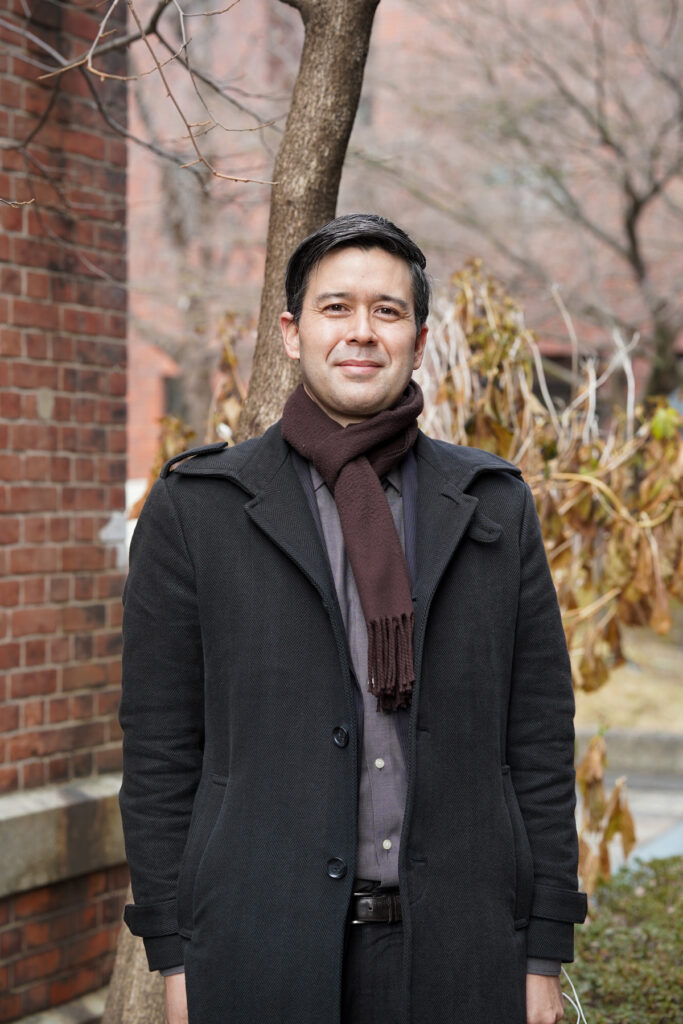
Michitake Aso
Vietnamese Responses to Environmental Warfare and Disease
My current project examines a history of Vietnamese experiences with environmental warfare and diseases exacerbated by warfare during the Cold War. Those living in North and South Vietnam (and Laos and Cambodia) faced an environmental and social apocalypse. But even as millions were injured or killed, many learned to survive environments rendered hostile in new ways. These experiences helped form a “coping environmentalism,” which is particularly relevant in today’s world where individuals and societies face existential threats of climate change, air and water pollution, and pandemics.
In Kyoto, I will write about an early Cold War moment, namely the (non) use of biological weapons by the French during the First Indochina War. Starting in 1952, the Viet Minh became convinced that the French were dropping biological agents in northern Vietnam, aimed for the most part at destroying food crops. This moment set in place certain patterns of Vietnamese responses to environmental warfare, including the cooperation among medical doctors, agronomists, and other kinds of scientists. Vietnamese scientists also reached out to their colleagues around the world, including both those in the communist and capitalist worlds, to study, document, and resist epidemics and environmental warfare. I will also work on a chapter that compares malaria control and eradication in North and South Vietnam from 1954 to 1975. Malaria control efforts in the north seemed to be much more successful than those in the south and I will explore a few possible explanations as to why.

SCHREURS, Jeanine
Towards Sustainable Living
The recognition that ending poverty must go hand-in-hand with strategies for social welfare and environmental protection, makes the UN Sustainable Development Goals (SDG’s) unique in history.
Moreover the UN calls on everyone to take action for sustainable living: “Be the change” is their slogan. This project addresses this current, urgent question, by 1. investigating possibilities for universal applicability of the “Lift your Life” action-program, that addresses the three core items of sustainable living (finances, eco-friendliness and health/wellbeing) in an integrated, practical way. Since 2012 this program was successfully applied in the Netherlands (around 1400 participants). 2. The second aim is to discuss and further develop the theoretical starting points of lifestyle transformation programs. Data will be collected through a focus group study and an expert consultation workshop. Previous investigations will also be elaborated. The general objective of my project will be a valuable contribution to theories and practices of sustainable living.
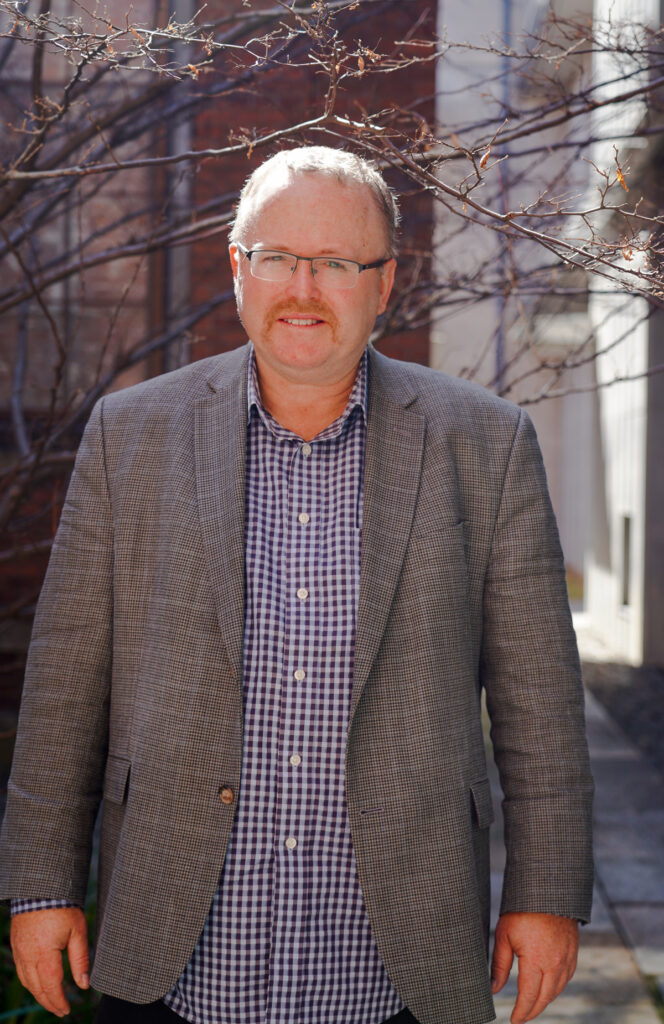
Paul Chambers
The Political Economy of Thailand’s Arch-Royalist Military
My research project derives from a book I co-edited entitled Khaki Capital: The Political Economy of the Military in Southeast Asia (NIAS, 2017). That book looked at Southeast Asia in general. My research project at Kyoto University more specifically focuses on Thailand. In Thailand, as in other countries, there are both direct and indirect methods by which the military (as an organization) or an individual military official gains profits. Direct military capital includes the budget but also military enterprises, investments, land, as well as positions on boards of directors. There is also indirect military income such as illegal “protection” money. As a profiteer from this “khaki capital,” the Thai military today perseveres as a prominent economic actor in Thailand because of its history in “developing” the countryside, its role in combating counter-insurgency, and its close relationship with monarchy (from which it receives much legitimacy). The dividends from such “khaki capital” are institutionally and individually alive and well today. My research will thus examine the history of “khaki capital” in Thailand.
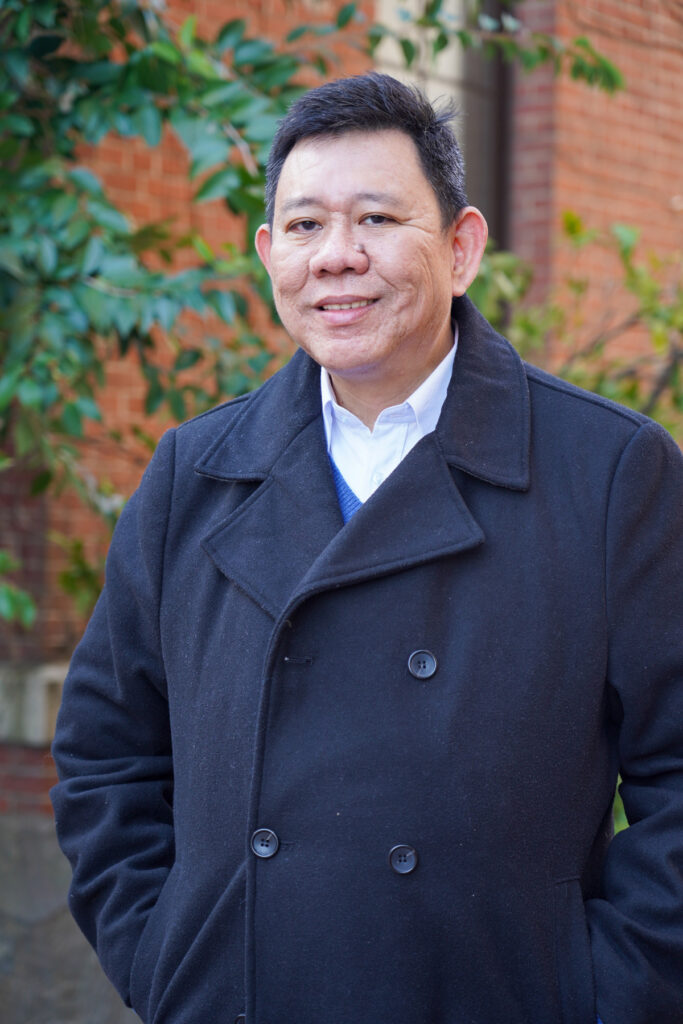
TEEHANKEE, Julio Cabral
Between Elitist Liberals and Illiberal Democrats: The Rise of Nationalist-Populism in Southeast Asia
The shadow of nationalist populism has been cast over Southeast Asia. Three decades since a wave of democratic revolutions swept authoritarian dictatorships out of power in the Philippines, Thailand, and Indonesia, a new set of “strongmen” has emerged to challenge the liberal democratic order. These three countries were formerly hailed as exemplars of democratization in the region. However, democratic consolidation in these countries has been ambivalent, often prone to democratic deficits. The post-financial crisis period coincided with the rise of the first wave of populists in the region. Charismatic and popular leaders like Joseph Estrada and Thaksin Shinawatra arose in these countries to espouse populist causes and to win the votes of the oppressed, amidst the failure of previous leaders to institute social reforms and consolidate democracy. The inability of middle class-based reformism and the continuance of money politics fueled a growing desire among the electorate for a new anti-elitist and pro-poor political program. Unsurprisingly, these two leaders were ousted by the military-backed liberal urban elites.
The second wave of populism in the region is marked by the politics of anger and frustration, not so much from the poor, but the urban middle class. This resentment was manifested by the near victory of former New Order lieutenant general Prabowo Subianto in Indonesia, the victory of controversial crime-busting mayor Rodrigo Duterte in the Philippines, and the consolidation of political power by retired general and junta leader Prayuth Chan-o-cha in Thailand. Cass Mudde described populism as “an illiberal democratic response to undemocratic liberalism.” This research will trace the emerging contours of political contestation in Southeast Asia between law and order, nationalist populists, and the liberal moral reformists. Moreover, it will critically assess the challenges to democratic consolidation and the uncertain future of liberal democracy in the region.
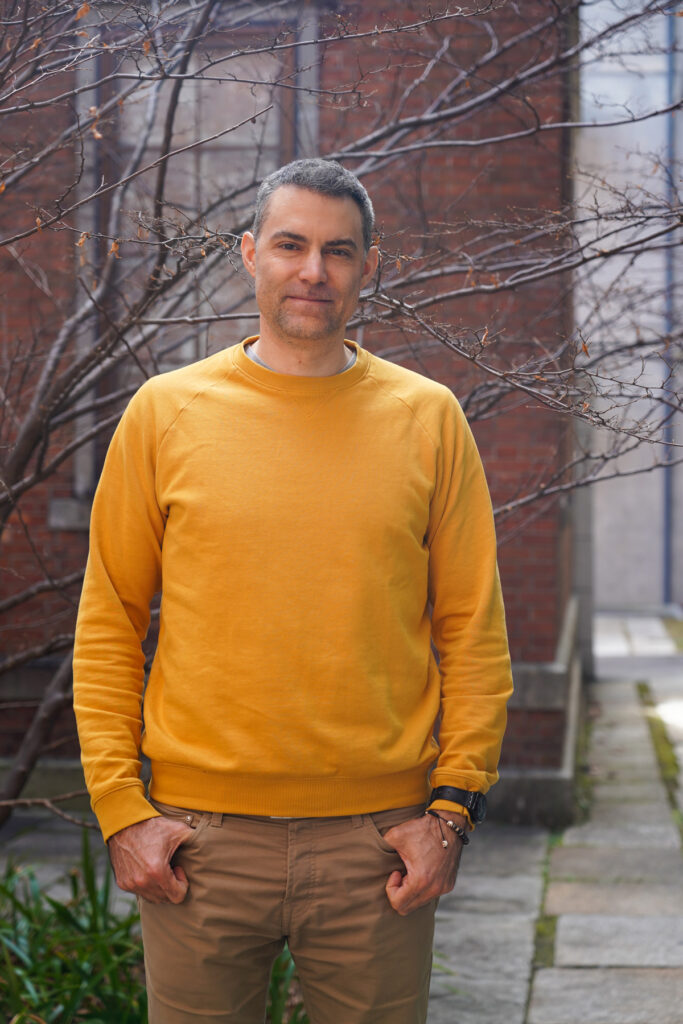
BUEHLER, Michael
The diffusion of shari’a laws in democratizing Muslim-majority countries: The case of Indonesia
My research project aims at explaining the diffusion of Islamic laws (shari’a) within democratizing Muslim-majority countries. The case study will be Indonesia. Most existing studies on the politicization of Islam under conditions of democratization have focused on national level politics. This focus misses the considerable spatial and temporal variance in the diffusion of shari’a laws within Muslim-majority countries. The project will examine this subnational variance in the diffusion of shari’a laws by combining methods from public policy research and political science in new and innovative ways. First, the research project will conduct a content analysis of over 1000 shari’a laws that have been adopted across Indonesia since 1998. Second, social network analysis will be used to examine the mechanisms through which these patterns have formed. The project’s working hypothesis is that networks within the government and the bureaucracy rather than groups situated in society explain variance in the diffusion of shari’a laws in Indonesia over the past 20 years.
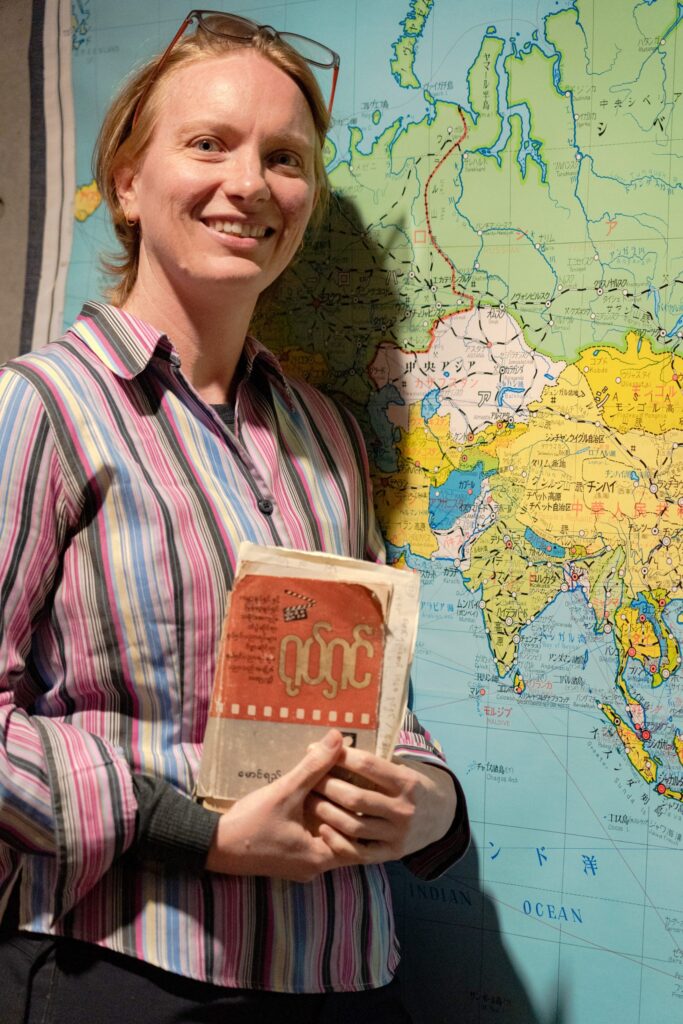
FERGUSON, Jane Martin
Silver Screens Golden Dreams: A Social History of Burmese Cinema
My research at CSEAS is an effort to use the lens of cinema, both figuratively and literally, to peep into Burmese history and culture. Whereas many silver nitrate reels have disappeared, this project, entitled Silver Screens Golden Dreams: A Social History of Burmese Cinema uses ethnographic interviews, an ongoing collection of old magazines, local sources and remaining films that were preserved by MRTV to explore Burmese history and social concerns as presented on the screens in the country’s hundreds of cinema halls and open-air cinemas over the decades. Burmese cinema’s tropes include Buddhist cinematic and plot elements, from the moral perils of gambling and alcoholism in the colonial days, to Burmese-style socialist realism and the ethnic unity films of the Ne Win years, to representations of Burmese traditional music and dance and the risky allure of rock n’ roll; all of these play into a creative and constantly-changing Burmese cinematic language, which is crucially framed by its political economies of production, yet finds dynamic new spaces for interpretation and spicy controversy. I am delighted to be here in Kyoto for the next six months, and I look forward to getting to know the many other scholars here at CSEAS.
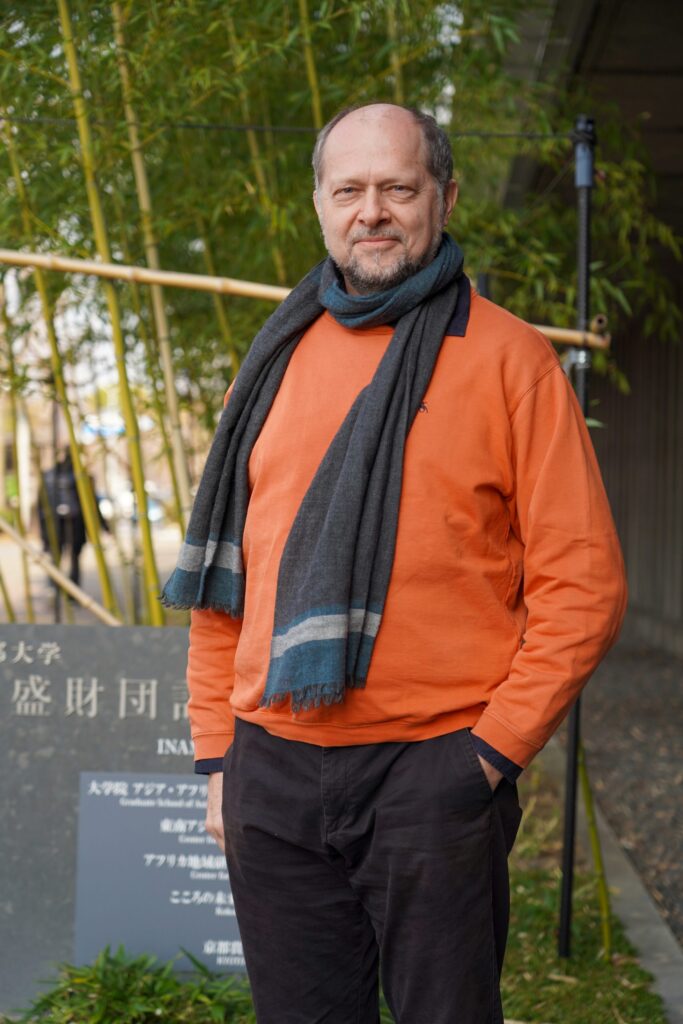
MOLLE, François Pierre Marie
A socio-environmental history of the Chao Phraya River Basin, Thailand
During my time at CSEAS I intend to capitalize on 25 years of research on the water sector in Thailand. This project first draws on a book project initiated twenty years ago on the history of water development in the Chao Phraya delta that I would like to further develop into a full socio-environmental story of 150 years of development of water resources in the whole Chao Phraya basin. My main objective is to unravel the intersecting economic, social, political, technical and agrarian transformations, and to describe and explain the intertwined evolutions of society and its environment, with a focus on water resources. Because of its ideal mix of water-related features (a wet season with flood problems, a dry season with insufficient supply to meet agricultural demand, water quality issues, highland/upland relationships and ethnic diversity, surface/groundwater use, the presence of a megacity (Bangkok) in its lower delta, a large diversity of uses, etc), the Chao Phraya basin offers a perfect setting to analyze how societies deal with various type of water-related challenges and how, in return, they are shaped by their changing water environment. This longitudinal study is also meant to contribute to the literature on socioecological systems and on political ecology. In parallel I am assembling and drafting material for a later book on institutional change in the Thai water sector over the past 30 years.
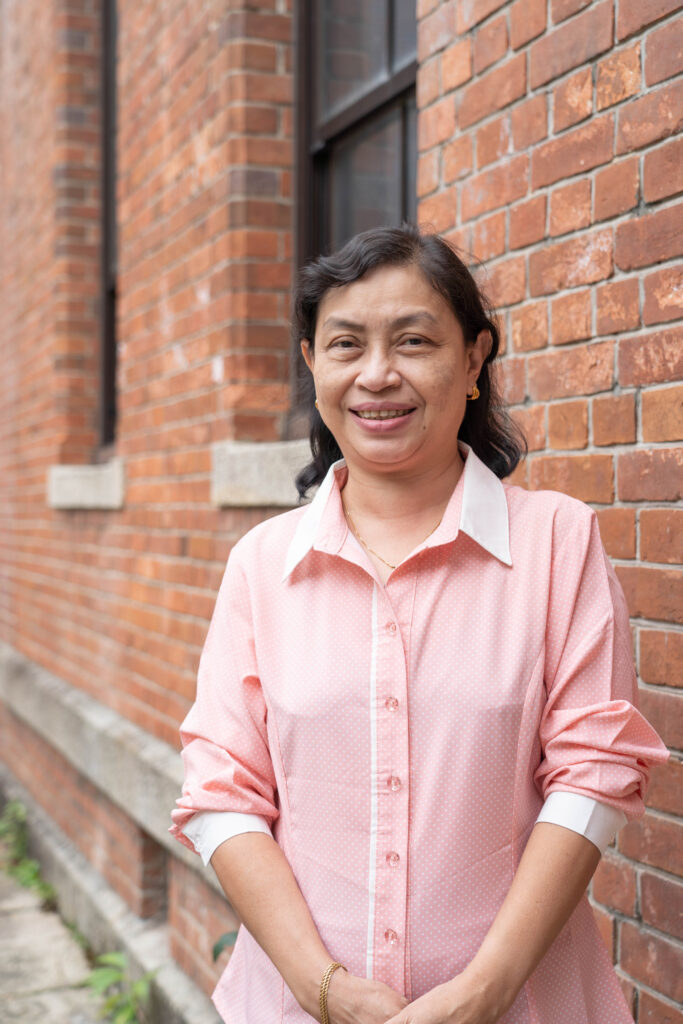
Ni Win Zaw
Professor (Head)
Department of Library and Information Studies
University of Yangon
An Annotated Bibliography of the Doctoral Dissertations Submitted to the University of Yangon (2000-2018)
My research at CSEAS will be to compile “An Annotated Bibliography of the Doctoral Dissertations Submitted to the University of Yangon (2000-2018)”. I aim to classify the listing of the dissertation entries for work in Geography, Psychology, Anthropology, Archaeology, International Relation, Library and Information Studies and Law. The objectives of the study are to comprehend the total research works on particular subjects or topics, to identify the strengths and weaknesses of doctoral research in particular subject areas, and to provide students and scholars a way to discover and analyze previous works of research.
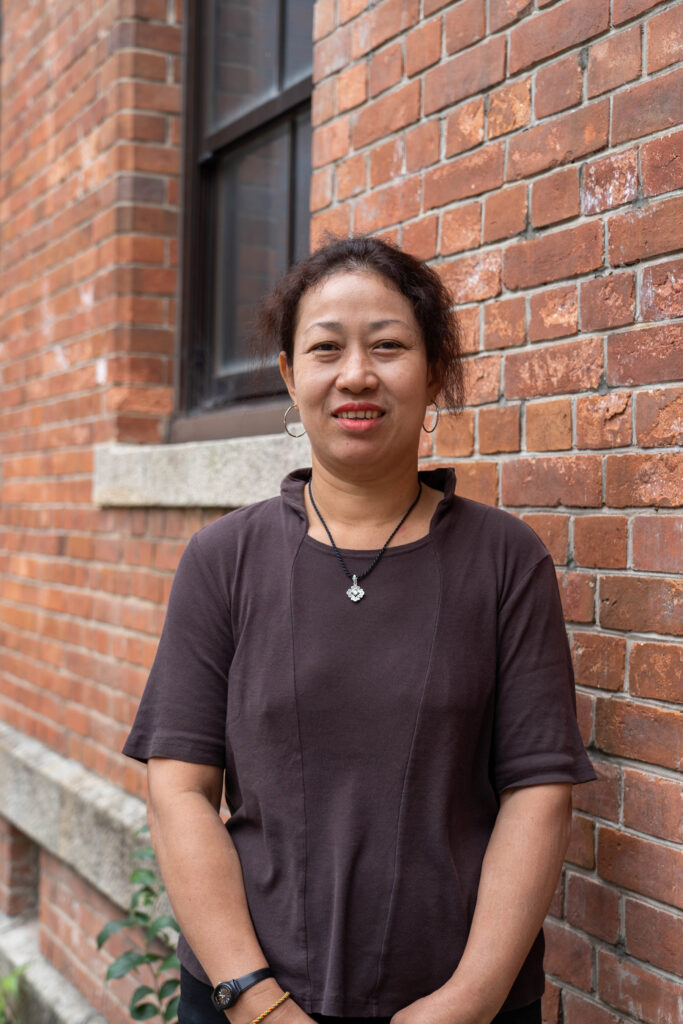
Min Min Htun
The Study of Literature Magazines Published in Myanmar (1941-1961)
Min Min Htun is a Lecturer from the Department of Library and Information Studies, Yangon University, Myanmar. She has fourteen years of work experience and nine years of research experience. In 2015, she studied Social and Demographic Research Methods at the Australia National University (ANU). She has recently published two research papers both locally and internationally, A Study on Selected Male Writers’ Handwritings Collected in The University of Yangon Library (2017, Local) and Impacts of Flood and River Bank Erosion on Human Livelihoods: A Case Study of Some Riverside Villages in the Lower Ayeyarwady (2018, Team Work, International).
During my three months (2019, October to December) at CSEAS, Kyoto University, I aim to identify the main literary information sources of monthly Myanmar magazines published between 1941 to 1961 with an emphasis on literature. Magazines are one of the most often accessed information resources by the general public. They usually include various literary forms and types of writings by numerous writers and cover a broad range of subjects. Most have generally dealt with issues relating to religion, culture, literature, arts, social science, economics, education, and sports, etc. For my research I aim to research a total of six magazines for analytical study through literary research and analysis. The results gained from the study will provide new knowledge on the position of magazines over fifty years ago in the world of Burmese literature.
I am happy and gratitude to have the opportunity to be a CSEAS visiting scholar. Hopefully, my research paper will be beneficial to those who are eager to understand the conditions and status of Myanmar magazines published over fifty years ago.
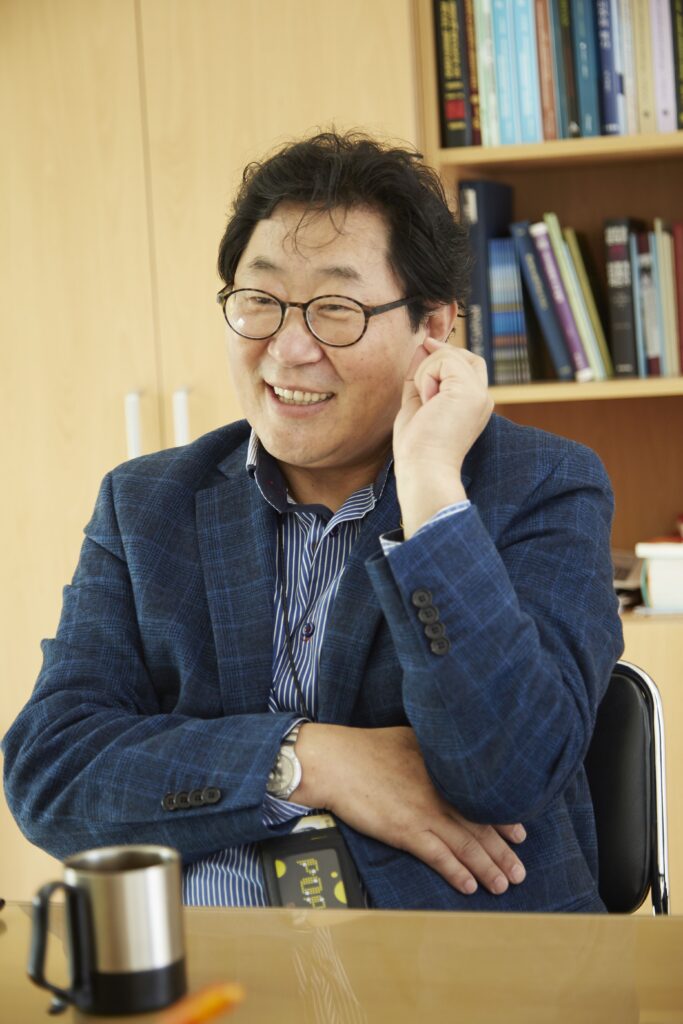
KIM, German
Transnational Migration Vs Repatriation of Koreans: Kin state and the metamorphosis of national, ethnic and diasporic identities from a comparative perspective
Over the last 5 years I was a visiting Professor in South Korean Universities and witnessed the remarkable new phenomena of the exodus of former soviet Koreans from CIS countries and immigration vs Repatriation to South Korea. According to the Immigration office the number of koryoin, that is ethnic Koreans from Central Asia and Russia boomed over a few years to reach 85,000. These newcomers are diverse in terms of their country of origin, age, gender and social status. The majority of them are labor Migrants earning money doing so-called ‘3-D’ work. The second largest group is made students, and the smallest consists of self-employed young koryoin shuttling between Korea and their native countries. While in Korea, I conducted interviews and surveys on the three main group of CIS ethnic Korean Migrants in South Korea. At CSEAS I will analyze the similarities and differences in the adaptation and acculturation strategies, metamorphoses in the loyalties toward kin and their host countries to clarify the multifaceted identities of ethnic migrants.
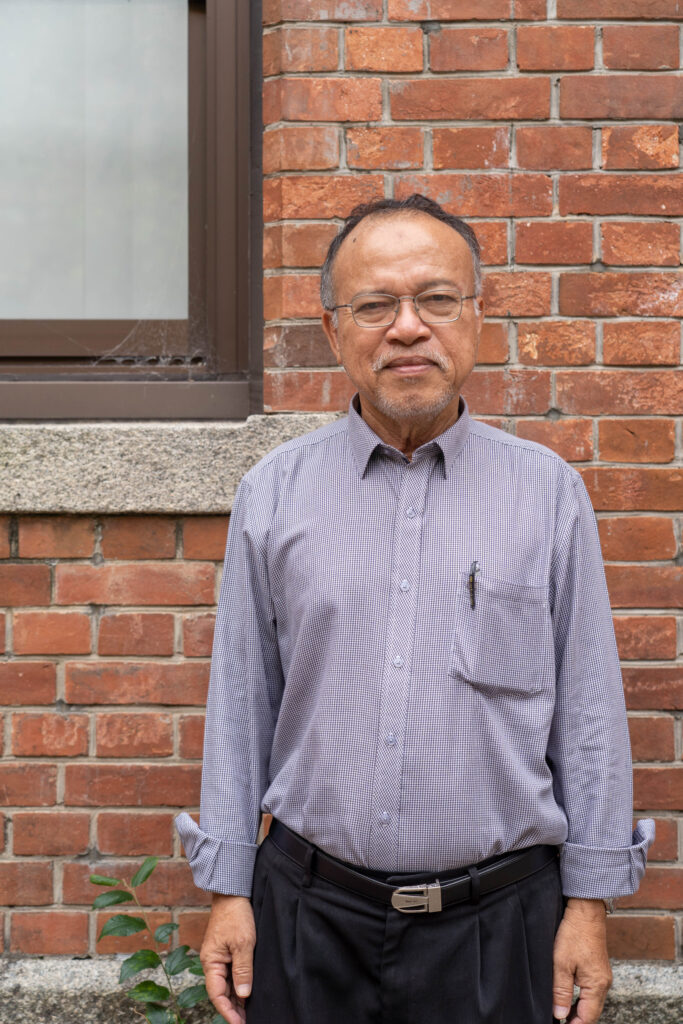
WAN ALI WAN MAMAT
The cataloguing and evaluation of Jawi Collections in the CSEAS Library
At present, Malay books in Malaysia are overwhelmingly written in Roman script although a limited numbers of Islamic religious books are written in Jawi. The process of introducing Roman script was initiated by the British from about the middle of the 19th century through the modern school system established by them. As more and more schools were established and attracted students, the usage of Jawi script slowly faltered. After independence in 1957, Roman script became the standard script in schools, administration and the book publishing industry although officially Jawi script can still be used. However, unfortunately at present, there are few persons who understand Jawi, mainly because it has no economic value and not used in administration.
Generally, Jawi has passed through three stages of development: classical Jawi (prior to 1940), Za’ba Jawi (1940-1990) and modern Jawi (1990 and after). Their differences are mainly due to differences in the application of vocal letters to represent the vocal sound system. Those who knows modern Jawi would find it difficult to read classical Jawi as found in Malay manuscripts.
My main responsibilities will be to catalog the library collections in Jawi script and to evaluate the collections from many possible perspectives. My other responsibility will be to write articles on Jawi script and Jawi manuscripts (texts written by hand) before the introduction of printing in Malaya.
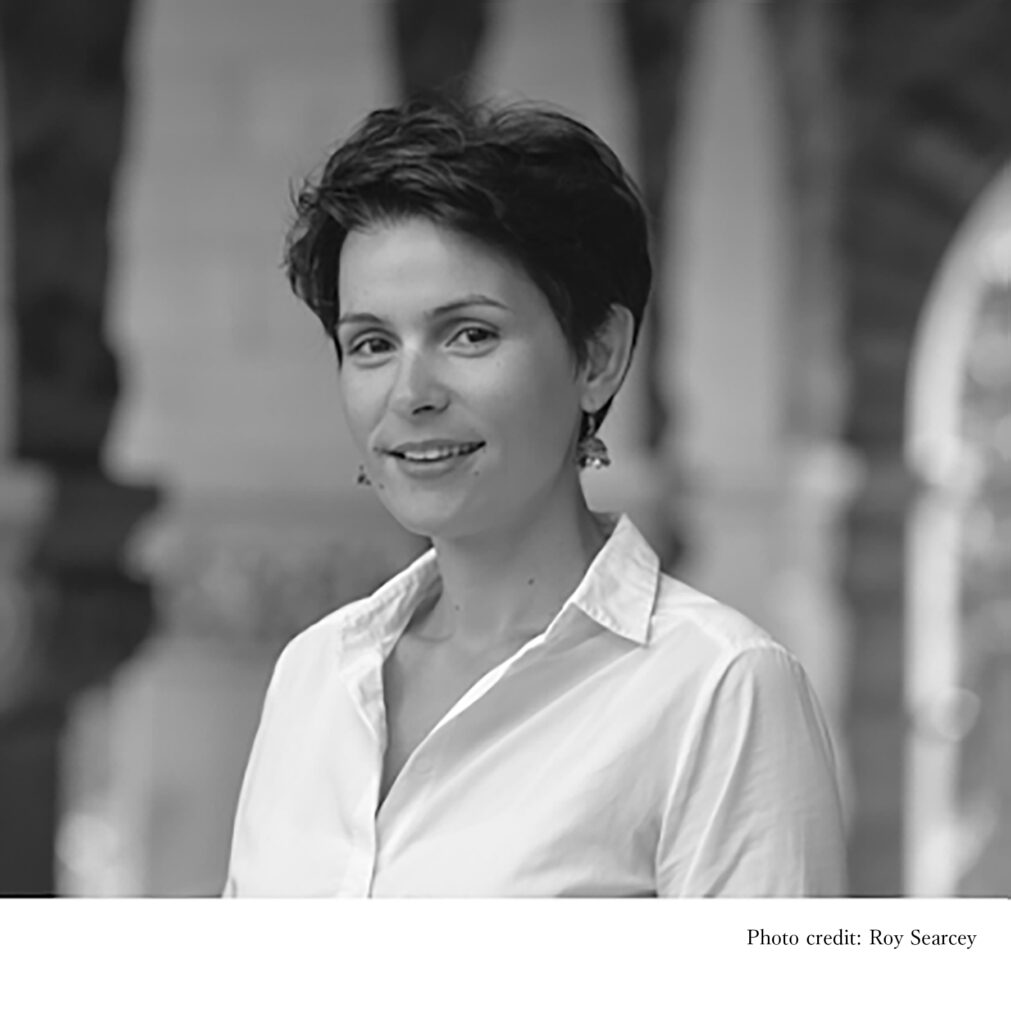
Sophie LEMIERE
Gangsters and Masters: The Invention of Legitimacy in Malaysia and Beyond
My current work explores the intangible elements of politics including the conjunction of political imaginary and legitimacy; charisma and personality politics; the evolution of political imaginary; the constructions of political and national narratives; and the role of emotions in politics. While at CSEAS, I will focus mainly on my first monograph manuscript and also take this opportunity to give several seminars on Malaysian Politics.
During the 2018 Malaysian General Elections campaign I was given access to the inner circles of Mahathir campaign for 6 months, from nomination day to victory for my forthcoming monograph (2020). Beyond the rigorous documentation of the campaign and its intricacies from the unique perspective of the close circles of Mahathir, this book is an in-depth analysis of the re-invention of the Mahathir persona and the concept of “Legitimacy” in Malaysia and beyond. This work explores questions rarely touched on in the field of Malaysian studies and contributes to larger debates in the social sciences (sociology, political sciences and anthropology, philosophy etc).
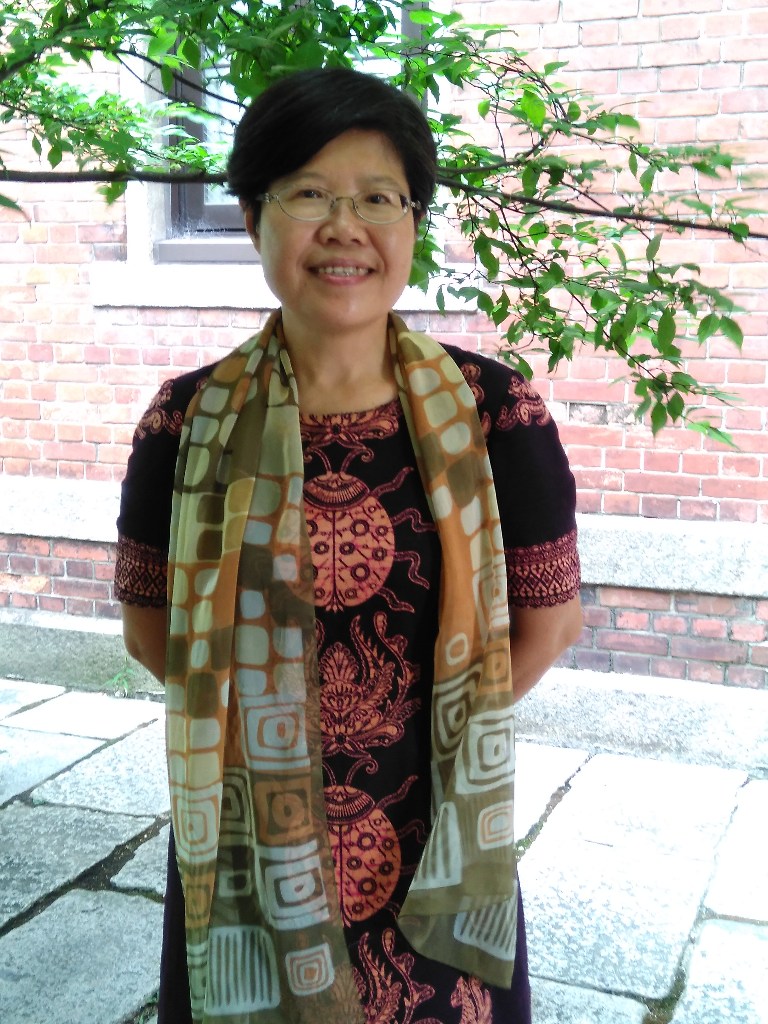
Mei-Ling Chien
Multiple Modernities of the Minority in Southwest China:
Life Historical Narrations and the Rural Immigrants of the Hmub in Eastern Guizhou (1930s-2010s)
With the contemporary “rise of China” phenomena, at present mass immigration from the rural areas to urban cities is one of the most apparent and significant experiences. Personal experiences describe and interpret such macro phenomena. This writing project is an ethnography for my half a year at CSEAS of Kyoto University and leads on from my ethnographic studies on Hmub (Hmong/Miao) villages in the highlands of south-eastern Guizhou since 1997. It aims to explore the marginality and multiple modernities through personal histories and narratives that deal with cross-regional movement of Hmub language speaking individuals, families, villages and counties. Life history narratives express not only the re-examination and analysis of real people through methodology but also with regards to the concept of performance, existence and linguistic practice in theory.
This ethnography proposes to describe and analyze three dimensions of the cross-regional immigrants, including historical, geographical and personal embodiment. The first focus will be on the generational differences between the following four periods: 1930-1940 (before the Chinese Civil War), 1950-1970 (the socialist transformation period), 1980-2000 (the economic reform and development period), and 2000-2010 (the rising of China). Secondly the ethnography will describe the stories and related documentation of one single county, Taijiang, in eastern Guizhou. Taijiang area began to be included as part of the Chinese Empire from the eighteenth century. For the surrounding Hmub and other minority people, Taijiang county has been represented as both a real and fantasized place of modernization. I will focus on the specificity of Hmub language, culture, environment, geographic features and governance among these areas to explore the space of Taijiang county and the interactions, dialogues between different generations of rural to urban immigrants. Finally, the ethnography aims to describe and discuss how different generations of Hmub migrants frame their own subjectivity and identity on gender, body and modernity through remembering, narrating and creating their life histories. The empirical data for this monograph is based on in-depth interviews, participant observation and historical research.
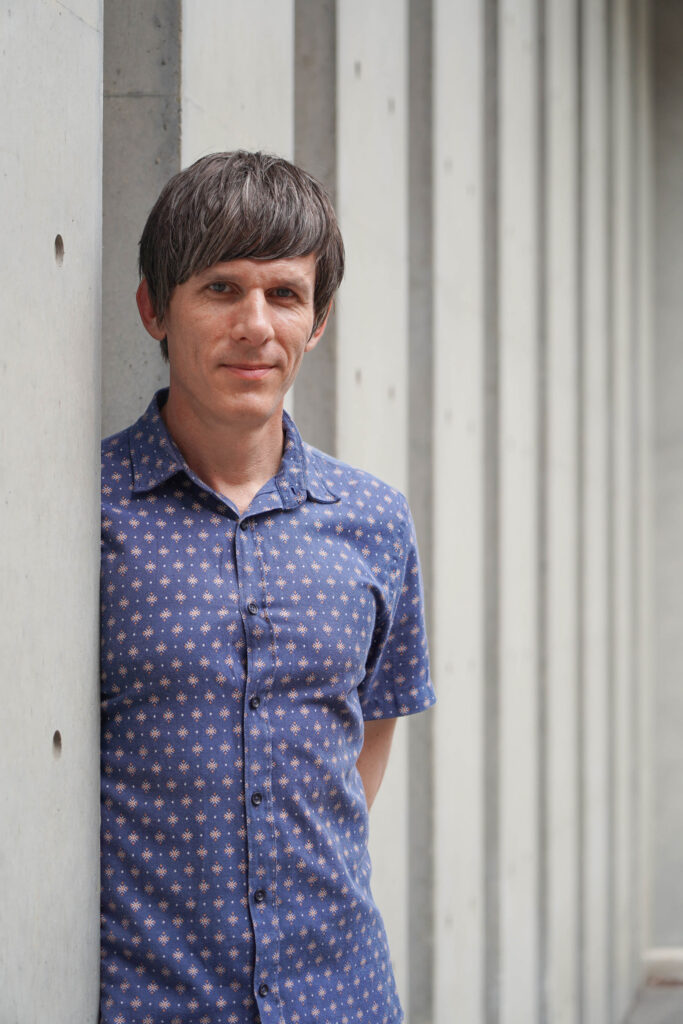
Nick Cheesman
Torture and political order in Myanmar and Thailand
Police, soldiers and paramilitaries torture captives in a variety of settings in Southeast Asia today. What work is torture doing? What role is it playing? To address these questions, my current project brings political theory together with interpretive modes of inquiry into specific cases of torture in Myanmar and Thailand. By attending to the intimacy, lexicon, spatial and temporal amorphy, and jurisprudence of torture, I consider the relationship between this type of violence and the idea of the state in mainland Southeast Asia specifically, and in our time generally. While at the CSEAS I will work with data generated during 2018 and 2019 to show how law courts recognize, misrecognize or refuse to recognize facts about torture. I will also work on two monographs on politics in Myanmar, one in a long essay format and the other a reader for a general audience.
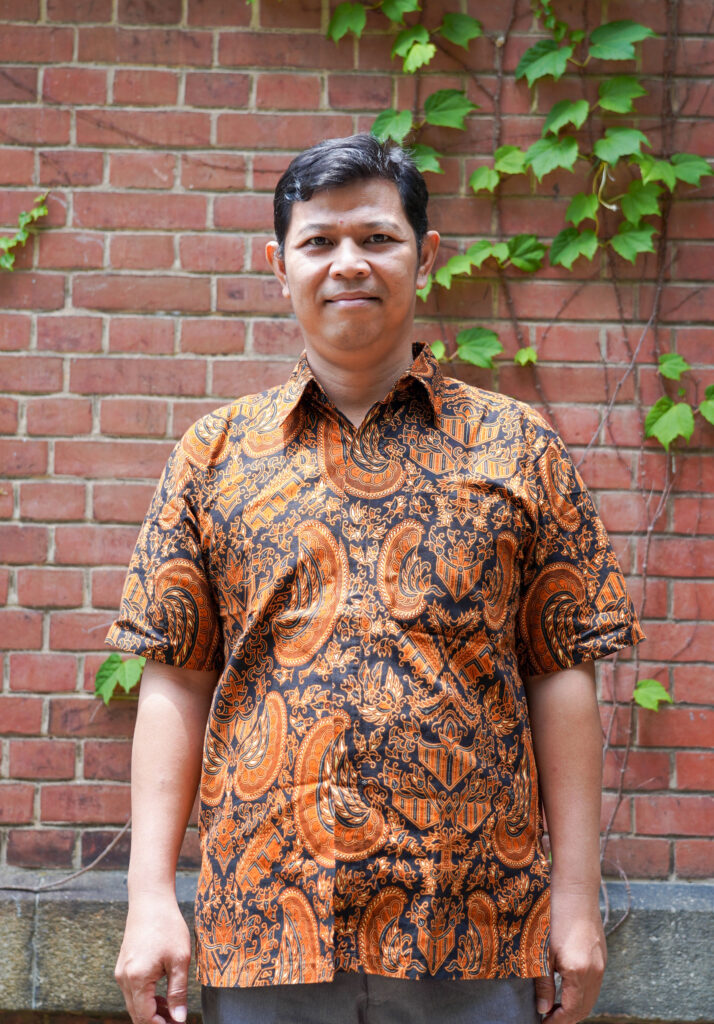
Benny Baskara
The Expansion of Tabligh Jama’ah and its Influence on the Religious Belief of Bajo People
Tabligh Jama’ah is an Islamic sect originating in India which has rapidly spread and developed in Southeast Asia, including Indonesia. The spread of Tabligh Jama’ah has already reached indigenous and marginal ethnic groups, one of which is the Bajo people. The Bajo people (sometimes spelled “Bajau”) are the most distantly dispersed and widespread indigenous ethnic group in Southeast Asia, known widely as “sea people” because of their marine based livelihoods. My research at CSEAS will focus on the expansion of the Tabligh Jama’ah movement and its influence on the religious beliefs of the Bajo people living in Kendari, Southeast Sulawesi, Indonesia. During my time at CSEAS, I will explore the valuable sources at the CSEAS Kyoto University libraries, especially regarding the socio-cultural life of the Bajo people and the movement and spread of Tabligh Jama’ah in Southeast Asia. I will also consult and to discuss with experts on Southeast Asian studies at CSEAS to received valuable input for my research. I am proud and honored to have the opportunity to be CSEAS fellow, and I hope my research can contribute to the great wealth of research on both Bajo communities as well as on the development of Tabligh Jama’ah in Southeast Asia.
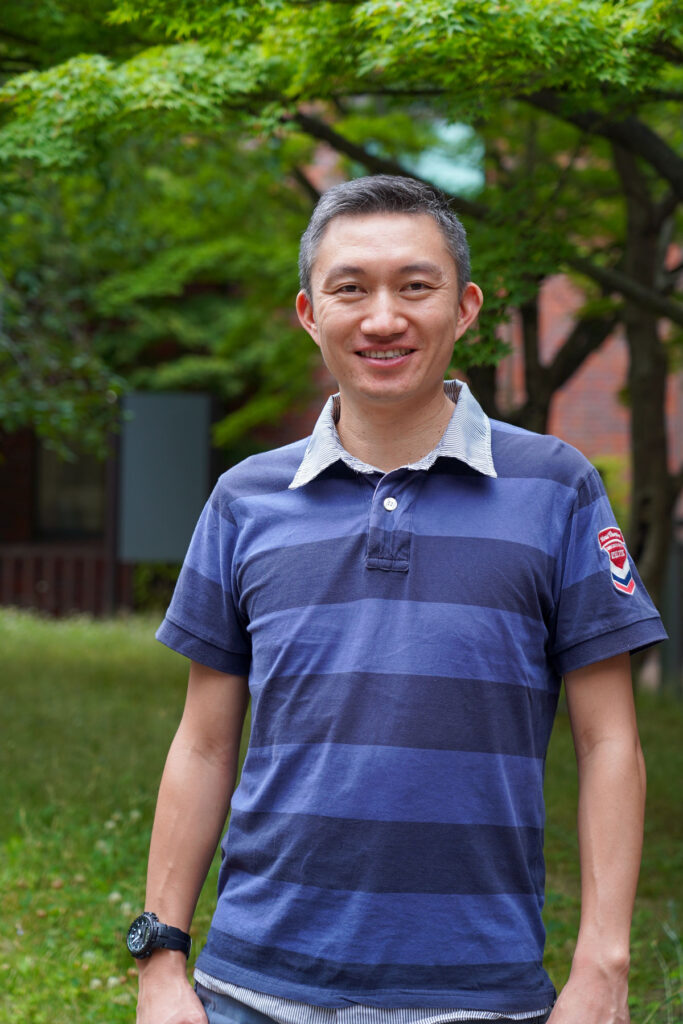
HE, Jun
Coffee Production, global value chain and ethnic minorities in Chinese borderlands at Upper Mekong region
Coffee, as a cash crop, is an important source of income for the livelihood of many farmers in the Global South. Major coffee producers are small-scale famers, who produce over 75% of the world’s coffee. Along the Chinese borderlands with Southeast Asia countries, coffee production is now booming along with rapid economic development. Yunnan province, situated in the upper part of the Mekong Region, currently accounts for around 98% of all coffee production in China, but it is also regarded as a poorer province within China. However, there is current gap in understandings of effects of the China’s coffee boom on livelihoods, environmental landscapes and poverty alleviation in the area. Within such a context, this research in CSEAS will attempt to address the question “how does rapid development of coffee production in Yunnan transform the livelihoods and local landscape of ethnic minorities in the region?” The research aims to understand: 1) how is labor-capital-land arranged in China’s coffee production 2) how the global coffee value chain is organized in Yunnan, and 3) what are the environmental and livelihood changes that arise due to the development of coffee production.

Wen-Chin Chang
Clandestine Travel across the Sino-Burmese Border during the Cold War
In terms of Cold War history, mainstream historiography has focused on the politics of global confrontation in light of ideological differences, the central state’s foreign policies, and national and regional security, which we may term high-level historiography. Apart from this orientation, there have been efforts to explore how ordinary people carried on their everyday lives during this era in the face of numerous struggles and even persecutions imposed from above, and how they remember their history. This latter approach, or grassroots historiography, though comparatively minor, has enriched our understanding of the Cold War history beyond the frameworks of politics and national and international institutions, and helped us gain insights into plural dimensions of daily lives—socio-cultural, economic, technological, and environmental.
My year at CSEAS endeavors to write an ethnography related to Cold War history, which is grounded in in-depth fieldwork among Yunnanese of southwestern China and Yunnanese migrants in Burma and beyond over the last four years. It attempts to look into their clandestine travel across the Sino-Burmese border for survival or for a better life in the face of ongoing political and social upheavals during the Cold War era. Their moving was connected to multiple factors and resulted in various types of migration—victim, political, military, economic and cultural—which often overlapped with one another. Moreover, circulation of goods, capital, ideas and intelligence accompanied their travels.
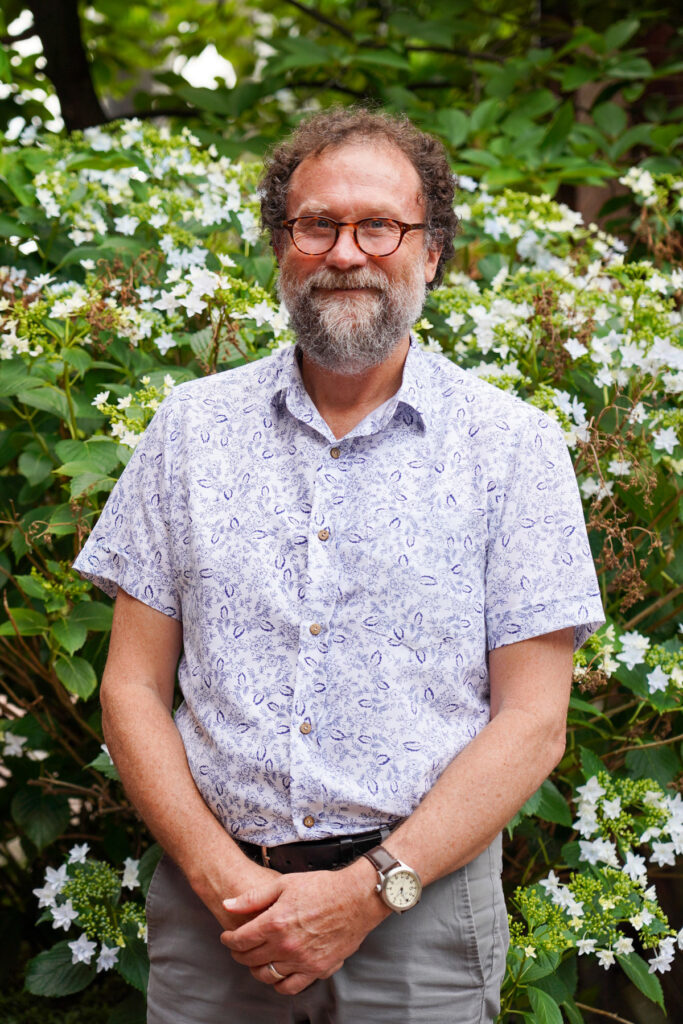
Rodney Keenan
Scaling forest restoration in South East Asia through integrating timber production and private sector investment
Forest landscape restoration has become a major global objective and a strong focus of policies to address climate change. Restoration aims to restore landscape function through a mix of forest conservation, re-establishment of forests and productive uses of trees. There is an estimated 110 million hectares of degraded forest lands in South East Asia, 60 percent of the total forest area. My research at CSEAS aims to investigate new approaches to overcoming the policy and financial challenges of forest restoration in this region. For the past 3 years I have been leading an international multi-partner research project on improving policies for forest plantations in Lao PDR and Vietnam. My aim is to use the outputs from this research and work with experts at CSEAS to investigate supportive policies and legal frameworks for implementing forest landscape restoration. These policies will cover issues such as governance, property, tenure and access rights, and strengthening capacity of public organisations. A key focus will be the design of policies to support integrated investment models that engage the private sector and empower rural landholders to become more engaged in sustainable forest management.
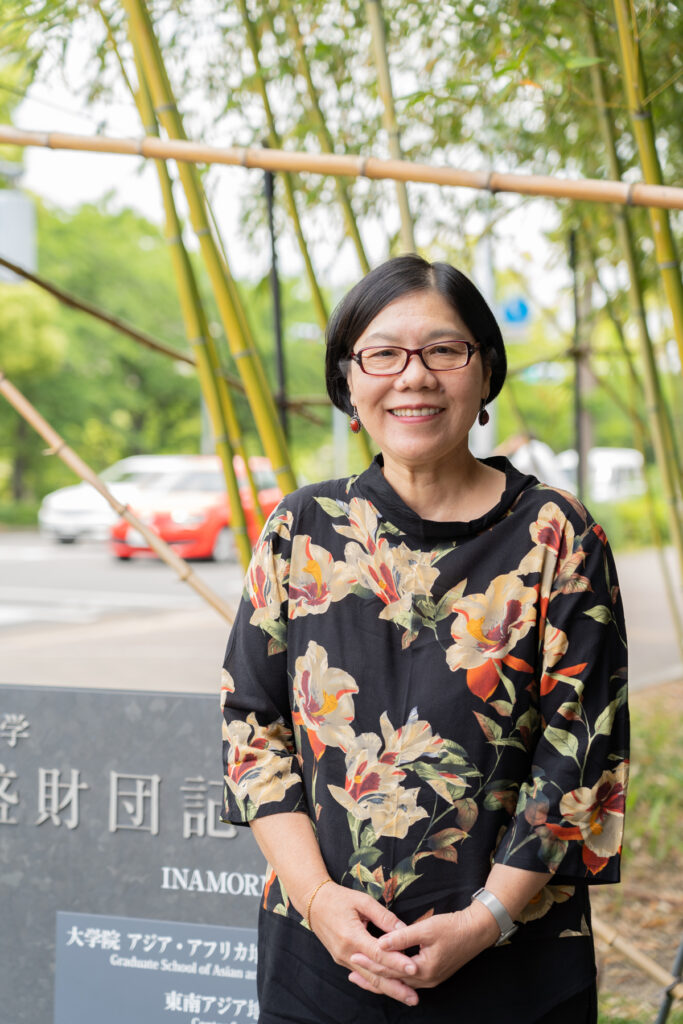
Goh Beng Lan
Silent Revolution: Changing Mindsets as Radical Politics in 21st Century Malaysia.
I have two writing projects during my three months at CSEAS. The first, is to turn a talk delivered at the Annual Meeting of the Japan Society for Southeast Asian Studies in December 2018 in Tokyo into a paper for a forthcoming special issue of Tonan Ajia: Rekishi to Bunka (Southeast Asia: History and Culture), Vol. 49, 2020.
Second, I will continue writing a manuscript that showcases the significance of mindful self-transformations —which is not generally considered ‘’political’’— as the basis for the renewal of political consciousness and action in contemporary Malaysia. Based on ethnographic, online and secondary research conducted over the past decade, this manuscript focuses on resistance against ethno-religious bigotries outside the conventions of civil society in three societal arenas, namely, popular religion, artistic practices and citizenry initiatives. While seemingly disparate, these rejections of ethno-religious dogmas are united by a mode of protest that is configured by the intersection of social media and the creative play of symbolism, metaphor, and image. Importantly, these innovations stimulate new and open ways of interrogating, expressing, blurring and minimizing ethno-religious differences which strike powerful cords with, and are easily understood by, fellow Malaysians. By exploring atypical political actors, sites and methodologies of defiance associated in these actions, I hope to provide fresh insight into the forms, characteristics and meanings of contemporary political resistance in Malaysia.
I am honored to have the opportunity to be at CSEAS and look forward to learn and benefit from discussions with staff and visitors at the center.
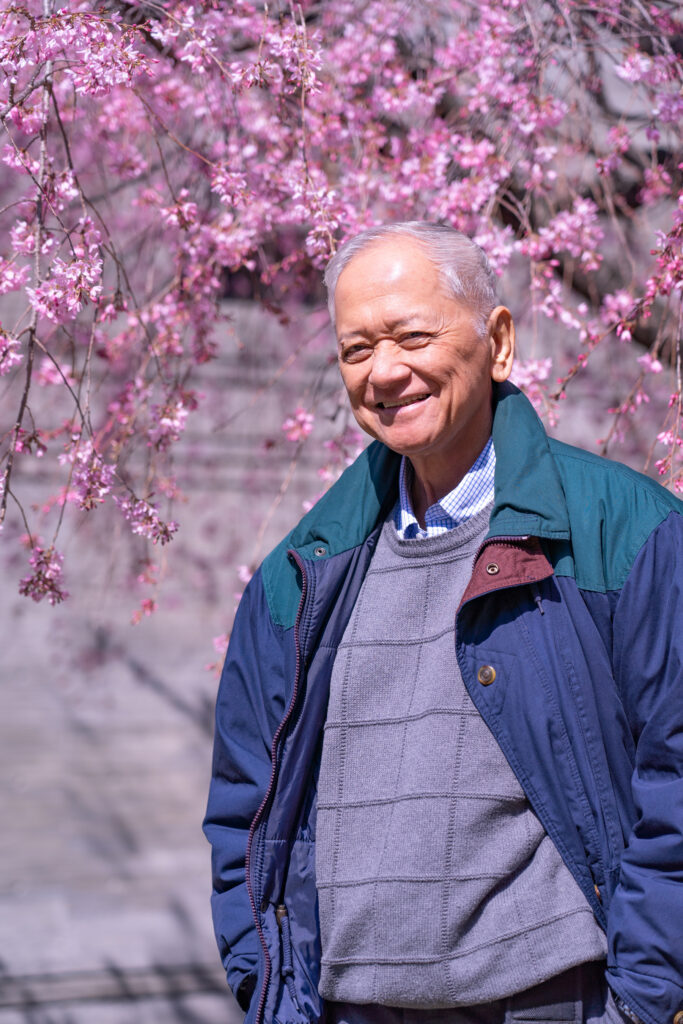
Edilberto De Jesus
Philippine “Populism” under Rodrigo Duterte
The election of Rodrigo Roa Duterte as president in 2016 blindsided many experienced political analysts. In the first half of his six-year term, he has pursued policies that ran counter to the views held by the majority of Filipinos. His speech, behavior and style of governance clashed with values traditionally taught to children, embodied in pledges recited in schools, and often proclaimed as quintessentially Filipino.
International observers have identified him among the new breed of populist strong men, together with Vladimir Putin, Xi Jinping, and Donald Trump. But the character of his populist appeal appears rooted in factors different from those energizing the popular base of his colleagues, who have no special standing among Filipinos. Nonetheless, Duterte clearly continues to enjoy high levels of trust and approval in public opinion surveys. His anointed candidates for the 2019 mid-term elections have also taken an early lead in the senatorial race, benefitting from the presidential endorsement and the advantages provided by an administration in power.
Three months at the Kyoto CSEAS will give me a chance to explore the Center’s rich Filipiniana resources and to tap into recent studies of Philippine history and political culture. Perhaps, these sources will provide some clues to understanding the Duterte phenomenon in the context of what he has promised and achieved during the first half of his term, and its implications for the trajectory of Philippine development.
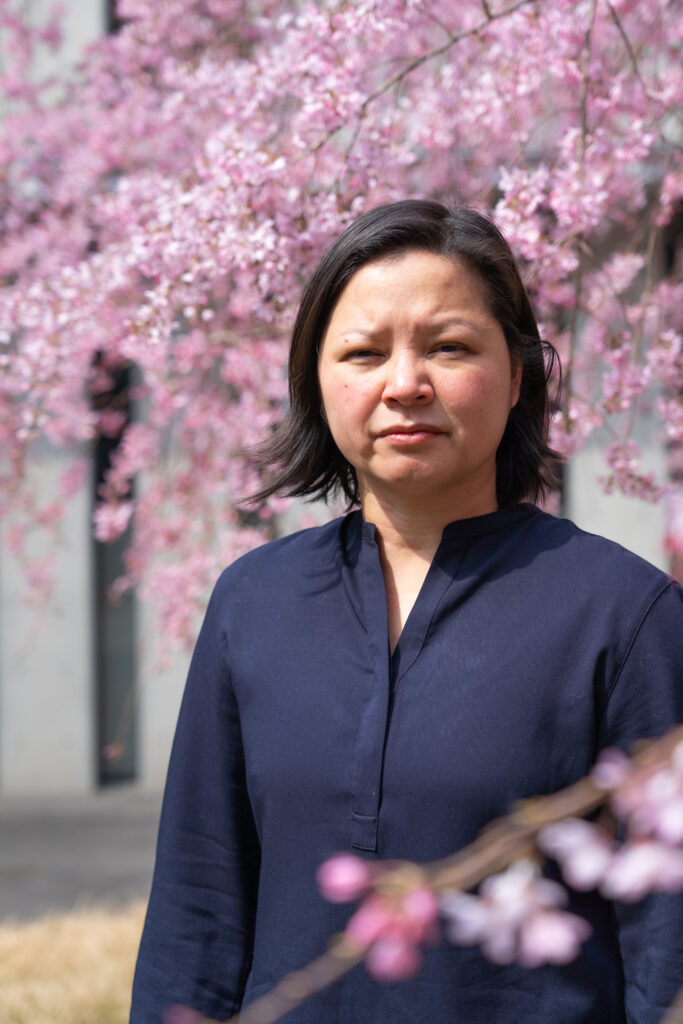
Nhung Tuyet Tran
During my time at the Centre for Southeast Asian Studies, I will be working on two related projects: I will complete the manuscript for my book on the cultural history of Vietnamese Catholicism from 1624-1800 and I will begin work on my next project, a study on the idea of property in Vietnam. The former, tentatively titled, “Translating the Christian Cosmopolis: Vernacular Writing, Oral Culture, and Catholic Identity in Early Modern Vietnam,” explores how Vietnamese Christians made Roman Catholic teachings legible to a local audience through the circulation of easily transported codices written in the vernacular script and transmitted orally from one community to the next. The articulating of these teachings in Vietnamese contexts allowed believers to travel the post-Tridentine Christian world and imagine themselves as members of a Vietnamese and global church, no less deserving of salvation than any of its other members. I will spend the second part of the fellowship period translating contracts between Cham women, Vietnamese men, and the Southern Vietnamese state from the 17th and 18th centuries to understand how indigenous Cham notions of property over people, place, and things shaped the property regime of the Southern Vietnamese state in 1812, even as it claimed a “universal” Chinese model. Both these projects examine how local articulations of knowledge, prestige, and authority (re)shape universal claims.
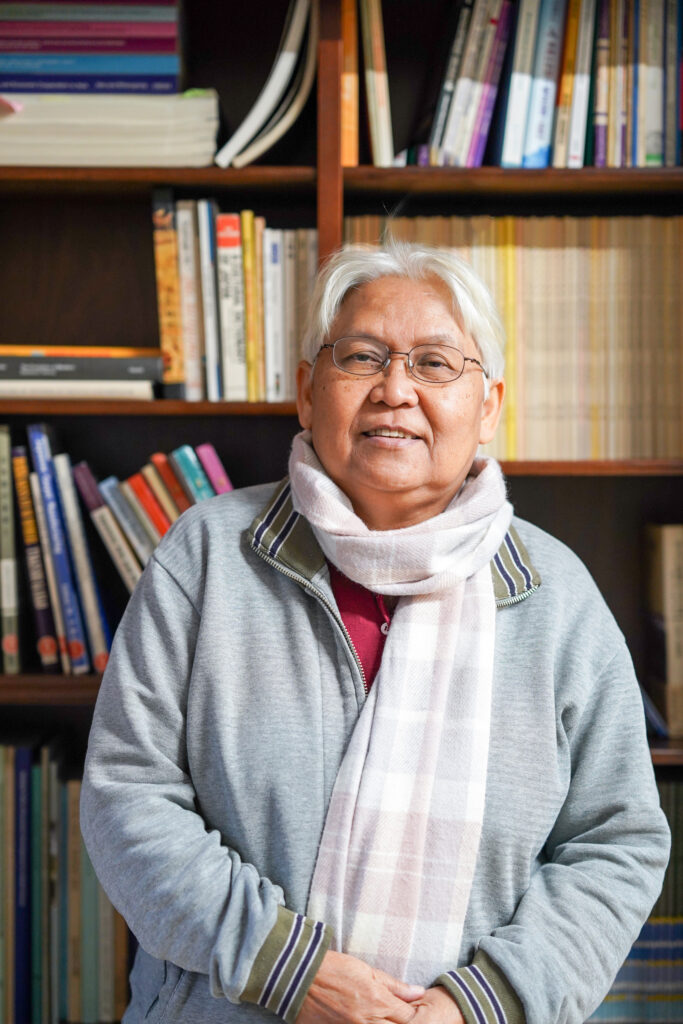
Thanyathip Sripana
Gender Diversity in Changing Vietnam
Since 1986 when Vietnam launched its Economic Reform Policy, the country has undergone tremendous changes not only in terms of politics, economics, international relations and society, but also in terms of human resources and public mindset. In the past, gender diversity and LGBT were taboo issues. But since the early 2010’s, the situation has changed gradually and positively. Gender diversity and LGBT have become an issue in progress in Vietnam and the public has increasingly recognized LGBT people, particularly in big cities, while gender diversity has been widely debated.
At CSEAS, I will focus on my new project, Gender Diversity in Changing Vietnam. Why has Vietnam, a Socialist State and Confucian society, shifted from being stern to being so positive in recognizing the gender diversity issues, and the lives and rights of LGBT people? And how have such changes in the mindset and attitude of the Vietnamese people, the Government and the Communist Party evolved?
While focusing on these questions above, during my stay at CSEAS, I would like to exchange and discuss about gender diversity with CSEAS scholars and experts, and explore new aspects of gender diversity studies. In line with this, I aim to establish connections and develop networks with scholars and experts at CSEAS and other institutions in Japan. This will link to a comparative study I hope to conduct on gender diversity between and among some ASEAN countries.
Bio
Thanyathip Sripana has thirty years of work experience as a Researcher and a Lecturer in Vietnamese Studies, as well as on the issues of Mekong and Asean Connectivity and Mobility. She has served as a Researcher and a Lecturer at the Institute of Asian Studies, Chulalongkorn University, since April 1988. Over this period, she had also been a Visiting Fellow at various institutions including Laval University in Canada, IRSEA (IrAsia) in France, Universiti Kebangsaan Malaysia, Institute for Southeast Asian Studies in Hanoi, and CSEAS in Kyoto (2011, present). As a guest lecturer, she has occasionally delivered lectures at various institutions both in Thailand and abroad including College for Asean Studies at Guangxi University for Nationalites (China), University of Social Science and Humanities, Vietnam National University (Hanoi, Vietnam). As a specialist on Vietnam, her research work covers Politics; International Relations (particularly between Vietnam and Thailand); Culture; History; and Security (including the issue on Vietnam and South China Sea).
Over the last seven years she has contributed various articles and papers to Vietnamese Studies: Thailand and Vietnamese Patriotic Movement in the Mid-20th Century; Ngô Thị Huệ and her Reminiscence of Thailand in the Mid of 1940’s; Ho Chi Minh in Thailand : The Struggle for Vietnamese Independence; China’s Influence on Vietnam through Vietnam-China Border Trade; Gender Diversity in Socialist Viet Nam and Unification of Human Rights in ASEAN.
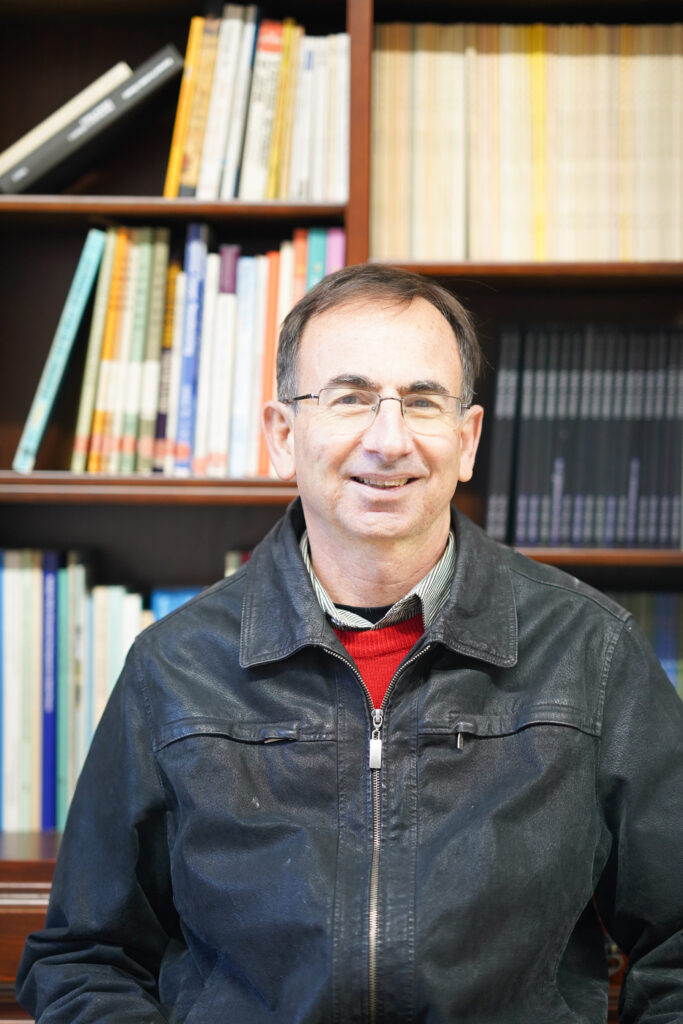
Philip Hirsch
Demarcating the public and private: land, natural resource and environmental governance in the Mekong Region
During my three months at CSEAS, I will embark on a co-authored monograph (with Carl Middleton, Chulalongkorn University) that takes a critical look at the context-determined demarcation between the public and private spheres in the realm of land, natural resource and environmental governance under intensified development in the Mekong Region. The book will commence by making the case for contextualizing the delineation of public and private roles and spheres rather than importing universalized schema, exploring tensions and contradictions of the neoliberal authoritarian context in which resource-based development and environmental governance is occurring in the Mekong Region. The remainder of the book will then develop a set of connected themes, each illustrated extensively by empirical material. These include: context-specific constructions of publics including “community”, “people”, “civil society” and State-as-public; the conflation of public interest and national interest discourses in contestation of large scale resource projects; public and private discursive space in an age of social media and authoritarian information controls; context-specific notions of public and private physical/living space; benefit, cost and risk distribution in public-private projects; privatization of public goods in post-socialist economies; the conflation of public and private benefits in bureaucratic and military control over natural resource projects and land/territory; and the commons as an “in-between” public/private domain.
The empirical underpinning of the project will include case studies of river basin development and hydropower, large scale land investments, forest exploitation and conservation issues, and the contested politics of environment in mainland Southeast Asia. The book will also draw on ongoing research in which I am currently engaged through a project funded by the Australian Research Council, entitled Rupture: nature-society transformations in mainland Southeast Asia and being carried out in collaboration with colleagues at the Australian National University.
Since this is in many ways a new intellectual venture on my part, I particularly welcome the opportunity to discuss some basic premises of the project with staff and visiting scholars based at CSEAS.
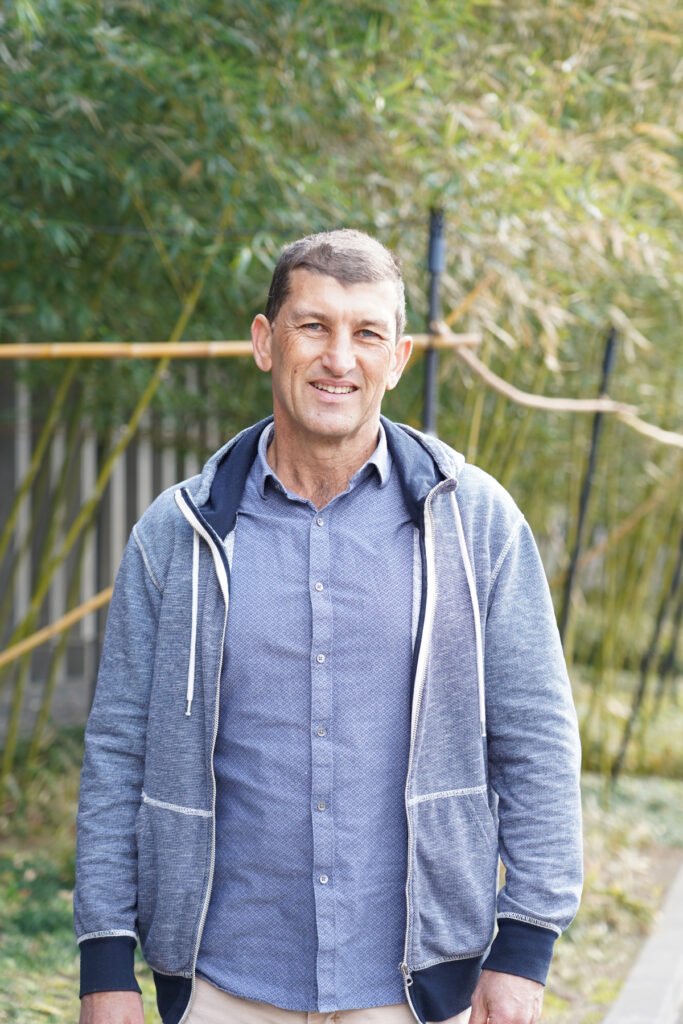
Patrick Jory
The Politics of Politeness: a History of Manners in Thailand; and The Rise of Buddhist Radicalism in Southern Thailandh
While I’m at CSEAS I will be completing two projects.
The first is a monograph that examines the history of manners in Thailand. There is an old and rich literature in Thailand about how to conduct oneself that dates back centuries. Much of this literature draws inspiration from the Buddhist doctrine of the need to control the “body, speech, and mind” (kai waja jai). Yet notions of how to manage oneself and one’s relations with others have constantly been contested. This book takes a long duree approach to the history of manners, arguing that the debate over proper conduct has been of crucial importance in Thailand’s modern history, including in the current political conflict. The book has a strong comparative dimension. It considers the extent to which Norbert Elias’s notion of the “civilizing process” for Western Europe can be used to understand changes in conduct in Thailand.
The second project explores the rise of Buddhist radicalism in southern Thailand. Much of the scholarship on the violence in the south focusses on the Malay Muslim community of the southern border provinces. Much less attention has been given to the largely overlooked phenomenon of growing religious-nationalist sentiment in the “Buddhist heartland” region of the mid-south (roughly Surat Thani, Nakhon Si Thammarat, Phatthalung and Songkhla).
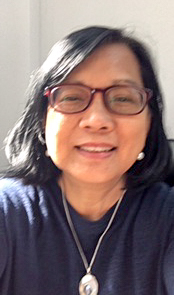
Maria Karina Africa Bolasco
Untold Lives and the Philippine Political Revolution of the Long 1970s.
The Communist Party of the Philippines (CPP) was the strongest opposition against the dictatorship of Ferdinand Marcos until it conceded that role on the eve of Marcos’s ouster. Thousands of young men and women joined this movement , many of them sacrificing their lives. And while some of the leaders of this political revolution still survive, their stories remain untold, creating this yawning gap in the history of the period. Without their stories, the writing of this important part of Philippine history will be incomplete.
I propose to write about their very own post-reflections on their work and conviction as top ex-leaders of the CPP, their passion and dedication as they carried out their daily tasks in the political revolution of the long 1970s. I hope to be able to show how their original concepts of social change and of a national democratic movement have changed or evolved over the 50 years of the CPP.
I shall be guided by Jonathan Culler’s (Literary Theory: A Very Short Introduction: Oxford 1997)definition of biography theory as ” accounts others can use about meaning, nature and culture, the functioning of the psyche, the relations of public to private experience and of larger historical forces to individual experience.”
Biography or life writing is both a historical activity and a literary genre. In the last four decades, people’s stories have made history more interesting and engaging to a public. Yet, it is the genre least studied and theorized, but simultaneously it is the most actively discussed, and more critically, due to the perceived limits of biographical knowledge. How are claims validated? Shall we pit their accounts against one another? Or is it more important that they all get to their personal truths. There are lessons for individuals and communities over regrets, failures, and sins of commission and omission. Isn’t this how individual lives move history forward?
This project shall be conscious of the demands of writing biographies that will accurately document the story of a political revolution “in the long 70s,” in the time of Marcos and Sison. Having handled the publication of so many books on martial law, on the heroes and martyrs who fought against it, and even collections of the memoirs of these men and women, I feel that this book would be the logical conclusion of all these early publishing efforts.
I have done, and continue to do via email, more interviews of these individuals. My goals here are to be able to 1) transcribe the many hours of interviews; 2) do further documentary research at the CSEAS and KU Libraries, and 3) write the first draft of the book.
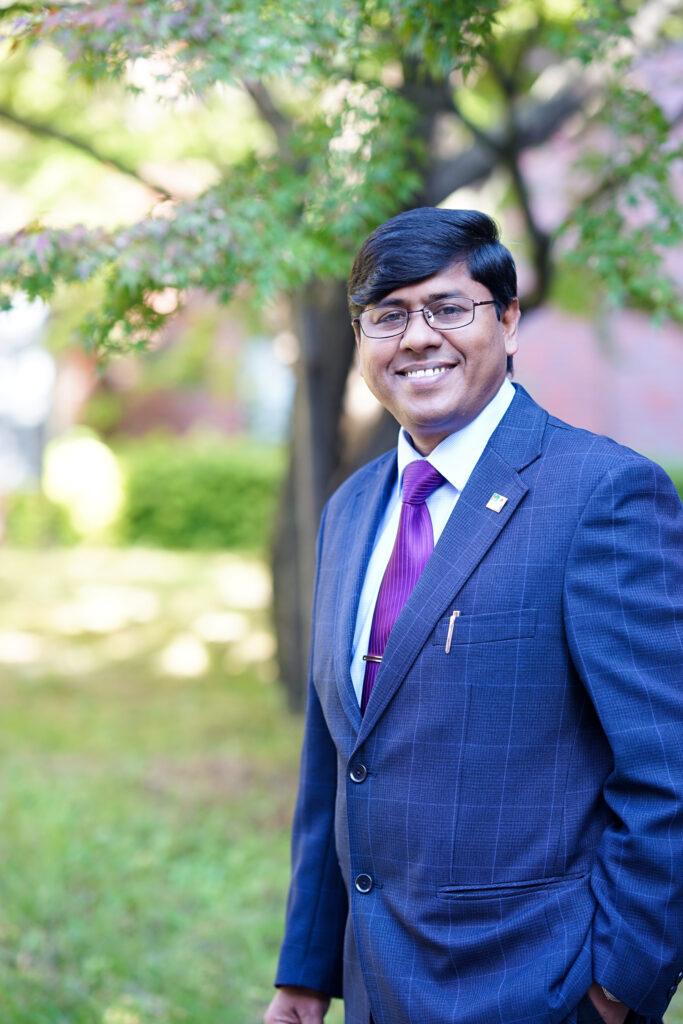
Mohammad Golam Farouque
Prospects and Challenges of Managing Natural Resources through Community-based Approach in Bangladesh
The capacity to use and manage natural resources effectively is a great challenge in many developing countries. These resources reside under threatening conditions in Bangladesh where around 80 percent people, an estimated at 120 million people, live in rural areas and depend on natural resources (land, water and forests) for economic development, food security and other basic necessities. The country’s population is estimated to reach 210 million by 2030 and this will have serious implications on the sustainability of its natural resource base. The community-based natural resources management (CBNRM) approach is a systematic effort to improve soil and land productivity, agro-forestry development and other rural energy sources by which landholders gain access and use rights to, or ownership of, natural resources; collaborative and transparent planning and participation in the management of resources use; and achieving financial and other benefits from stewardship.
While at CSEAS, I will be working on research that will attempt to explore the prospects and challenges of a CBNRM approach through intensive literature review, consultation and discussion meeting with experts and observations as well under the guidance of my host Professor. However, to date, there have been very limited studies concerning the above issues in the context of Bangladesh. Identifying prospects and challenges will provide insights to establish this approach in Bangladesh while considering the perspectives from both developed and developing countries.
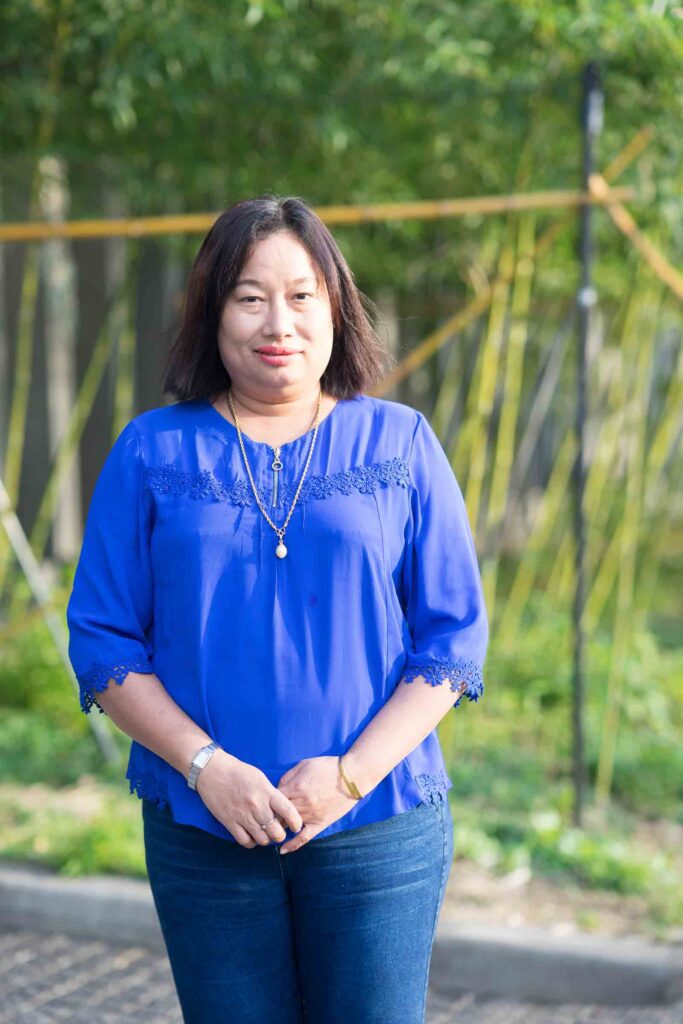
Swe Swe Mar
Assessment of farmers’ attitude towards the use of inorganic and organic fertilizers for rice cultivation in central Myanmar
I am Swe Swe Mar a lecturer in the department of soil and water science of Yezin Agricultural University, Myanmar. Between 2007 to 2012, I studied my master and doctor degree at the Tokyo University of Agriculture and Technology under the supervision of Professor Dr. Masanori OKAZAKI and Professor Dr. Koki TOYOTA.
My research project is an assessment of farmers’ attitude towards the use of chemical and organic fertilizers in rice cultivation of Naypyitaw, Myanmar. At present, Myanmar faces huge food supply challenges due to an increasing population, limited opportunities to increase arable land, and declining yields associated with continuously declining soil fertility. This research explores factors influencing fertilizer and manure use in rice cultivation. At present, well-established nutrient management practices undertaken by smallholder include use of manure and intercropping legumes while composting and agroforestry are relatively new and limited and manure releases nutrients to the soil slowly and helps soil to build organic matter with long-term benefit. One key requirement to overcoming the socio-economic as well as the biophysical constraints to improve soil fertility management at the farm level is an understanding of the basic rationale of small-scale mixed farming systems such as those in Myanmar with an adequate understanding of smallholders’ attitudes. This research will look into the above during my stay at CSEAS.
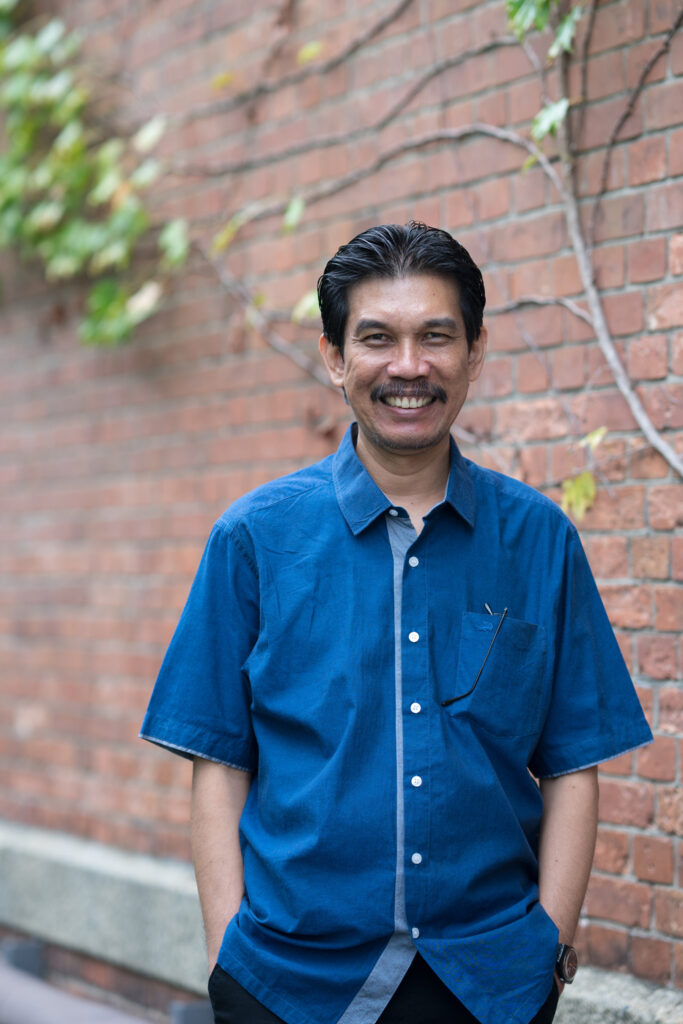
Dianto Bachriadi
Land conflicts in contemporary Indonesia and its meaning in the historical context
Land conflicts have occurred in many places all over Indonesia on many occasions. Here I will explore and analyze three main factors that work on this phenomena, which are land grabs, the unequal structure of land distribution, and colonial-minded agrarian laws and policies. With the first factor, land grabbing phenomenon show how easy corporations obtain control over large swaths of land straining space for people’s livelihood. With the second, I will explore how the structure of land distribution in Indonesia, which is always in unequal form, has been constructed, and subsequently created the conditions for land encroachment by local people into both public and private land. With the final one, I will explore the sustainability of a colonial-minded laws in Indonesian agrarian policies. I assume that as long as these three factors continue to work, land conflicts will persist.
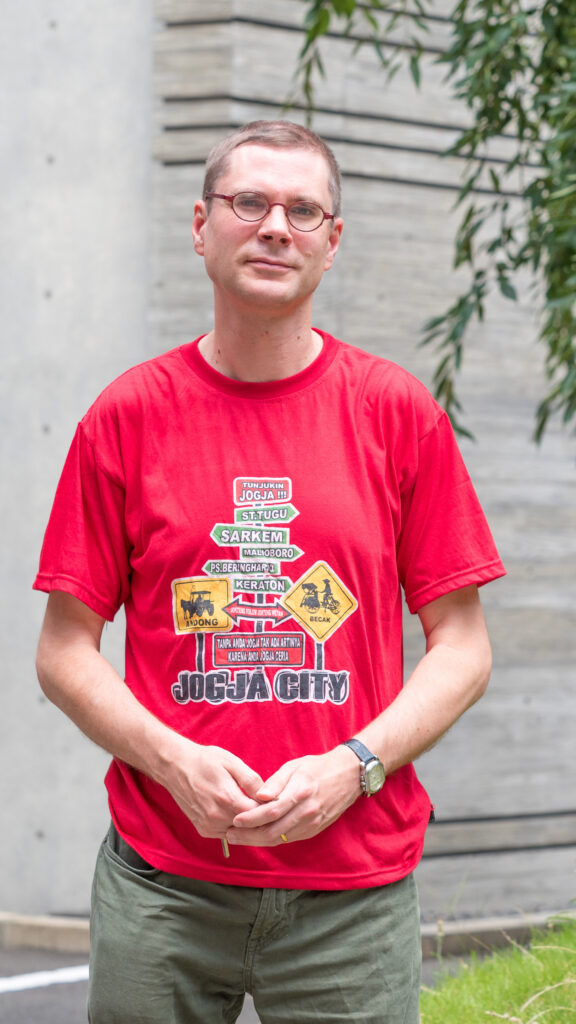
Marcus Mietzner
The pitfalls of democratization in Southeast Asia
While at CSEAS, I will be working on a manuscript for a new mini-book series edited by Edward Aspinall and Meredith Weiss for Cambridge University Press. This monograph will discuss the reasons behind the apparent obstacles to democratization in Southeast Asia. While autocracy firmly endures in states such as Vietnam, Laos, Cambodia, Singapore and Brunei, the young democracies of the Philippines and Indonesia show clear signs of deconsolidation. At the same time, the democratic transition of Myanmar is under threat, while Malaysia’s future remains uncertain. Why is it that Southeast Asia is such a difficult arena for democracy to take hold? The manuscript will ponder the evidence and offer some explanations in the context of rising inequality and populism in a post-globalisation world.
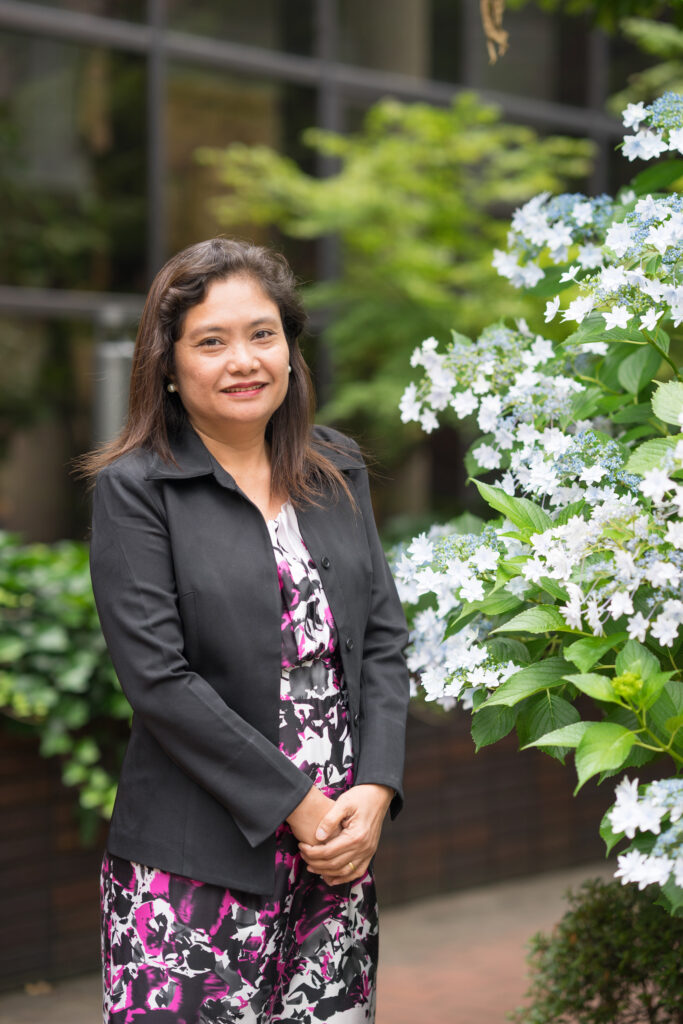
Alicia Chavarria Esguerra
Mabuhay!
I am Alicia Chavarria Esguerra, Librarian at Bulacan State University, located in the historic City of Malolos, Bulacan, Philippines. I am also an Associate Professor in the same university, teaching various Library and Information Science subjects in the undergraduate level. It is my first time to be in the beautiful City of Kyoto although it has always been my dream to visit this amazing country which exemplifies that technology and nature can co- exist and share a symbiotic relationship with each other.
While at CSEAS, I will be working on a research that will attempt to describe library education and practices in Japan and the Philippines; identify the similarities and understand their differences, with the aim of finding avenues by which these two great nations can work in mutual cooperation in the field of Librarianship and Information Science. I also hope to finish my research about the history and development of library education and librarianship during the early period of American colonization in the Philippines. In addition, I will be working on the cataloging and classification of the Ambeth Ocampo Collection available at the CSEAS Library, and work in partnership with Professor Mikiko Ono in the compilation of an annotated bibliography of this rich Filipiniana collection.
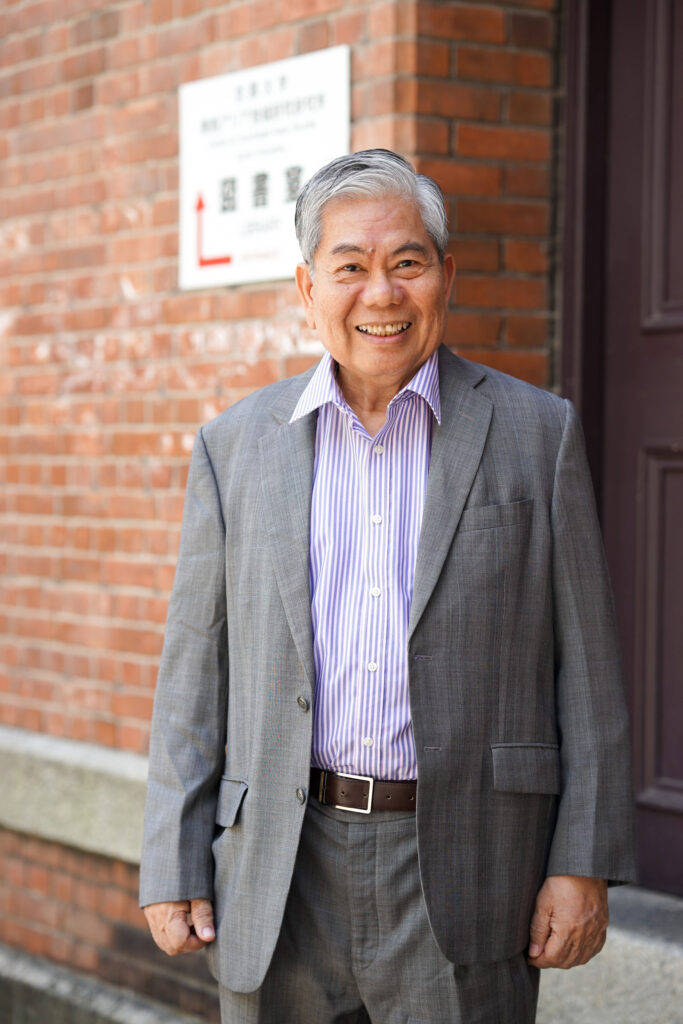
Wilfrido V. Villacorta
China, Japan, ASEAN: Towards A Mutually Acceptable Modus Vivendi?
Transformations in the character of world affairs necessitate different responses from traditional as well as emerging powers. Perceptions of who are friends and who are enemies are becoming more blurred. As states are faced with formidable challenges of this century, what is evident is that there are no permanent interests either. The parameters of so-called national and regional interests have to be re-framed. Definitions of core benefits of individual states tend to be parochial and short-term, deep-rooted in bloated concepts of national pride, perpetuation of self-serving official narratives and vested interests of leaders. One-upmanship is the name of the zero-sum game.
Massive poverty, transnational crime, natural disasters due to environmental destruction, international terrorism, the specter of a global nuclear holocaust-these more serious threats to human survival should be the over-riding focus in the pursuit of national interest. My study will examine and evaluate the extent to which these moral imperatives are effectively addressed by Japan and China, the prospects of closer cooperation between these two leading powers in the region, and the catalytic role of ASEAN in unlocking these possibilities.
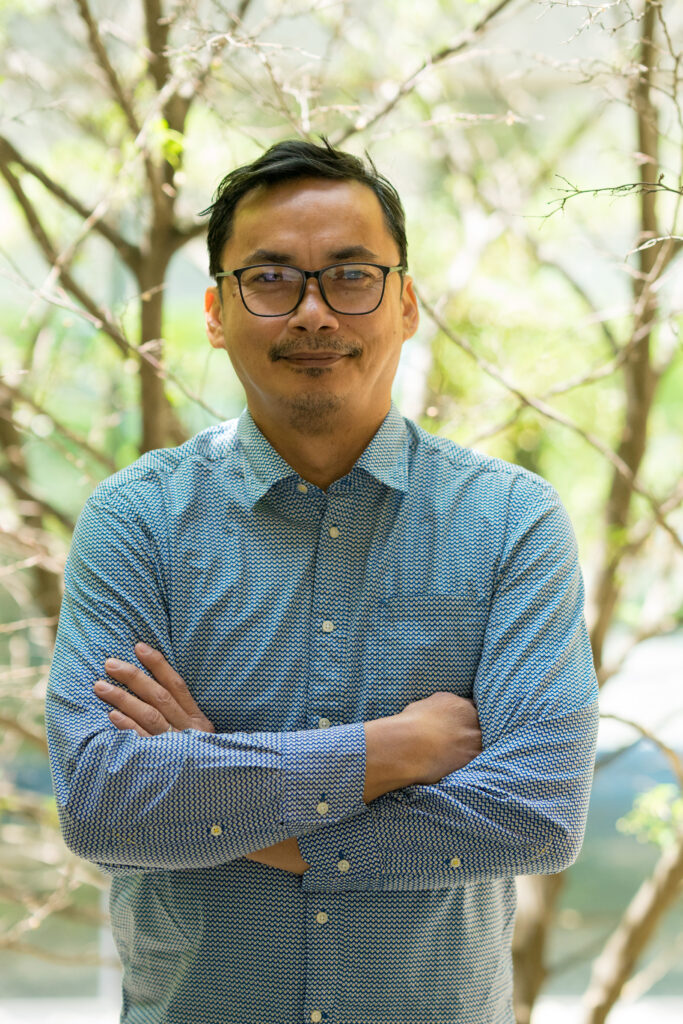
Ronald Everette David HOLMES
My current research focuses on an examination of the values, beliefs, motivations, and characteristics of Filipino citizens/voters. In the run-up to the last 2016 elections and under the current administration, Filipino voters/citizens have been characterized as bobotante (a portmanteau of bobo [stupid] and botante [voters]); tangahanga (another compound word of tanga [stupid] and tagahanga [fan]); dilawan (yellows, referring to those who support the Liberal Party or its leaders [former President Benigno S. Aquino or presidential candidate Manuel “Mar” Roxas]); or Dutertards (term used for describe those who support presidential candidate and now incumbent president Rodrigo Duterte). These characterizations are, at the very least, sweeping. Thus, this research, through an examination of prior qualitative work, as well as existing and future survey data, aims to surface what could be deemed as “drivers” of political behavior of Filipino citizens/voters.
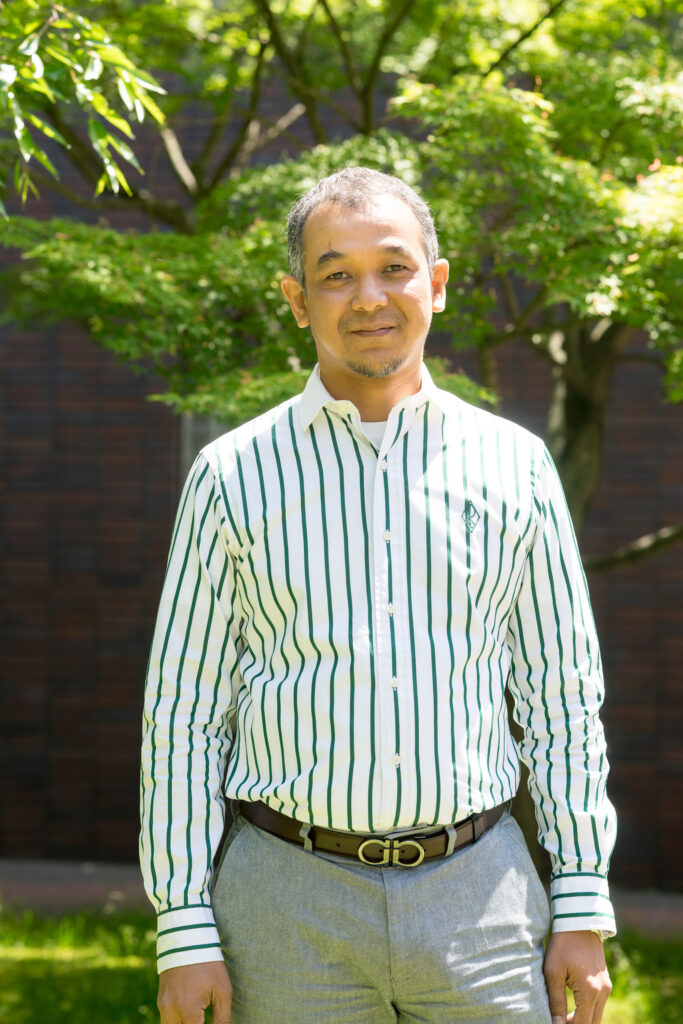
Hezri Adnan
Retro-fitting or Transformation? Sustainable Development Goals and Public Policy in Southeast Asia
In Southeast Asia, governments, businesses and non-governmental stakeholders are laying the building blocks necessary to adopt a suite of 17 Sustainable Development Goals (SDGs). The goals, targets, and indicators of SDGs aim for a global transformation by 2030 whereby ‘no one will be left behind’ in development as well as to ‘end poverty, protect the planet, and ensure prosperity for all’. While at CSEAS, I will analyze the nature and extent of SDG implementation in Malaysia, Indonesia and Thailand at various scales of governance. Informed by the scholarship on policy change and sustainable humanosphere, the research will examine whether countries are merely ‘retro-fitting’ the SDG agenda into their existing priorities, or ambitiously exploring the potential for credible policy reforms or transformation.
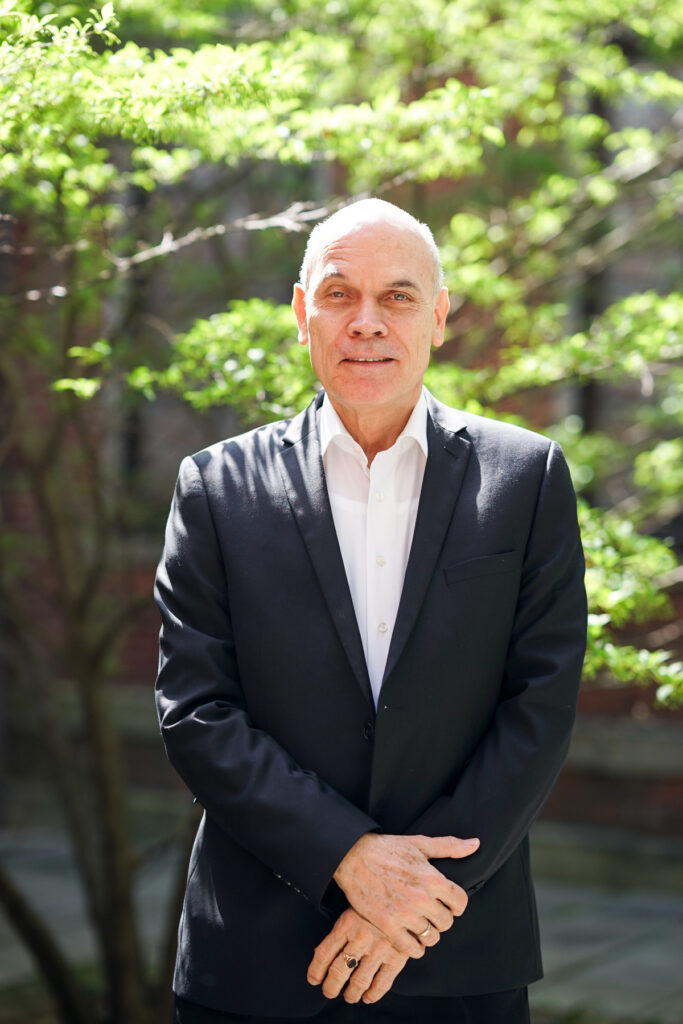
Colin Andreas DÜRKOP
Research Topic: ASEAN and BSEC – A comparative analysis between two Regional Organizations
While numerous studies exist which focus on multilateral cooperation at a regional and/or sub-regional level, little research appears to have been conducted on inter-regional comparisons. This is surprising in times of advancing globalization and regional cooperation. As a case in point, the Black Sea Economic Cooperation Organization (BSEC) is hitherto little known in Southeast Asia (and vice-versa). So far, there has been no comparative analysis between these two regional organizations which share many similarities but also different features. Moreover, no institutional links have so far been established between ASEAN and BSEC comparable to the Forum for East Asia-Latin America Cooperation (FEALAC). Similarly, only few exchanges on academic/scientific level or between think tanks and NGOs took place so far.
Against this backdrop it appears to be of academic interest to compare the goals, structures, working principles and methods as well as different programs of the two regional bodies situated in Southeast Asia and West Asia, two economically vibrant regions with a potential to complement each other. This research will address the question to what extent or in which areas BSEC could serve as a source of inspiration (rather than an alternative model) for the ASEAN in general or AEC in particular, or vice versa. As a case study, SME development approaches pursued by both regional organizations will be chosen as a focal point for the analysis.
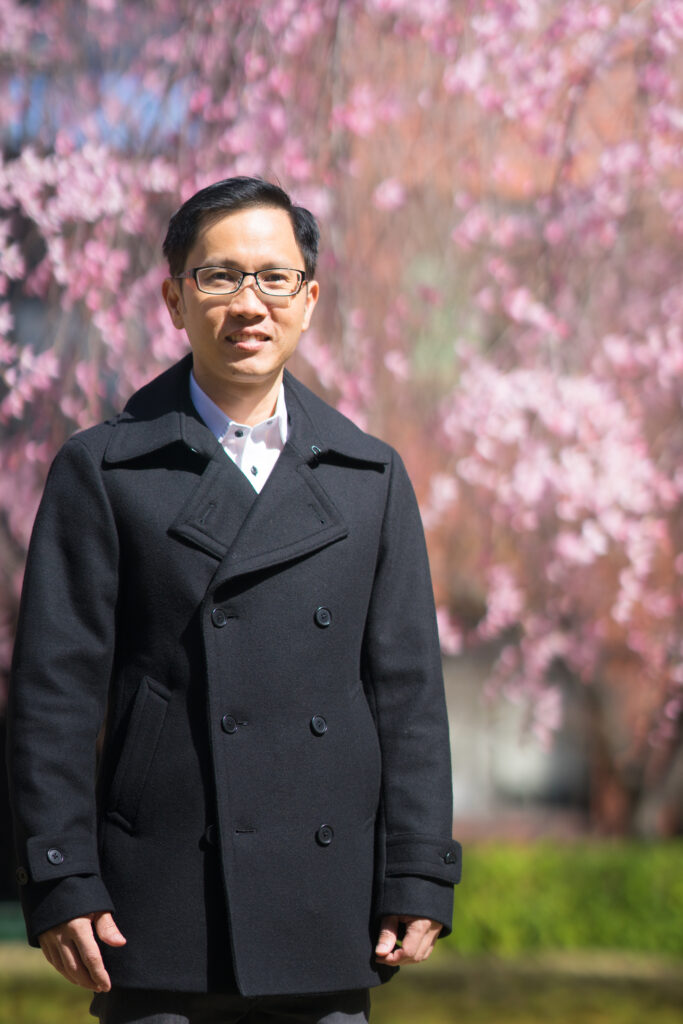
Saksith Chalermpong
The Political Economy of Public and Informal Transport in Thailand
At CSEAS, I will work on synthesizing the lessons learned from Thailand’s experiences in planning and regulation of public transport systems over the past two decades. I will employ a political economy approach to understand the interactions between government institutions, and the behaviors of transport operators, in particular, how the action or inaction of government institutions create incentive systems for operators, drivers or other stakeholders. Such decisions often produce outcomes that are generally socially desirable, but often times problematic. Institutional, organizational, and other issues that affect performance of public transport, including formal and informal operators in Bangkok, will be analyzed and compared with those in other Southeast Asian countries. It is hoped that Thailand’s experiences with planning and regulation of public transport systems can offer useful lessons for other developing countries in Southeast Asia and elsewhere.
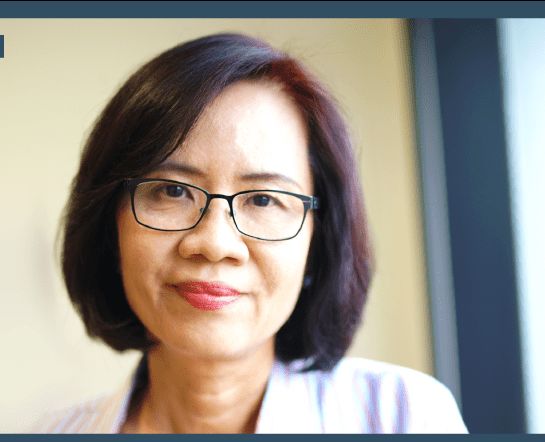
Puangthong Pawakapan
Research topic “The Thai Military’s Civil Affairs Projects”
Associate Professor Puangthong Pawakapan
Visiting Research Scholar at the CSEAS, Kyoto University
The Thai military’s civil affairs projects, including rural development program, mass organizations and psychological operations, were essential tools of counter-insurgency operations during the Cold War period. The Internal Security Operations Command (ISOC) was the nerve center of the operations. ISOC was known for its use of violence and propaganda techniques against the movements of students and peasants in the 1970s. The demise of communism did not see the winding up of ISOC power. Instead, the military expanded its power widely, especially after the coups of September 2006 and May 2014. This research examines the role and impact of ISOC in organizing and mobilizing several segments of Thai citizenry nationwide with the aim to undermine electoral democracy and to entrench the power of the conservative elites, especially when Thai society is polarized deeply by the color-coded conflict.
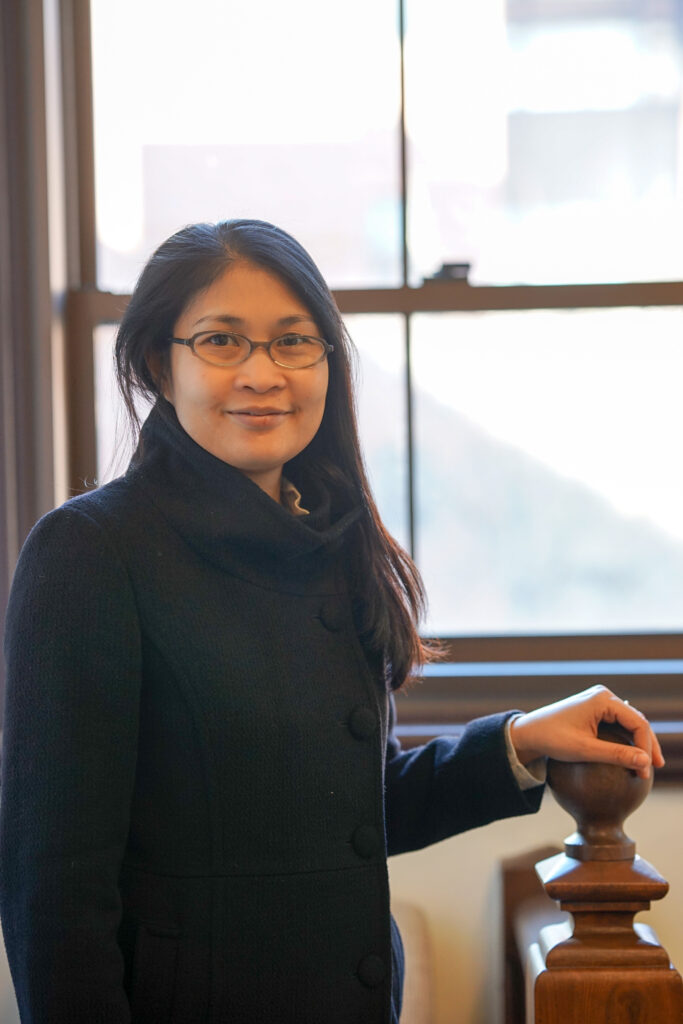
Thongphanith PHOUKHAM
Creating and Printing of the National Bibliography
2 year ago I was able to participate in a Sakura Science Project and visited Japan. I did not think I would be able to visit again however, I am glad that this became a possibility and that I have received a warm welcome from CSEAS. During my stay I hope I will gain valuable academic experience and learn about how CSEAS operates. I aim to use my experiences here to lead to more fruitful cooperation between the National Library of Laos and CSEAS in the future.
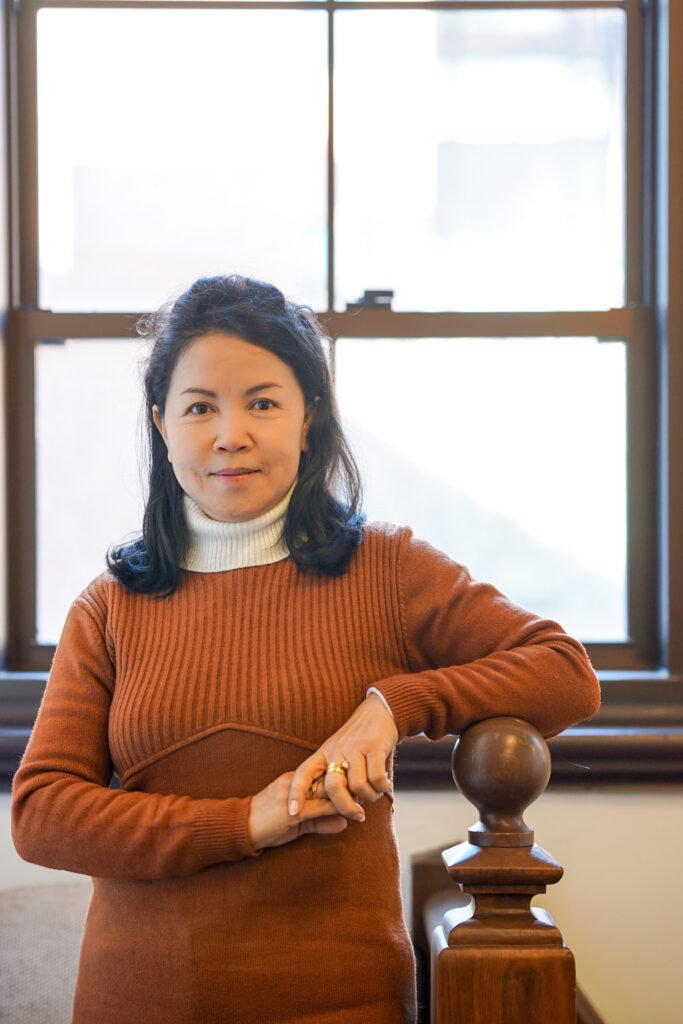
Sypha PHONGSAVATH
Compiling Academic and Non-Academic Journal Titles are Published in Laos for Making the National Journal Bibliography Books.
I am a librarian from the Central Library of the National University of Laos and this is my first time that I have an opportunity to visit Japan and Kyoto University. I am very happy to be a member of CSEAS and I would like to express my thanks to the staff for their very kind opportunities to be here and their warm welcome. For three months I have been here, I have improved my librarian skills and will bring all of knowledge I have gained here to help develop Lao libraries after I return to Laos. I also aim to work on a paper entitled, Compiling Academic and Non-Academic Journal Titles are Published in Laos for Making the National Journal Bibliography Books. I will try my best to gain valuable academic knowledge and experience in Kyoto. Hopefully Lao librarians will be able to improve their library science skills as I have and I hope that we can have enduring cooperation between Kyoto University and Lao libraries in the future.
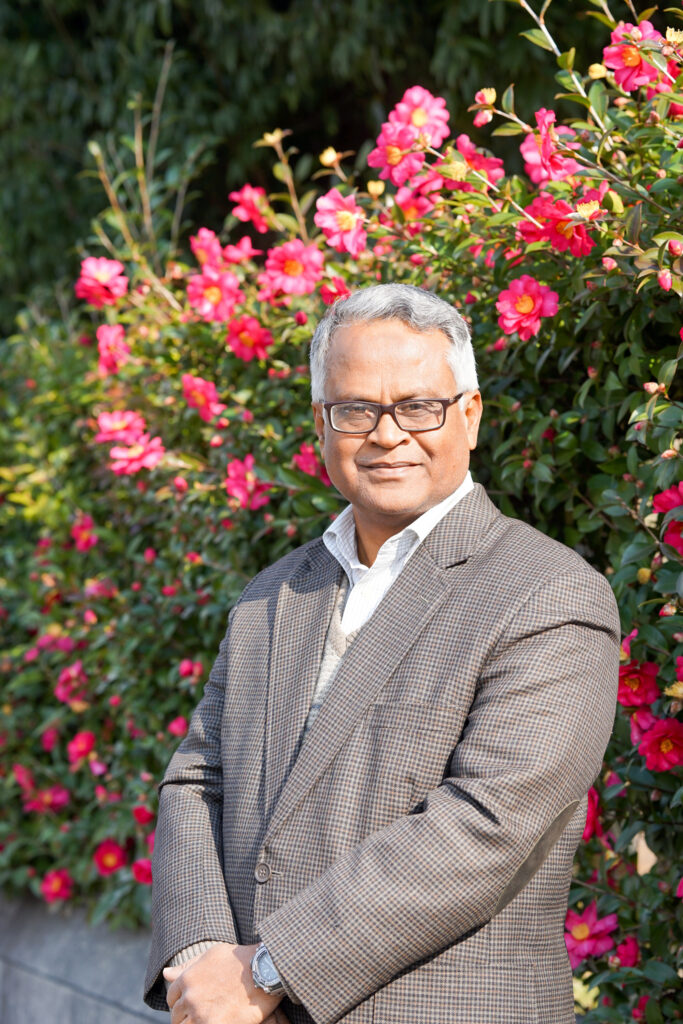
Muhammad SALIM
Agricultural Modernization and Sustainability of Rice Production in Bangladesh: Technological Issues
At the beginning of the Green Revolution in the late 1960s, modern varieties of rice were introduced in a number of developing countries that were struggling to overcome food deficits, including Bangladesh. The area under rice production in Bangladesh since independence in 1971 has been, to date, almost static while production has been increasing over the past four decades. Rice production more than tripled but progress has been slowing down. The yield plateau of rice must be overcome by revamping agricultural research through the development of a wide number of technologies such as development of suitable varieties in different Agro-ecological zones (AEZs), fertilizer management technology, water saving technology and systems of rice intensification (SRI) etc. Globally, the orientation of the development of agricultural is shifting from productivity to sustainability, stability and safety. However, these issues have not been studied properly in Bangladesh. While at CSEAS, I will study and focus on technological issues and the sustainability of rice production in Bangladesh.
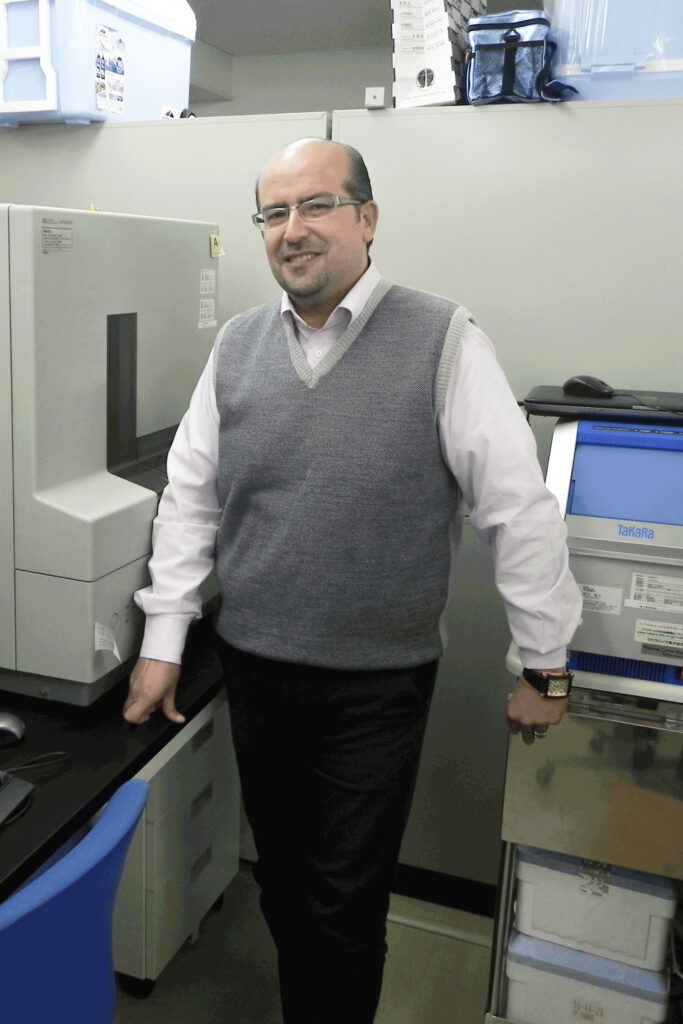
Zaher SAMMAN TAHAN
Examination of some Genes Encoding Virulence-associated Factors in Asymptomatic Bacteriuria Escherichia coli Strain 83972 to Understand its Colonization Mechanism and to Evaluate its Potential Use in Prevention of Symptomatic Urinary Tract Infections
Escherichia coli (E. coli) is a well-known intestinal bacterium as a commensal of the humans and other animals. Most of E. coli strains causes no problem or even are beneficial to their hosts. However, some E. coli strains cause debilitating and sometimes fatal diseases in humans as well as warm-blooded animals. E. coli pathogenic strains are divided into intestinal pathogens causing diarrhea and extraintestinal E. coli causing a variety of infections including meningitis, septicemia and urinary tract infections (UTI’s), the latter being called uropathogenic E. coli strains responsible for urinary tract infections.
UTI is considered to be the most common infections in humans and serious health problem affecting millions of people each year and one of the most common infection in Syrian’s hospitals. The primary infection step of UTI’s by these strains is colonization, i.e., bacterial adherence is generally considered to be a pivotal step in the colonization of host urinary tract epithelium submitted to hydrodynamic flow forces, so that the bacteria can resist removal by urine flow. Bacterial adherence not only contributes to colonization, but also to invasion, biofilm formation, and host cell damage.
Various types of uropathogenic E. coli strains possessing different attachment mechanisms have been reported. Fully virulent uropathogenic E. coli causes symptomatic UTI’s, accompanied by acute inflammation with strong innate immune response and tissue damage. Less virulent strains establish asymptomatic bacteriuria (ABU) accompanied by an innate immune response too weak to cause symptoms.
While at CSEAS I will be studying the difference between uropathogenic E. coli strains isolated from symptomatic UTI’s and their well-characterized virulence factors and an (ABU) E. coli strain 83972. Past molecular characterization of the strains isolated from bacteriuria, a representative UTI, revealed the following virulence-associated factors: various types of fimbria necessary for attachment, formation of biofilm and production of Siderophore; uropathogenic E. coli strains differ from the commensal E. coli by possession and expression of these specific virulence factors involved in interaction with host tissues. So, characterization of E. coli 83972 for possible virulence factors and modification of this strain, if needed, will enable us to use E. coli 83972 as a basis for establishment of a novel strategy to prevent recurrent UTI’s in Syria, which at present is strongly suffering from an internal dispute, and to reduce the everlasting issue of random and uncontrolled use of antibiotics, therapeutic treatment, for which no alternative treatment method is established.
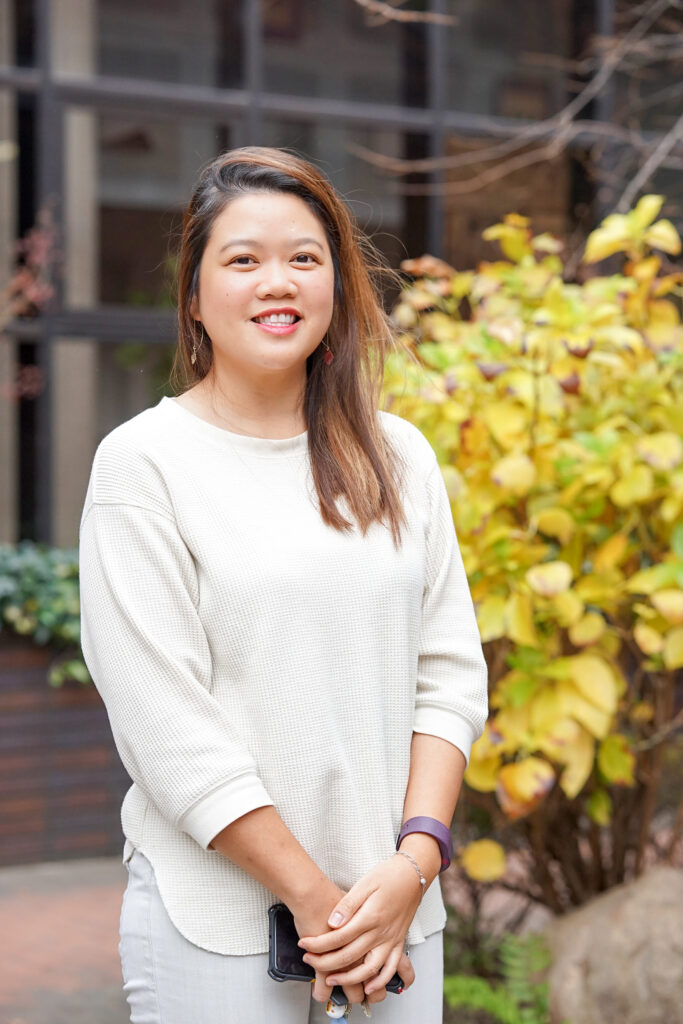
Kathrina MOHD DAUD
While at CSEAS, I will be working on a translation into English of Norsiah Gapar’s Pengabdian. Norsiah Gapar is one of the foremost Malay-language writers in Brunei Darussalam, and was the first female Bruneian writer to win the S.E.A Write Award in 2009. Pengabdian was her debut novel, and the winner of the first novel-writing competition organised by the National Language and Literature Bureau – it remains a staple of the national literature curriculum at the secondary and tertiary levels.
I will also be working on a project to understand and frame the production of contemporary Muslim literature in Southeast Asia, through its engagements with global as well as regional Muslim literature. While classical Muslim literature has been studied extensively, there is much less scholarship on contemporary global Muslim literature, and no comprehensive overview of contemporary Muslim literature in the Malay world in Southeast Asia. There has recently been increased focus on the Muslim Malay countries of Southeast Asia (Brunei, Malaysia, Indonesia) as emerging centers and offering national models for global Islamic civilization. As such, it is an opportune time to examine the cultural production of Islam in the region.
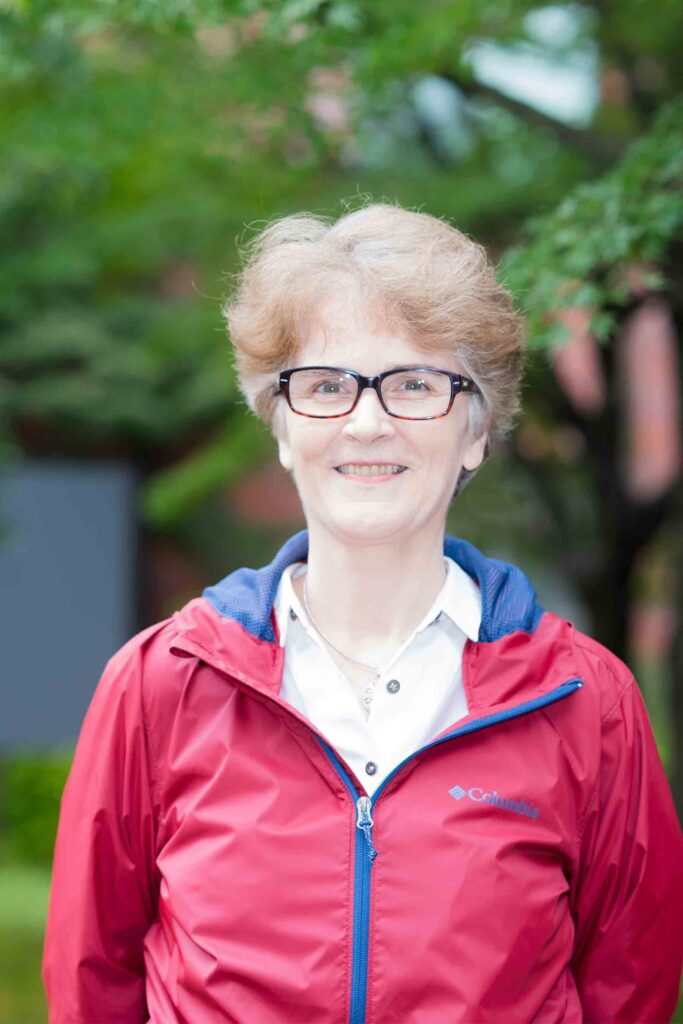
Coeli Barry
While at CSEAS I will work on two interrelated projects, the first of which is a series of short memoir-essays on life as a mother, a teacher and a human rights specialist in Thailand/Southeast Asia. Among other themes, these essays reflect on how the challenges of pursuing a more pluralistic, democratic Thailand has had an impact on both a personal and professional level. Assimilation, internationality and politics also figure into the second project, which looks at migration and higher education in ASEAN. High-skilled international labor on Southeast Asian campuses is valued by policy-makers, university leaders and students, as well by foreign academics. This research examines the gaps and conflicts that can and often do emerge over expectations about what and how foreigners should teach, what role (if any) they should have in shaping research agendas and whether foreign scholars can have a meaningful role in the host society more widely.
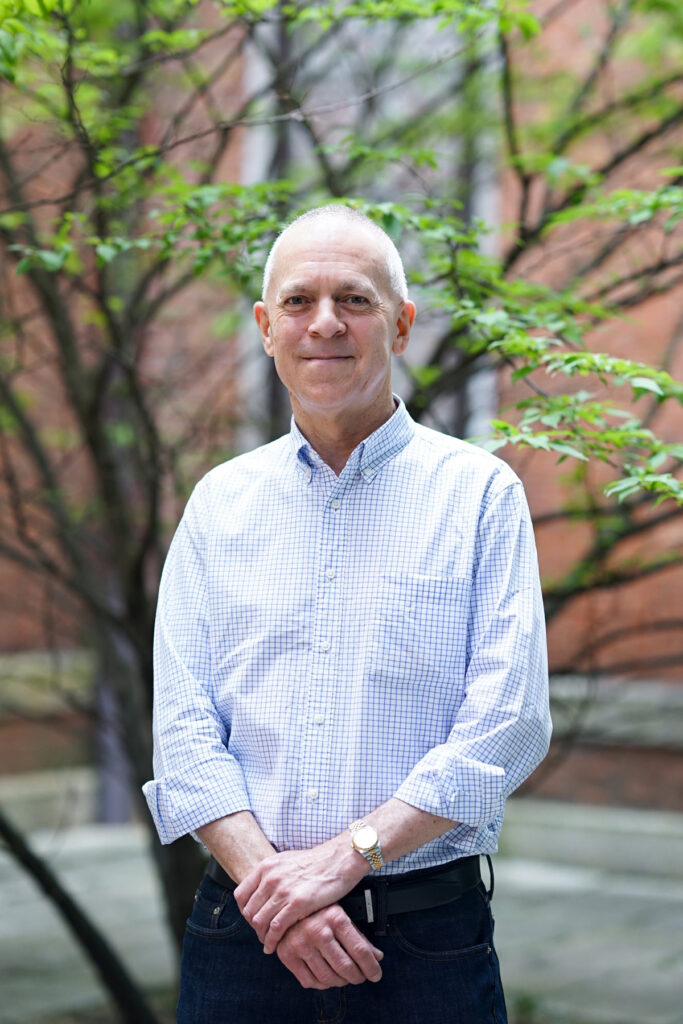
Peter Anthony JACKSON
While at CSEAS I will be studying how new spirit cults in Thailand that seek supernatural intervention to achieve success, wealth, and power have become increasingly popular among senior politicians, civilian and military bureaucrats, and also within royal circles. I am interested in the sociological processes that have seen these cults move from the socio-cultural margins to the centre of national religious life, where they have often been incorporated within state projects under the aegis of Theravada Buddhism. While the political influences of institutional religions in Southeast Asia – Buddhism, Islam, Christianity, and Hinduism – are well-established fields of research, the political significance of supernatural cults outside the major religions is less well understood. Drawing on cross-disciplinary insights from political science, history, anthropology, and religious studies I hope to shed some light on why modernity in 21st century Thailand is producing forms of supernatural “enchantment” that are increasingly central to the exercise of political authority.
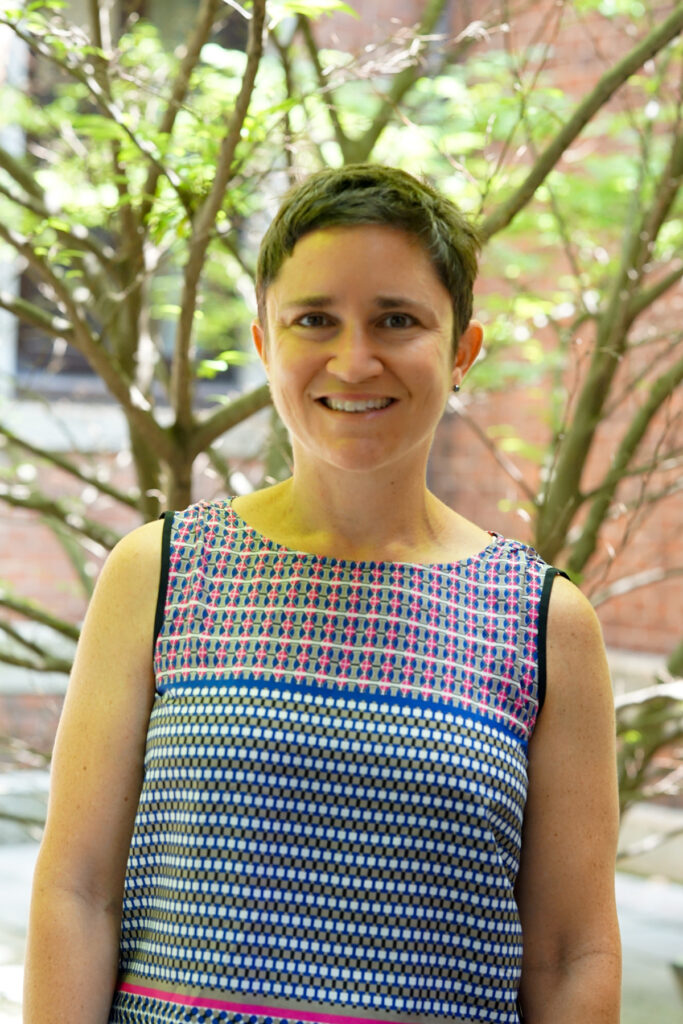
Meredith Leigh Weiss
Malaysia: Politics & Society
I am currently working on two projects: completing a book manuscript on the resilience of the current regimes in Malaysia and Singapore, and a broader inquiry into the nature of Malaysia’s state and civil society. Both these projects draw on qualitative research—mostly interviews, observation, archives, and both primary- and secondary-source documents—and take an interdisciplinary, historical approach. Moving beyond the usual narratives of Malaysia’s communal politics and strong, centralized state, both projects highlight themes of developmentalism and its implications, forms of political participation and contention, and processes of social and political change. I hope this research will add to our understanding of the workings of the distinctive and perennially interesting Malaysian polity.
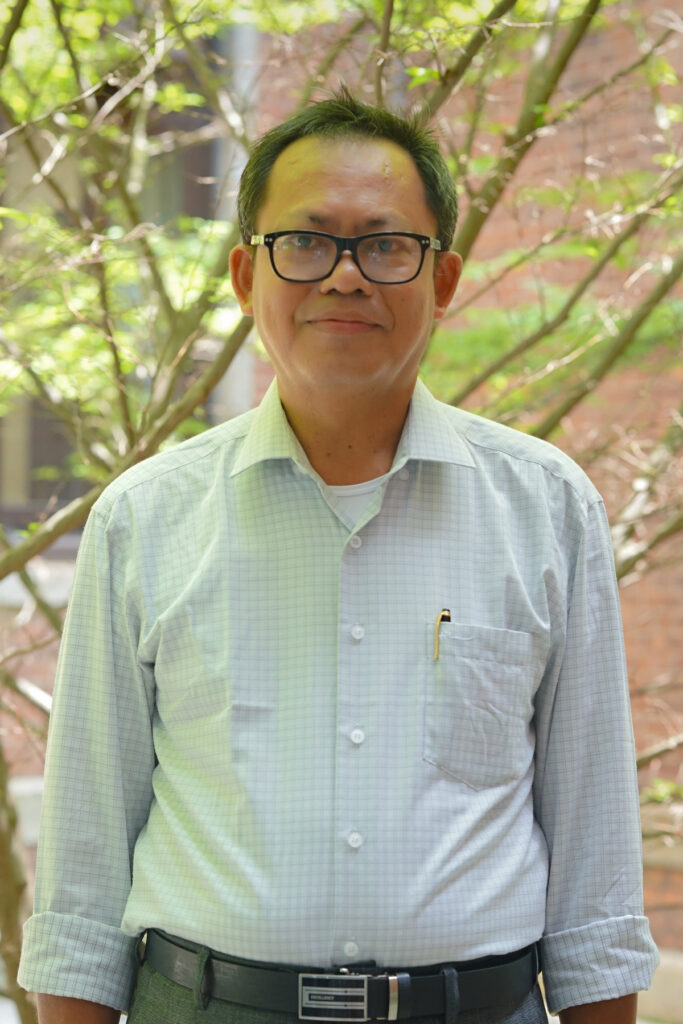
San Tun
The Social Implications of Studying Abhidhamma in Contemporary Myanmar
At CSEAS, Kyoto University, I will conduct a research project to study Abhidhamma, Buddhist Philosophy, and its social implication in contemporary Myanmar Society. In Myanmar’s traditions, there are Buddhist social activities carried out every full moon day of each
month. The full moon day of the seventh month of Myanmar calendar is called Abhidhamma Day and Myanmar Buddhists celebrate “respect and
forgiveness day.” Nowadays, the significant feature of contemporary Myanmar is “political change” and democratization. Through this
process, social, economic, and conceptual change in Myanmar society is a strong influence. My assumption is that some persons apply their
knowledge of Abhidhamma in their problem solving, in terms of friendships, leadership, and of their philosophical attitudes.
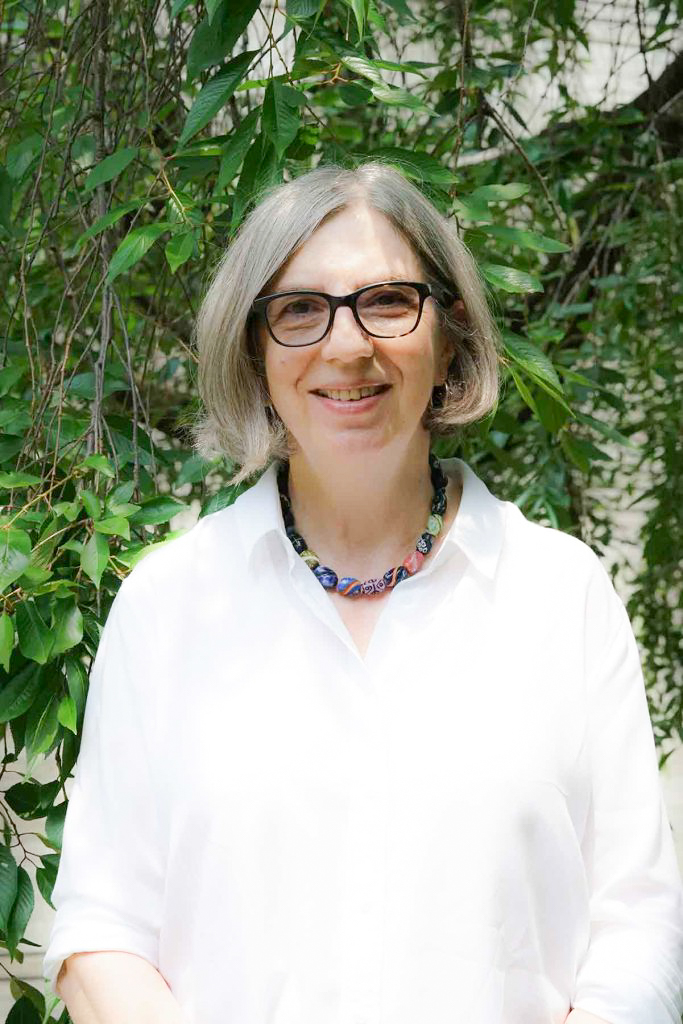
Christine Anne PADOCH
Human mobility has recently been in the international spotlight, as high-volume refugee flows dominate the news. Migration is of course not a new phenomenon in Southeast Asia. While at Kyoto I will pursue a transdisciplinary approach to the study of patterns of mobility, both now and in times past, in the Malaysian state of Sarawak. The research has two specific foci, both of which would serve to update earlier understanding of mobility especially among the Iban. One focus will be upon the fate of one village that was forced to migrate due to the construction of a hydroelectric dam at the town of Lubok Antu in the 1980s. A second focus will be on traditional and new forms of wage-labor migration or “bejalai”. Both will bring historical information, including previously unpublished ethnographic data, to bear on present forms of human mobility and demographic change.
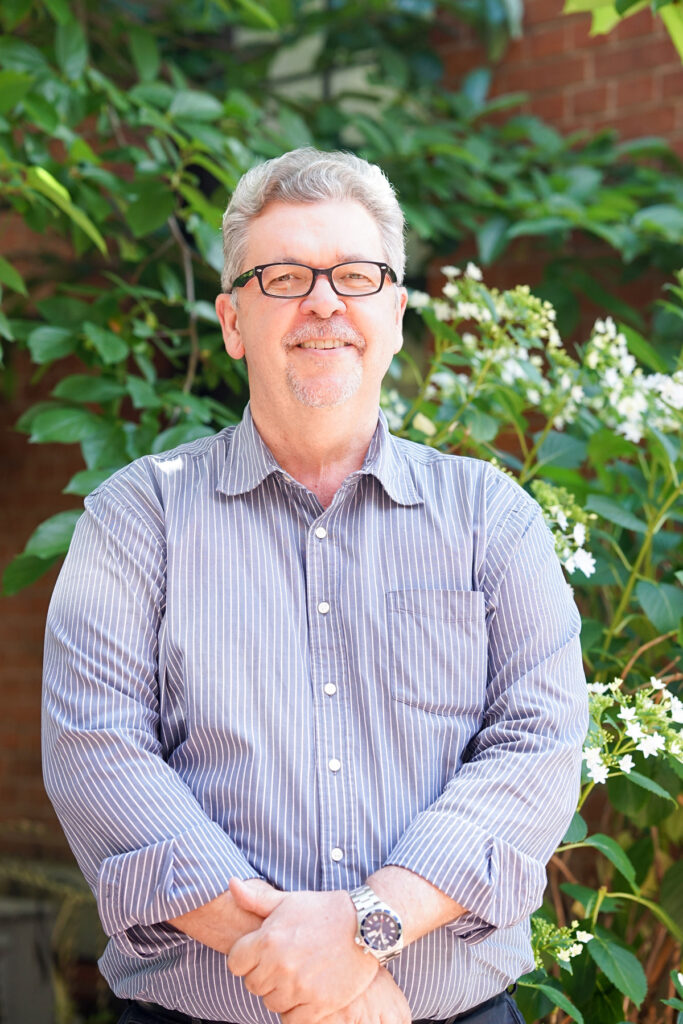
Kevin John HEWISON
Cold War Alliances: The U.S., Counterinsurgency and the Making of the Modern Monarchy
The study of the monarchy role in Thailand’s politics has grown in significance in recent years, with several books and articles appearing and a constant stream of media commentary, much of it associated with the question of succession. Yet there has been less attention to the relationship between Cold War, the political rise of the monarchy and the path of domestic politics. Because of censorship, research in Thailand on this intersection of monarchy, counterinsurgency and the US alliance in Thailand has been all but impossible. This period of research at CSEAS permitted a detailed assessment of US official and semi-official sources at the State Department, Presidential libraries, RAND and the CIA. In fact, a few days after my arrival in Kyoto, the CIA released millions of documents, meaning that I was able to assess the thousands of these relevant to Thailand, from the mid-1940s to the mid-1980s, as well as read and assess a range of published materials. As a result of this all-too-short research period, I was able to make three presentations that reflected on the monarchy, counterinsurgency and succession at CSEAS and GRIPS in Tokyo.
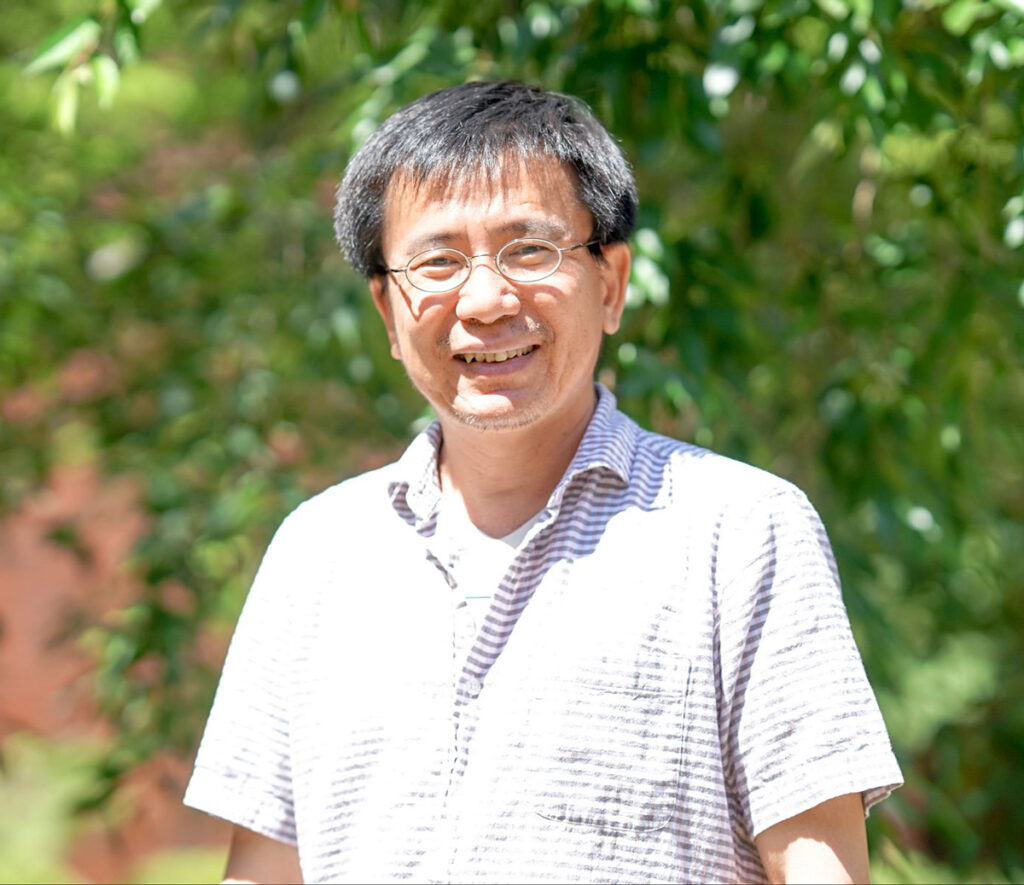
Weera OSTAPIRAT
Prof. Weera Ostapirat is currently carrying out a joint-project at CSEAS with Prof. Nathan Badenoch on the ‘Linguistic past and present of the Palaung people of the Myanmar-China border area’. The primary output of the project will be a volume co-edited with Prof. Badenoch, tentatively titled Exploring the Diversity of the Palaung Languages. This publication will bring together a collection of research papers, including a paper co-authored with Prof. Badenoch, and a large compilation of new data on Palaung languages spoken in Thailand, Myanmar and China.
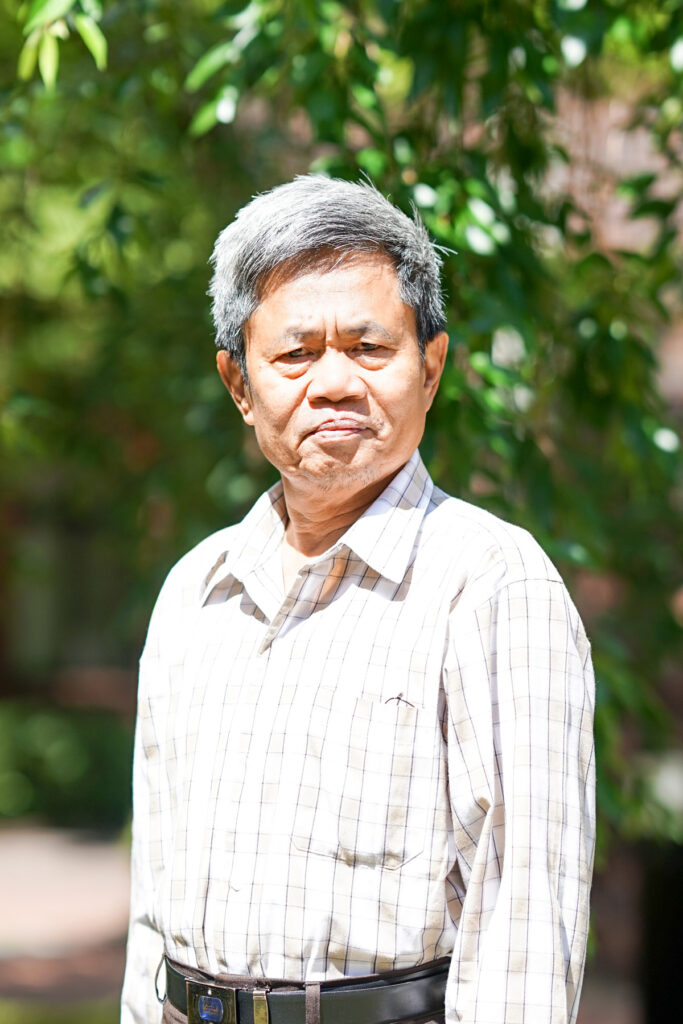
Ali Musa
The CSEAS library contains various collection of books, some of which are special collections that cover South East Asia and Dutch collections. Speaking about my research in CSEAS, so far I have managed several catalogues of the late Prof. T. Igarashi collections. It is an honor for me to be personally acquainted with the collections. The collections that I’ve been managed are mostly journals, magazines and personal works. The special collections contains various languages from Bahasa Indonesia-Jawi-Basa Sunda to Dutch.
Whilst I have been going through Prof. Igarashi collections, I have covered various areas dealing with agriculture, economic development, politics in the colonial period, the revolution, and pre- and post of Indonesian independence.
At last, it such an honor for me to have been given the great opportunity to experience CSEAS’s professional working environment. It is my hope that I will learn from and contribute more to CSEAS in the future.
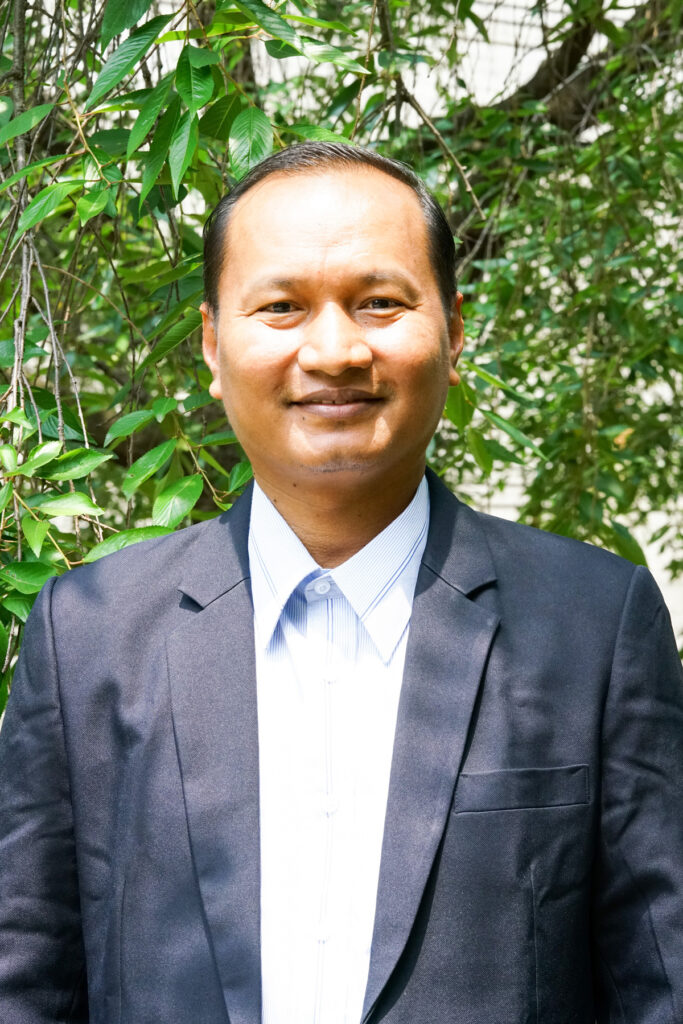
Aung Naing Oo
Food security and socio-economic impacts of soil salinization in the central Myanmar: A case study
Central Myanmar is known as a Dry Zone due to its physical characteristics such as low annual precipitation, uneven distribution patterns, significant high temperatures and low relative humidity. In Htein Kan Gyi village in Myittha Township, Mandalay Division, more than 700 acres of land is salt-affected due to the water logging due to the main canal system of the Kinda Dam. As a result of this, soil salinity has been one of the most important issues for local farmers who live in this village. Decreasing soil productivity caused by salinization has led to social tension, unemployment and reduced incomes for all households. This research at CSEAS will survey the impacts of soil salinity on crop production, food security and socio-economic conditions of this village.
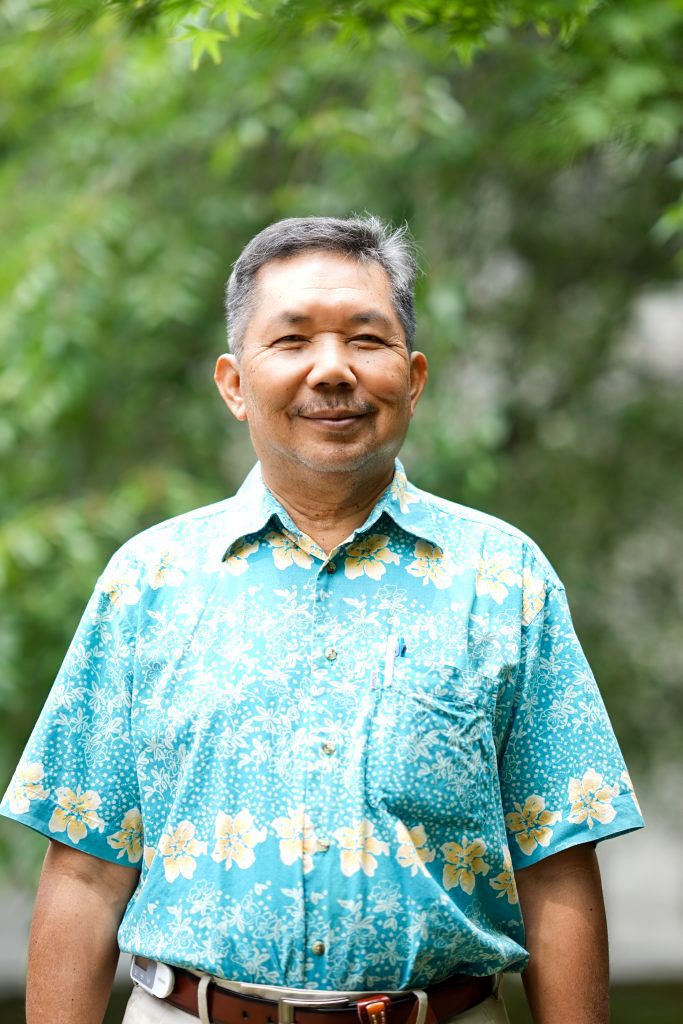
Wan Abdul Manan
While at CSEAS, I was able to review literature and secondary data on obesity in Malaysia and Thailand in relation to food habits, lifestyle and ethnicity, with a particular focus on the Malay population in Southern Thailand and Malaysia. I was also able to compile literature on the prevalence of obesity in Malaysia and Thailand from journals, survey reports, and government documents. The sojourn also afforded me the opportunity to visit South Thailand to discuss collaborations with academics, researchers and doctors in Prince of Songkla University (Pattani and Hatyai campuses) and the Ministry of Public Health, Southern Branch, Pattani. My stay also allowed me to study about the Japanese School Lunch Program, to see if it can be adopted in Malaysia as part of long term measures to combat obesity in children and adults in the future. I visited and observed school lunch preparation in a primary school in Sanda City, Kobe and visited the Museum on Japanese School Lunch Program in Saitama Prefecture.
Seminars presented:
1. “Imagining World-Class ASEAN Universities: Derailed Past and Future Roadmap?” Field Medical Workshop among Thailand, Malaysia and Japan, March 29th, 2017
2. “Nutrition Transition in Malaysia: Deconstructing the Hunger-Obesity Paradox”, CSEAS Colloquium, June 22nd, 2017
3. “Erosion of the Academic Dogma in Malaysian Universities: Drifting in the Abyss of World-Class Quest, “ CSEAS Special Seminar, July 3, 2017
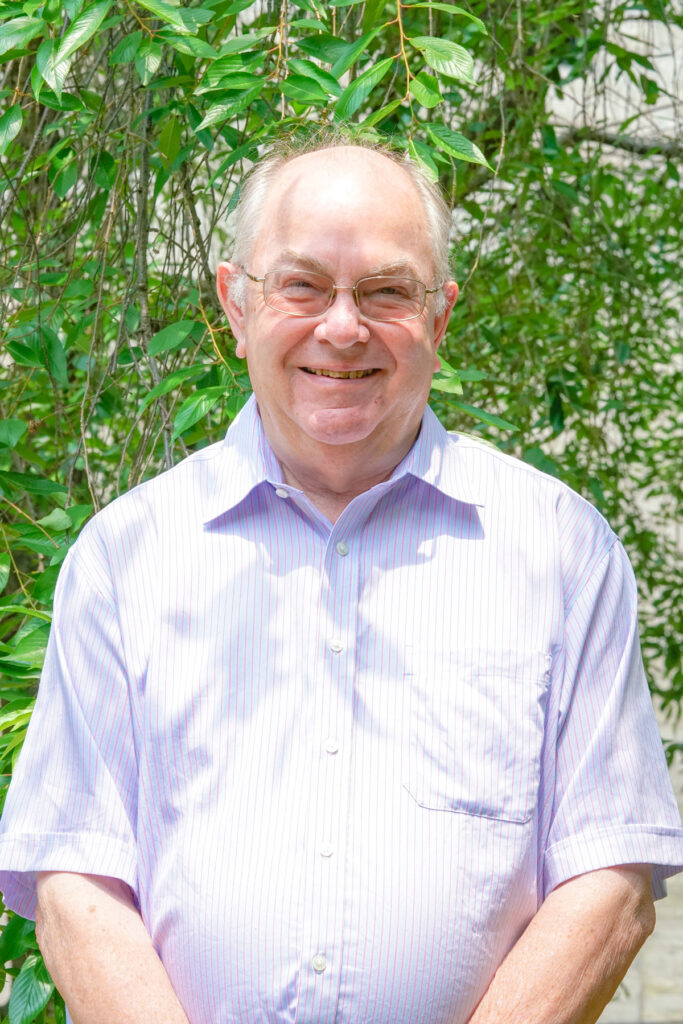
TAYLOR Robert Henry
The Comparative Study of the Military in Southeast Asian Politics
The study of the role of the military in Southeast Asian politics has been a topic of interest to students of the region since the early days of the Cold War. Now, in the post-Cold War period, emphasis has switched to the study of ‘democratisation’ but the military is still present and no successful transition to a civilian constitutional order is possible without the cooperation of a state’s army. During my time at Kyoto I studied much of the new literature on this topic, particularly in regard to Indonesia and the Philippines about which I was less familiar than that on Myanmar and Thailand. The resources of the Centre’s and the University’s libraries were essential to cover such an extensive literature expeditiously. As a consequence, I was able to make presentation on this topic to seminars in Hiroshima, Osaka, and at CSEAS as well as give a talk on the study of Myanmar politics since the 1950s in Tokyo.
List of fellows
| Name | Period | Affiliation | Research Title | Position |
|---|---|---|---|---|
FY2020 |
||||
| HERBELIN, Caroline Bich-Lien | 1/21/2021 7/1/2021 |
Assistant Professor, Asian History and Civilization, Université Toulouse – Jean Jaurès | A History of Vietnamese Court Painting, 1859-1926 | Guest Research Associate |
| ASO, Michitake | 1/19/2021 5/18/2021 |
Associate Professor, History Department, College of Arts and Sciences, University at Albany, SUNY | Resisting Environmental Warfare in Southeast Asia During the Cold War | Visiting Research Scholar |
| Boon Kia Meng | 1/1/2021 3/31/2021 |
Deputy Dean, Faculty of Cinematic Arts, Multimedia University | The Development of Protest Policing and Public Order Governance in Malaysia (2011-2020) |
Guest Research Associate |
| RUIZ TAFOYA, Heriberto | 10/1/2020 9/30/2022 |
Corporate food-regimes, food-politics and wellbeing: Deskilling the urban poor in the Global South | Guest Research Associate | |
| KIMURA, Ehito | 6/29/2020 5/31/2021 |
Associate Professor, Department of Political Science, University of Hawai’i at Manoa | Transitional Justice in Indonesia | Guest Scholar |
| Name | Period | Affiliation | Research Title | Position |
FY2019 |
||||
| SCHREURS, Jeanine | 3/1/2020 5/31/2020 |
Director, Foundation LIFT | Towards Sustainable Living | Visiting Research Scholar |
| CHAMBERS, Paul Wesley | 3/1/2020 5/31/2020 |
Lecturer and Special Advisor on International Affairs, Center of ASEAN Community Studies, Faculty of Social Sciences, Naresuan University | The Political Economy of Thailand’s Arch-Royalist Military | Visiting Research Scholar |
| BUEHLER, Michael | 2/7/2020 7/15/2020 |
Senior Lecturer, Politics and International Relations, SOAS, University of London | The diffusion of shari’a laws in democratizing Muslim-majority countries: The case of Indonesia | Visiting Research Scholar |
| TEEHANKEE, Julio Cabral | 2/1/2020 4/30/2020 |
Full Professor, International Studies Department, De La Salle University | Between Elitist Liberals and Illiberal Democrats: The Rise of Nationalist-Populism in Southeast Asia | Visiting Research Scholar |
| IKEYA, Chie | 1/29/2020 8/31/2020 |
Associate Professor, Department of History, Rutgers University | Inter-Asian Intimacies: The Politics of Belonging in Burma Across British and Japanese Colonialisms | Guest Scholar |
| MOLLE, François Pierre Marie | 1/16/2020 7/15/2020 |
Principal Researcher, Research Unit G-Eau, Institute of Research for Development | A socio-environmental history of the Chao Phraya River Basin, Thailand | Visiting Research Scholar |
| FERGUSON, Jane Martin | 1/16/2020 7/15/2020 |
Senior Lecturer, Culture History and Languages, The Australian National University | Silver Screens Golden Dreams: A Social History of Burmese Cinema | Visiting Research Scholar |
| MIETZNER, Marcus | 1/15/2020 5/15/2020 |
Associate Professor, Department of Political and Social Change, The Australian National University | Coalitional presidentialism in Indonesia | Guest Scholar |
| CHANG, Wen-Chin | 12/1/2019 5/31/2020 |
Research Fellow, Center for Asia-Pacific Area Studies, Research Center for Humanities and Social Sciences, Academia Sinica | Clandestine Travel across the Sino-Burmese Border During the Cold War | Guest Scholar |
| MC WILLIAM, Andrew | 11/12/2019 12/12/2019 |
Professor, School of Social Science and Psychology, Western Sydney University | Maritime Livelihoods, Social Protection and the Moral Economy in Southeast Sulawesi, Indonesia | Guest Scholar |
| Aliah B. Purwakania Hasan | 11/1/2019 11/30/2019 |
PhD student, School of Environmental Science, University of Indonesia | Ecospiritual Empowerment Model of Ciliwung Watershed Conservation Program in South Jakarta | Guest Research Associate |
| Jenny Delly | 11/1/2019 11/30/2019 |
PhD student, School of Environmental Science, University of Indonesia | The Effect of Mining Port against Community Social Life | Guest Research Associate |
| Masni Dyta Anggriani | 11/1/2019 11/30/2019 |
PhD student, School of Environmental Science, University of Indonesia | Building the Resiliency of Socio-hydrological System for Sustainable River Ecosystem Services in Indonesia (A Study in Citarum River Basin, West Java Province) | Guest Research Associate |
| SANCHEZ, Jean-Noël | 10/7/2019 10/20/2019 |
Associate Professor, Culture et Histoire dans l’Espace Roman, Université de Strasbourg | Early rōnin diaspora as mercenaries through the case of the Spanish expedition to Cambodia | Guest Scholar |
| Ni Win Zaw | 10/1/2019 12/31/2019 |
Professor, Department of Library and Information Studies, University of Yangon | An Annotated Bibliography of the Doctoral Dissertations Submitted to the University of Yangon (2000-2018) | Visiting Research Scholar |
| Min Min Htun | 10/1/2019 12/31/2019 |
Lecturer, Library and Information Studies, University of Yangon | The Study of Literature Magazines Published in Myanmar (1941-1961) | Visiting Research Scholar |
| CHEESMAN, Nick | 10/1/2019 1/15/2020 |
Fellow, Australian National University | Torture and political order in Myanmar and Thailand | Guest Scholar |
| SHI, Qin | 10/1/2019 9/30/2020 |
PhD Candidate, Research School for Southeast Asia Studies, Xiamen University | History and Aid:Japan’s Burma Policy after World War II | Guest Research Associate |
| Aung Aung (IR) | 10/1/2019 3/31/2020 |
freelance writer & independent researcher | The International Politics of Rakhine Crisis in Myanmar: China, Japan, and United States | Guest Research Associate |
| KIM, German | 9/15/2019 12/14/2019 |
Director of the Center for Korean Studies, Professor of the Faculty of Oriental Studies, al-Farabi Kazakh National University | Transnational Migration Vs Repatriation of Koreans to the kin state and metamorphoses of identities in comparative perspective | Visiting Research Scholar |
| WAN ALI WAN MAMAT | 9/15/2019 12/14/2019 |
Head of Department, Department of Malay World Studies, International Islamic University of Malaysia | To catalog and evaluate Jawi collections in University of Kyoto library | Visiting Research Scholar |
| LEMIERE, Sophie | 9/1/2019 12/31/2019 |
Researcher, Ash Center for Democracy, Harvard University | Gangsters and Masters: The Invention of Legitimacy in Malaysia and Beyond | Visiting Research Scholar |
| Iqra Anugrah | 8/15/2019 8/14/2021 |
Research Associate, Institute for Social and Economic Research, Education & Information (LP3ES) | Agrarian Politics in Contemporary Indonesia: Decentralized Politics, Dispossession, Countermovement. | Guest Research Associate |
| CHIEN, Mei-Ling | 8/1/2019 1/31/2020 |
Professor, College of Hakka Studies, Department of Humanities and Social Sciences, National Chiao Tung University | Writing the Multiple Modernities of the Minority in Southwest China: Life Historical Narrations and the Rural Immigrants of the Hmub in Eastern Guizhou (1930s-2010s) | Visiting Research Scholar |
| GOH, Beng Lan | 8/1/2019 9/3/2019 |
Adjunct Professor, Faculty of Humanities University of Indonesia | Silent Revolution: Changing Mindsets as Radical Politics in 21st Century Malaysia | Guest Scholar |
| CHEESMAN, Nick | 7/1/2019 9/30/2019 |
Fellow, Department of Political & Social Change, Coral Bell School of Asia Pacific Affairs, College of Asia & the Pacific, Australian National University | Torture and political order in Myanmar and Thailand | Visiting Research Scholar |
| JIA, Li | 7/1/2019 8/31/2019 |
Associate Professor, School of Education Science and management, Yunnan Normal University | Theory of Mind for Children Psychological Development in Ethnic Region of China | Guest Scholar |
| BASSINO, Jean-Pascal | 6/20/2019 7/20/2019 |
Professor, École Normale Supérieure de Lyon | The First East Asian Economic Miracle: Wages, Living Standards and Foundations of Modern Economic Growth in Southeast Asia, 1880-1938 | Guest Scholar |
| Benny Baskara | 6/10/2019 9/9/2019 |
Lecturer, Department of Anthropology, Faculty of Cultural Science, Halu Oleo University | The Expansion of Tabligh Jama’ah and its Influence on the Religious Belief of Bajo People | Visiting Research Scholar |
| HE, Jun | 6/1/2019 8/31/2019 |
Professor, School of Ethnology and Sociology, Yunnan University | Coffee Production, global value chain and ethnic minorities in Chinese borderlands at Upper Mekong region | Visiting Research Scholar |
| KEENAN, Rodney John | 6/1/2019 8/31/2019 |
Professor, School of Ecosystem and Forest Sciences, University of Melbourne | Scaling forest restoration in South East Asia through integrating timber production and private sector investment | Visiting Research Scholar |
| CHANG, Wen-Chin | 6/1/2019 11/30/2019 |
Research Fellow, Center for Asia-Pacific Area Studies, Research Center for Humanities and Social Sciences, Academia Sinica | Clandestine Travel across the Sino-Burmese Border During the Cold War | Visiting Research Scholar |
| ISHIKAWA, Ken | 6/1/2019 1/31/2020 |
Senier Content writer, Comodo Philippines Inc. | Japanese-Fillipino Children | Guest Research Associate |
| CHAICHING, Nattapoll | 6/1/2019 11/30/2019 |
Assistant Professor, Faculty of Humanities and Social Science/ Social Science, Suan Sunandha Rajabhat University | The Destinies and Memories of Thai prisoners of war in The Allied Territories (1945-1946): From the diplomats , Intellectuals to common people | Guest Research Associate |
| BERNAL, Gabriela | 5/27/2019 6/21/2019 |
dual degree graduate student, International Peace and Security, King’s College London | How has Japan helped improve the balance of power in Southeast Asia by using soft power and multilateral diplomacy? | Guest Research Associate |
| GOH, Beng Lan | 5/1/2019 7/31/2019 |
Associate Professor, Department of Southeast Asian Studies, Faculty of Arts and Social Sciences, National University of Singapore | Silent Revolution: Changing Mindsets as Radical Politics in 21st Century Malaysia | Visiting Research Scholar |
| BONNAFE, Alain | 5/1/2019 9/3/2019 |
Assoc. Researcher, The Toulouse Mathematis Institute | Comparison of National Mathematical Olympiads (N.M.O.) and International Mathematical Olympiads (I.M.O.), Objectives, Practices and Results, in Singapore and in Malaysia, the case of Japan serving as a eference | Guest Research Associate |
| Name | Period | Affiliation | Research Title | Position |
FY2018 |
||||
| KASETSIRI, Charnvit | 3/28/2019 6/4/2019 |
Prof. Emeritus, Southeast Asian Studies, Faculty of Liberal Arts, Thammasat University | Comparative Studies of the last decade of the two long Reigns in Siam/Thailand : King Rama V 1868-1910 and King Rama IX 1946-2016 | Guest Scholar |
| TRAN, Nhung Tuyet | 3/15/2019 8/31/2019 |
Associate Professor, Department of History, University of Toronto | Catechism, Faith, & Practice: A Cultural History of Vietnamese Catholicism, 1663-1783 | Visiting Research Scholar |
| DE JESUS, Edilberto | 3/10/2019 6/9/2019 |
Non-Resident Research Fellow, School of Government, Ateneo de Manial University | The Duterte Administration at Mid-Term: Review and Reconnaissance | Visiting Research Scholar |
| DE JESUS, Melinda Quintos | 3/10/2019 6/9/2019 |
Executive Director/Founding Incorporator, Center for Media Freedom and Responsibility | Promoting a Free and Independent Press in Southeast Asia | Guest Scholar |
| Dianto Bachriadi | 3/1/2019 8/30/2019 |
Senior Researcher & Head of the Association, Agrarian Resource Center | Land Conflicts in Contemporary Indonesia and its Meaning in the Historical Context | Guest Scholar |
| SRIPANA, Thanyathip | 2/16/2019 5/15/2019 |
Committee Member, Thailand-Vietnam Friendship Association, Ministry of Foreign Affairs (Thailand) | Gender Diversity in Changing Vietnam | Visiting Research Scholar |
| HIRSCH, Philip | 2/15/2019 5/14/2019 |
Emeritus Professor, School of Geosciences/Sydney Southeast Asia Centre, University of Sydney | Demarcating the public and private: natural resource and environmental governance in the Mekong Region | Visiting Research Scholar |
| Tubtim Tubtim | 2/15/2019 5/14/2019 |
Coordinating researcher, National University of Singapore | Small holders in Thailand: Transformations and persistence | Guest Research Associate |
| SERIÑO, Moises Neil Villaflor | 1/24/2019 3/25/2019 |
Assistant Professor, Department of Economics, Visayas State University | Investigate and value the protection services provided by mangroves to coastal communities during occurrence of super typhoons and storm surges in the Philippines. | Guest Research Associate |
| JORY, Patrick | 1/20/2019 4/19/2019 |
Senior Lecturer, School of Historical and Philosophical Inquiry, Faculty of Humanities and Social Sciences, University of Queensland | The Politics of Politeness: A History of Manners in Thailand | Visiting Research Scholar |
| LIZÉ, Sulian | 1/1/2019 3/31/2019 |
PhD Candidate, International Development, The University of Edinburgh | The Rice Market and Derivative Contracts in Southeast Asian | Guest Research Associate |
| MIETZNER, Marcus | 1/1/2019 2/28/2019 |
Associate Professor, Department of Political and Social Change, Australian National University | Autocratic Endurance and Democratic Fragility: Democratization and its Obstacles in Southeast Asia | Guest Scholar |
| JUNQUERA, Victoria | 11/8/2018 2/7/2019 |
Doctoral Student, Dep. of Civil, Environmental & Geomatic Engineering, ETH Zurich, Switzerland | Cash crop booms at the frontier: dynamics and impacts on deforestation | Guest Research Associate |
| BOLASCO, Maria Karina Africa | 11/1/2018 4/30/2019 |
Director, Ateneo de Manila University Press | Untold Lives and the Philippine Political Revolution of the Long 1970s. | Visiting Research Scholar |
| FAROUQUE, Mohammad Golam | 11/1/2018 1/31/2019 |
Professor, Department of Agricultural Extension Education, Faculty of Agriculture Bangladesh Agricultural University | Prospects and Challenges of Managing Natural Resources through Community-based Approach in Bangladesh | Visiting Research Scholar |
| HOLMES, Ronald Everette David | 11/1/2018 2/28/2019 |
Assistant Professor, Department of Political Science, De La Salle University | The Filipino as a voter/citizen: Understanding Philippine politics from the ground | Guest Scholar |
| MARTINEZ URTAZA, Jaime Luis | 10/21/2018 10/31/2018 |
Senior Scientist, Center for Environment, Fisheries and Aquaculture Science, United Kingdom | Global Epidemiology of Vibrio infections | Guest Scholar |
| Swe Swe Mar | 10/1/2018 12/31/2018 |
Lecturer, Department of Soil and Water Science, Yezin Agricultural University | Assessment of farmers’ attitude towards the use of inorganic and organic fertilizers for rice cultivation in central Myanmar | Visiting Research Scholar |
| Nina Yulianti | 9/24/2018 12/23/2018 |
Lecturer, Doctoral Program in Environmental Science, University of Palangka Raya | Evaluating Social and Health Impacts of Fire and Haze on Local Livelihoods in Tropical Peatland | Guest Scholar |
| Dianto Bachriadi | 9/1/2018 2/28/2019 |
Senior Researcher, & Head of the Association, Agrarian Resources Centre (ARC), Indonesia | Land Conflicts in Contemporary Indonesia and its Meaning in the Historical Context | Visiting Research Scholar |
| YABES, Maria Criselda Judy | 9/1/2018 10/31/2018 |
Independent Writer and Journalist | Historical Memories and Their Role in Philippine Literature | Guest Research Associate |
| Lwin Bo Bo Thet | 8/23/2018 9/7/2018 |
Demonstrator, Agricultural Engineering, Yezin Agricultral University | Regional Agricultural Cooperation | Guest Scholar |
| Ah Kah Myint | 8/23/2018 9/7/2018 |
Demonstrator, Plant Breeding Department, Yezin Agricultural University | Regional Agricultural Cooperation | Guest Scholar |
| MIETZNER, Marcus | 7/1/2018 12/31/2018 |
Associate Professor, Department of Political and Social Change, Coral Bell School of Asia Pacific Affairs, College of Asia and the Pacific, Australian National University | Autocratic Endurance and Democratic Fragility: Democratization and its Obstacles in Southeast Asia | Visiting Research Scholar |
| KASETSIRI, Charnvit | 6/7/2018 8/7/2018 |
Prof.Emeritus, Thammasat University | Comparative Studies of the last decade of the two long Reigns in Siam/Thailand : King Rama V 1868-1910 and King Rama IX 1946-2016 | Guest Scholar |
| KIMURA, Ehito | 6/4/2018 7/25/2018 |
Associate Professor of Political Science, University of Hawai’i at Manoa | 20 Years after Suharto | Guest Scholar |
| ESGUERRA, Alicia Chavarria | 6/1/2018 11/30/2018 |
Associate Professor, Faculty of College of Education, Bulacan State University | Comparative Study of Library Education and Practice in Japan and the Philippines with Implication Towards Collaboration | Visiting Research Scholar |
| THOMAS, Kimberley Anh | 6/1/2018 5/15/2019 |
Assistant Professor, Department of Geography, The Pennsylvania State University, University Park | Japan-Vietnam Linkages in Climate Finance Justice | Guest Scholar |
| VILLACORTA, Wilfrido Villacorta | 5/8/2018 8/7/2018 |
Professor Emeritus, De La Salle University | The Future of ASEAN: The Role of Japan and China | Visiting Research Scholar |
| HOLMES, Ronald Everette David | 5/1/2018 10/31/2018 |
Assistant Professor, Institute: Department of Political Science, De La Salle University | The Filipino as a voter/citizen: Understanding Philippine politics from the ground | Visiting Research Scholar |
| Ahmad Hezri Bin Adnan | 5/1/2018 10/31/2018 |
Director and Senior Fellow, Institute of Strategic and International Studies (ISIS) Malaysia | Retro-fitting or Transformation? Sustainable Development Goals and Public Policy in Southeast Asia | Visiting Research Scholar |
| Raja Hendrik Napitupulu | 4/28/2018 6/10/2018 |
Policies Studies Program from University of Gadjah Mada | Adaptive Abilities of Government Policy in the Fire of Peatland Issues of the Period Year 1997 – 2017 | Guest Scholar |
| DÜRKOP, Colin Andreas | 4/9/2018 7/8/2018 |
Instructor on freerance basis, Academy for International Cooperation | ASEAN and BSEC – A comparative analysis between two Regional Organizations | Visiting Research Scholar |
| DUAN, Zheng | 4/2/2018 4/16/2018 |
Lecturer, Chair of Hydrology and River Basin Management, Technical University of Munich | Integrated river basin management of water resources and ecosystem in Southeast Asia | Guest Scholar |
| Name | Period | Affiliation | Research Title | Position |
FY2017 |
||||
| CHENG, Ke-Sheng | 3/31/2018 8/31/2018 |
Professor, Department of Bioenvironmental Systems Engineering, National Taiwan University | Detecting hydrological changes and assessing the impact of climate change in Southeast Asia | Guest Scholar |
| PATHMANAND, Ukrist | 3/29/2018 4/27/2018 |
Director of Mekong Research Center, Institute of Asian Studies, Chulalongkorn University | Japan’s role for Greater Mekong Sub Region since Post Cold War : Why, how and Trends? | Guest Scholar |
| MELBER, Takuma Winfried | 3/24/2018 4/13/2018 |
Lecturer and Coordinator of the Master „ Transcultural Studies“ Programme at the Cluster of Excellence “Asia and Europe in a Global Context”, Heidelberg University | A history of the Overseas German Community in Southeast Asia in the 19th/early 20th century | Guest Scholar |
| CHALERMPONG, Saksith | 3/16/2018 6/15/2018 |
Associate Professor, Division of Transportation Engineering, Department of Civil Engineering, Faculty of Engineering, Chulalongkorn University | The Political Economy of Public and Informal Transport in Thailand | Visiting Research Scholar |
| BARRY, Coeli | 3/15/2018 6/1/2018 |
Associate Professor, M.A. Human Rights Studies & PhD Human Rights and Peace Program | Scholar Migrants and Intellectual Communities in ASEAN/Southeast Asia | Guest Scholar |
| 畢(Bi) 世鴻(Shihong) | 2/2/2018 2/20/2018 |
Prof. of School of International Studies, Deputy Director of Institute of the Belt and Road Initiatives/Institute of South Asia and Southeast Asian Studies, Yunnan Univ. | International Cooperation between Japan and South,Southeast Asia – Japan’s recognition on Belt and Road Initiative | Guest Scholar |
| PHONGSAVATH, Sypha | 2/1/2018 4/30/2018 |
Head of Information Service Department of the Central Library, National University of Laos | Compiling Academic and Non-Academic Journal Titles are published in Laos for Making the National Journal Bibliography Books | Visiting Research Scholar |
| THONGPHANITH, Phoukham | 2/1/2018 4/30/2018 |
Librarian, National Library of Laos | Creating and Printing of the National Bibliography | Visiting Research Scholar |
| PAWAKAPAN, Puangthong | 2/1/2018 7/31/2018 |
Associate Professor at the Department of International Relations, Faculty of Political Science, Chulalongkorn University | ISOC as the Thai Military’s Anti-Democratic Machination | Visiting Research Scholar |
| Dianto Bachriadi | 1/29/2018 2/16/2018 |
Chairman, Agrarian Resource Center, Indonesia | Land Conflicts in Contemporary Indonesia and its Meaning in the Historical Context | Guest Scholar |
| SALIM, Muhammad | 1/1/2018 3/31/2018 |
Professor, Bangladesh Agricultural University | Agricultural Modernization and Sustainability of Rice Production in Bangladesh: technological issues | Visiting Research Scholar |
| MOHD DAUD, Kathrina | 12/1/2017 2/28/2018 |
Deputy Dean (Academic), Faculty of Arts and Social Sciences, Universiti Brunei Darussalam | Norsiah Gapar’s Pengabdian and Contemporary Muslim Narratives in the Nusantara | Visiting Research Scholar |
| APHORNSUVAN, Thanet | 10/16/2017 1/12/2018 |
Distinguished Fellow, Thammasat University | The Moralist Political Discourse and the Demise of Democracy in Thailand | Guest Scholar |
| TAHAN, Zaher Samman | 10/6/2017 4/5/2018 |
Associate Professor, Department of Microbiology, Faculty of Science, Aleppo University | Detection of virulence factors genes (fimbrial types, biofilm and siderophore systems) in asymptomatic bacteriuria Escherichia coli strain 83972 in order to understand its colonization mechanism. | Visiting Research Scholar |
| JACKSON, Peter Anthony | 10/1/2017 3/31/2018 |
Professor, Australian National University | Sociological and Political Dimensions of the Resurgence of Supernatural Ritual in Thailand | Visiting Research Scholar |
| BARRY, Coeli | 9/15/2017 3/14/2018 |
Associate Professor, Mahidol University, Institute of Human Rights & Peace Studies | Scholar Migrants and Intellectual Communities in ASEAN/Southeast Asia | Visiting Research Scholar |
| OSTAPIRAT, Weera | 9/1/2017 11/30/2017 |
Associate Professor, Research Institute for Languages and Cultures of Asia, Mahidol University | Linguistic past and present of the Palaung people of the Myanmar-China border area | Guest Scholar |
| WEISS, Meredith Leigh | 7/24/2017 1/23/2018 |
Professor, University at Albany, SUNY Rockefeller College of Public Affairs & Policy Department of Political Science |
Malaysia: Politics and Society | Visiting Research Scholar |
| San Tun | 7/1/2017 9/30/2017 |
Department of Philosophy Dagon University |
Social Implication of Studying Abhidhamma in the Contemporary Myanmar | Visiting Research Scholar |
| CHENG, Ke-Sheng | 6/21/2017 9/19/2017 |
Professor, Department of Bioenvironmental Systems Engineering, National Taiwan University | Detecting hydrological changes and assessing the impact of climate change in Southeast Asia | Guest Scholar |
| Ali Musa | 6/1/2017 11/30/2017 |
Senior Librarian, Ajip Rosidi Library, The Sundanese Study Centre | Preservation and Maintenance of Special Collection | Visiting Research Scholar |
| KIMURA, Ehito | 6/1/2017 7/22/2017 |
Associate Professor, Department of Political Science, College of Social Science, University of Hawaii at Manoa | The Local Roots of National Power in Southeast Asia | Guest Scholar |
| KASETSIRI, Charnvit | 5/15/2017 7/10/2017 |
Professor Emeritus, Southeast Asian Studies, Faculty of Liberal Arts, Thammasat University | After the King Rama IX passed away 13 October 2016 | Guest Scholar |
| PADOCH, Christine Anne | 5/15/2017 11/14/2017 |
Adjunct Professor, Department of Ecology, Evolution and Environmental Biology, Columbia University | Updating Understanding of Human Mobility, Livelihood Transitions, and Changes in Landscape Patterns in Borneo | Visiting Research Scholar |
| Aung Naing Oo | 5/1/2017 7/31/2017 |
Associate Professor, Department of Soil and Water Science, Yezin Agricultural University | Food Security And Socio-Economic Impacts Of Soil Salinization In The Central Myanmar | Visiting Research Scholar |
| DAO, Minh Truong | 4/20/2017 7/27/2017 |
Researcher, Central Institute for Natural Resources and Environmental Studies, Vietnam National University, Hanoi | Studies on land use dynamics in Southeast Asia | Guest Research Associate |
| DAQUILA, Teofilo Corales | 4/3/2017 5/31/2017 |
Associate Professor & MA Coursework Coordinator, Department of Southeast Asian Studies, Faculty of Arts & Social Sciences, National University of Singapore | Internationalising Higher Education in Asia Pacific: Australia, Japan and Singapore | Guest Scholar |
| LE HOANG, Ngoc Yen | 4/1/2017 3/31/2019 |
Lecturer, General Education Program, Hoa Sen University | Affliction, stigma and care regimes among leprosy sufferers in Vietnam | Guest Research Associate |
| Name | Period | Affiliation | Research Title | Position |
FY2016 |
||||
| TAYLOR, Robert Henry | 3/13/2017 6/12/2017 |
Professorial Research Associate, School of Oriental and African Studies, University of London | Armies in the Politics of South East Asia | Visiting Research Scholar |
| OSTAPIRAT, Weera | 3/1/2017 8/31/2017 |
Associate Professor, Research Institute for Languages and Cultures of Asia, Mahidol University | Linguistic past and present of the Palaung people of the Myanmar-China border area | Visiting Research Scholar |
| WETTAYANUKUL, Pariyachat | 2/14/2017 2/23/2017 |
Librarian, Library and Information Services Division, Princess Maha Chakri Sirindhorn Anthropology Centre | Observation of academic information infrastructure, constructed and maintained at Japanese libraries | Guest Research Associate |
| SAPPAKIT, Sumitta | 2/14/2017 2/23/2017 |
Librarian, Library and Information Services Division, Princess Maha Chakri Sirindhorn Anthropology Centre | Observation of academic information infrastructure, constructed and maintained at Japanese libraries | Guest Research Associate |
| KULKANJANAPIBAN, Pachisa | 2/14/2017 2/23/2017 |
Librarian, Khunying Long Athakravisunthorn Learning Resources Center, Prince of Songkla University | Observation of academic information infrastructure, constructed and maintained at Japanese libraries | Guest Research Associate |
| KRAIRIKSH, Kraisri | 2/14/2017 2/23/2017 |
Secretary/IT Support, Administration Department, Khunying Long Athakravisunthorn Learning Resources Center, Prince of Songkla University | Observation of academic information infrastructure, constructed and maintained at Japanese libraries | Guest Research Associate |
| PONGSUWAN, Tipanan | 2/14/2017 2/23/2017 |
Librarian, Khon Kaen University Library, Khon Kaen University | Observation of academic information infrastructure, constructed and maintained at Japanese libraries | Guest Research Associate |
| SRISOONTORN, Siwanut | 2/14/2017 2/23/2017 |
Librarian, Khon Kaen University Library, Khon Kaen University | Observation of academic information infrastructure, constructed and maintained at Japanese libraries | Guest Research Associate |
| LASAKUN, Surintha | 2/14/2017 2/23/2017 |
Librarian, Information Services Department, Chiang Mai University Library, Chiang Mai University | Observation of academic information infrastructure, constructed and maintained at Japanese libraries | Guest Research Associate |
| SUPPASING, Sureewan | 2/14/2017 2/23/2017 |
Librarian, Catalog Department, Chiang Mai University Library, Chiang Mai University | Observation of academic information infrastructure, constructed and maintained at Japanese libraries | Guest Research Associate |
| SUPISA, Kornwika | 2/14/2017 2/23/2017 |
Librarian, Burapha University International College | Observation of academic information infrastructure, constructed and maintained at Japanese libraries | Guest Research Associate |
| KHAMUNG, Rungnapha | 2/14/2017 2/23/2017 |
Instructor, International Hospitality and Tourism Management, Burapha University International College | Observation of academic information infrastructure, constructed and maintained at Japanese libraries | Guest Research Associate |
| CARRUTHERS, Ashley | 2/2/2017 5/1/2017 |
Lecturer, School of Archaeology and Anthropology, The Australian National University | Cultures of mobility and migration in Central Vietnam | Guest Scholar |
| YU(劉), Youngbong(永鳳) | 2/1/2017 12/28/2017 |
Professor, Department of Industrial and Applied Economics, College of Applied Life Sciences, JEJU National University | Researchon Long-term Development Path of Asian Agriculture with a focus on Southeast Asia | Guest Scholar |
| PAREDES, Alyssa | 2/1/2017 10/31/2017 |
Graduate Sudent, Department of Anthropology, Yale University | Japanese Consumer Cooperatives and the Making of a “People’s Economy” in the Asia-Pacific | Guest Research Associate |
| LEE, Sun-Jin | 1/29/2017 2/27/2017 |
Research Professor, Institute for East Asian Studies, Sogang University | The socio-economic transformation in China-ASEAN border areas since the year 2010 | Guest Scholar |
| Ima Puspita Sari | 1/22/2017 3/11/2017 |
Program Manager, Avko Organization | From Folklore to Father Daughter Relations: Experimental Filmmaking through Indonesian and Japanese Fairytale Narratives | Guest Research Associate |
| CHEN, Kai | 1/13/2017 1/25/2017 |
Assistant Professor, School of International Relations, Xiamen University | Interconnections between Child Labor and Child Soldiering on the Myanmar-Thai Border | Guest Research Associate |
| PANTE, Michael Domingo | 1/13/2017 1/21/2017 |
Instructor, Department of History, Ateneo de Manial University | Conjuringa capital city: The spatial evolution of Quezon City, 1939–1976 | Guest Research Associate |
| HEWISON, Kevin John | 1/10/2017 7/9/2017 |
Editor-in-chief, Journal of Contemporary Asia | Cold War Alliances: The U.S., Counterinsurgency and the Making of the Modern Monarchy | Visiting Research Scholar |
| Wan Abdul Manan Bin Wan Muda | 1/10/2017 7/9/2017 |
Professor, School of Health Sciences, Universiti Sains Malaysia | Obesity and ethnicity in Malaysia and Thailand | Visiting Research Scholar |
| Saiful Umam | 1/10/2017 4/9/2017 |
Associate Professor, State Islamic University Jakarta | Other Javanese Islam: Pegon Books and the Localization of Islamic Orthodoxy in Java | Visiting Research Scholar |
| SOPRANZETTI, Claudio | 1/10/2017 4/9/2017 |
Researcher and Lecturer, All Souls College, University of Oxford | Fragility of Power in Thailand:The Unraveling of Royalism in Contemporary Thailand | Visiting Research Scholar |
| Dheny Trie Wahyu Sampurno | 1/10/2017 3/31/2017 |
Geospatial Information Agency, Indonesia | Restoration of Vegetation Cover Pattern to support hydrological cycle within peathydrology unit | Guest Research Associate |
| Ahmad Muhammad | 1/8/2017 3/29/2017 |
Senior Lecturer, Department of Biology, Faculty of Mathematics & Natural Sciences, Riau University, Pekanbaru | Transition of Tropical Peat Land Ecosystem Induced by Land Use Conversion | Guest Scholar |
| XU(許), Erqi(爾琪) | 11/18/2016 11/24/2016 |
Research Assistant Professor, Institute of Geographical Sciences and Natural Resources Research, Chinese Academy of Sciences | Application of GIS on Land Use Science and Ecosystem Services | Guest Research Associate |
| Nasreldin Elhadi Hussein Mohamed | 11/11/2016 11/18/2016 |
Associate Professor, Department of Clinical Laboratory Science, College of Applied Medical Sciences, University of Dammam | New detection methods for enterohaemorrhagic Escherichia coli and Vibrioparahaemolyticus | Guest Scholar |
| TOTANES, Vernon del Rosario | 11/1/2016 4/30/2017 |
Director, Rizal Library, Loyola Schools, Ateneo de Manila University | Promoting the CSEAS Library as a Venue for Research on Philippine Studies | Visiting Research Scholar |
| Myint Thida | 11/1/2016 1/31/2017 |
Associate Professor, Department of Geography, University of Yangon | Rural Urban Migration and Rural Depopulation in Ayeyarwady Region: A case study of three villages in Pyarpon Township | Visiting Research Scholar |
| Mar Mar Win | 10/1/2016 12/31/2016 |
Research Officer, Food Legumes Section, Department of Agricultural Research | A case study: The Impact of Reducing Farm Land by Tourism Development on Local Agricultural Sector and the Household’s Income Contribution in Bagan-Nyaung U Area in Myanmar | Visiting Research Scholar |
| PANTE, Michael Domingo | 9/25/2016 11/10/2016 |
Instructor, Department of History, Ateneo de Manial University | Conjuringa capital city: The spatial evolution of Quezon City, 1939–1976 | Guest Research Associate |
| WANG (王), Mingbing(明兵) | 9/15/2016 9/14/2017 |
Associate Professor, School of History and Culture, Northeast Normal University | The discovery of Vietnam in Japan – China, Vietnam, Japan and the situation of East Asia in the 16th century and later | Guest Scholar |
| BELLO, Walden Flores | 9/5/2016 3/4/2017 |
Member of the Board, Focus on the Global South | Crisis of Liberal Democracy in the Philippines and Thailand | Visiting Research Scholar |
| Tika Dewi Atikah | 9/1/2016 11/30/2016 |
Researcher, Research Center for Biology, Indonesian Institute of Sciences | Study on Forest Dynamic in Indonesia | Visiting Research Scholar |
| MACLEAN, Kenneth Arthur Samuel | 8/1/2016 12/31/2016 |
Associate Professor, Department of International Development, Community, and Environment, Clark University | The Protection and Care of Sexualized Ethnic Bodies Across the Sino-Vietnamese Borderlands | Visiting Research Scholar |
| OOI, Keat Gin | 7/15/2016 10/15/2016 |
Professor, History Section, School of Humanities, Universiti Sains Malaysia, Penang, Malaysia | Borneo in the midst of the Cold War, 1950-1970 | Visiting Research Scholar |
| BUI, The Cuong | 7/1/2016 12/31/2016 |
Full Professor, High Senior Researcher, Center for Sociology, Southern Institute of Social Sciences, Vietnam Academy of Social Sciences | Configuration of Social Stratification in the Southern Economic Region of Vietnam | Visiting Research Scholar |
| PREEPREM, Sutima | 6/30/2016 4/30/2017 |
Graduate Student, Graduate School of Science, Prince of Songkla University | Characterization of pandemic O1:KUT Vibrio parahaemolyticus and evaluation of multiple-locusvariable-number tandem repeat analysis (MLVA) for strain typing | Guest Research Associate |
| KONGRUENG, Jetnapang | 6/30/2016 4/30/2017 |
Graduate Student, Graduate School of Science, Prince of Songkla University | Characterization of Human and Shrimp Pathogenic Vibrio Parahaemolyticus | Guest Research Associate |
| KASETSIRI, Charnvit | 6/15/2016 6/29/2016 |
Professor Emeritus, Southeast Asian Studies, Faculty of Liberal Arts, Thammasat University | Thailand: A New Monarchy Under King Bhumibol: Rama IX | Guest Scholar |
| Lwin Ni Aung | 6/13/2016 6/22/2016 |
Library Assistant, Yezin Agricultural University | Providing Technical Support of Constructing and Maintaining Academic Information Infrastructure to Libraries in Myanmar | Guest Research Associate |
| Ky iKyi Khaing | 6/13/2016 6/22/2016 |
Library Assistant, Yezin Agricultural University | Providing Technical Support of Constructing and Maintaining Academic Information Infrastructure to Libraries in Myanmar | Guest Research Associate |
| Nan Kalaya Hlaing | 6/13/2016 6/22/2016 |
Library Assistant, Yezin Agricultural University | Providing Technical Support of Constructing and Maintaining Academic Information Infrastructure to Libraries in Myanmar | Guest Research Associate |
| Dae Wie | 6/13/2016 6/22/2016 |
Library Assistant, Yezin Agricultural University | Providing Technical Support of Constructing and Maintaining Academic Information Infrastructure to Libraries in Myanmar | Guest Research Associate |
| Sanda Oo | 6/13/2016 6/22/2016 |
Professor& Head of Department, Department of Library and Information Studies, Yadanabon University | Providing Technical Support of Constructing and Maintaining Academic Information Infrastructure to Libraries in Myanmar | Guest Research Associate |
| Phyo Phyo Win | 6/13/2016 6/22/2016 |
Assistant Lecturer, Department of Library and Information Studies, Yadanabon University | Providing Technical Support of Constructing and Maintataing Academic Information Infrastructure to Libraries in Myanmar | Guest Research Associate |
| Thant Phyu Kyi | 6/13/2016 6/22/2016 |
Tutor, Library and Information Studies, University of Yangon | Providing Technical Support of Constructing and Maintaining Academic Information Infrastructure to Libraries in Myanmar | Guest Research Associate |
| Htay Htay Sint | 6/13/2016 6/22/2016 |
Assistant Lecturer, Library and Information Studies, University of Yangon | Providing Technical Support of Constructing and Maintaining Academic Information Infrastructure to Libraries in Myanmar | Guest Research Associate |
| Myint Yee | 6/13/2016 6/22/2016 |
Tutor, Department of Library and Information Studies, East Yangon University | Providing Technical Support of Constructing and Maintaining Academic Information Infrastructure to Libraries in Myanmar | Guest Research Associate |
| Khaing Khaing Thin | 6/13/2016 6/22/2016 |
Tutor, Department of Library and Information Studies, East Yangon University | Providing Technical Support of Constructing and Maintaining Academic Information Infrastructure to Libraries in Myanmar | Guest Research Associate |
| CHOKSI, Nishaant | 6/13/2016 6/12/2018 |
Affiliated Researcher, Carolina Asia Center, University of North Carolina Chapel Hill | Beyond Arbitrariness: Iconicity in Austro-Asiatic Languages | Guest Research Associate |
| KIMURA, Ehito | 6/3/2016 7/22/2016 |
Associate Professor, Department of Political Science, College of Social Science, University of Hawaii at Manoa | Transitional Justice in Southeast Asia | Guest Scholar |
| Ohn Mar Oo | 5/16/2016 8/15/2016 |
Lecturer, Department of Library and Information Studies, University of Yangon | Bibliometric Study of PhD Dissertations Submitted to the History Department of University of Yangon (2002-2007) | Visiting Research Scholar |
| Ni Ni Naing | 5/16/2016 8/15/2016 |
Librarian, Universities’ Central Library, University of Yangon | Selective annotated bibliography of books on Myanmar ethnic groups (Shan and Kayin) | Visiting Research Scholar |
| LUANGON, Sukanda | 4/11/2016 7/10/2016 |
Assistant Professor, Faculty of Economics, Chulalongkorn University | Financial Inclusion in Thailand: Innovations and Challenges | Visiting Research Scholar |
| Muhammad Azka Gulsyan | 4/10/2016 3/31/2017 |
Graduate School of Development Studies, Bandung Institute of Technology | The Study of Development Planning Implementation Problems in Jakarta – Why Planning never be Implemented Properly | Guest Research Associate |
| ZHANG, Le | 4/8/2016 4/15/2016 |
Lecture, College of Environment and Planning, Henan University | Livelihood transition in rural Monsoon Asia: Comparative studies in Southeast Asia and China | Guest Research Associate |
| Name | Period | Affiliation | Research Title | Position |
FY2015 |
||||
| OSTAPIRAT, Weera | 3/30/2016 6/27/2016 |
Associate Professor, Research Institute for Languages and Cultures of Asia, Mahidol University | Mon-Khmer Linguistic History | Guest Scholar |
| Ahmad Muhammad | 3/13/2016 3/30/2016 |
Senior Lecturer, Department of Biology, Faculty of Mathematics & Natural Sciences, Riau University, Pekanbaru | Transition of Tropical Peat Land Ecosystem Induced by Land Use Conversion | Guest Scholar |
| WONG, Grace Mun Yee | 3/1/2016 8/31/2016 |
Senior Scientist, Forest and Livelihoods Portfolio, Center for International Forestry Research | Assessing costs, risks and incentives affecting forests and land use decisions in rural landscapes of SE Asia | Visiting Research Scholar |
| BOUNSIHALATH, Manoluck | 2/15/2016 2/20/2016 |
Deputy Director, Agriculture and Forestry Policy Research Center, National Agriculture and Forestry Research Institute | Observation of Academic Information Infrastructure in Southeast Asia and Join the Workshop | Guest Research Associate |
| YUN, Hak | 2/12/2016 2/20/2016 |
Head of Document Center, Royal University of Agriculture | Observation of Academic Information Infrastructure in Southeast Asia and Join the Workshop | Guest Research Associate |
| SOK, Sopheap | 2/12/2016 2/20/2016 |
Librarian, University Central Library, Royal University of Agriculture | Observation of Academic Information Infrastructure in Southeast Asia and Join the Workshop | Guest Research Associate |
| THATSNITHONG, Khampha | 2/12/2016 2/20/2016 |
Deputy head of Historical collection, University Central Library, National University of Laos | Observation of Academic Information Infrastructure in Southeast Asia and Join the Workshop | Guest Research Associate |
| CHAMPATHONG, Phavady | 2/12/2016 2/20/2016 |
Staff, University Central Library, National University of Laos | Observation of Academic Information Infrastructure in Southeast Asia and Join theWorkshop | Guest Research Associate |
| KONGMANIVONG, Soulivong | 2/12/2016 2/20/2016 |
Data entry manager and Library staff, Agriculture and Forestry Policy Research Center, National Agriculture and Forestry Research Institute | Observation of Academic Information Infrastructure in Southeast Asia and Join the Workshop | Guest Research Associate |
| THONGPHANITH, Phoukham | 2/12/2016 2/20/2016 |
Staff, National Library of Laos | Observation of Academic Information Infrastructure in Southeast Asia and Join the Workshop | Guest Research Associate |
| VONGSIPASOM, Phonepaseuth | 2/12/2016 2/20/2016 |
Reseacher, National Agriculture and Forestry Research Institute | Observation of Academic Information Infrastructure in Southeast Asia and Join the Workshop | Guest Research Associate |
| PHOMMACHANH, Chanpheng | 2/12/2016 2/20/2016 |
Staff, National Library of Laos | Observation of Academic Information Infrastructure in Southeast Asia and Join the Workshop | Guest Research Associate |
| VU, Hong Nhung | 2/12/2016 2/20/2016 |
Researcher, Southern Institute of Social Sciences, Viet Nam Academy of Social Sciences | Observation of Academic Information Infrastructure in Southeast Asia and Join the Workshop | Guest Research Associate |
| NGUYEN, Thi Bao Ha | 2/12/2016 2/20/2016 |
Researcher, Southern Institute of Social Sciences, Viet Nam Academy of Social Sciences | Observation of Academic Information Infrastructure in Southeast Asia and Join the Workshop | Guest Research Associate |
| SIMPSON, Adam John | 2/1/2016 7/31/2016 |
Director, Centre for Peace and Security, University of South Australia | Ethnicity and Natural Resource Governance in Myanmar | Visiting Research Scholar |
| Dadang Ahmad Suriamihardja | 2/1/2016 7/31/2016 |
Professor, Department of Physics, Faculty of Sciences, Hasanuddin University | Study on Environmental Economics Concerning Mining Activities in Jeneberang River | Visiting Research Scholar |
| Ahmad Najib Burhani | 2/1/2016 4/30/2016 |
Researcher, Research Center for Society and Culture, Indonesian Institute of Sciences | Modernism or Puritanism? A Study of the Muhammadiyah in its Post-Centennial Era | Visiting Research Scholar |
| ONG, Michelle Gedang | 1/25/2016 7/25/2016 |
Assistant Professor, Department of Psychology, CSSP, University of the Philippines, Diliman | Growingold in an ageing Japan: Filipina migrants’ experiences and meaning-making | Guest Research Associate |
| UTHAISA, Sivaporn | 1/18/2016 4/17/2016 |
Catalog librarian, Collection Management Division, Thammasat University Libraries | Thai cremation volumes: a comparative study | Visiting Research Scholar |
| PANTE, Michael Domingo | 1/17/2016 3/31/2016 |
Instructor, Department of History, Ateneo de Manial University | Conjuringa capital city: The spatial evolution of Quezon City, 1939–1976. | Guest Research Associate |
| ZHAO, Shulan | 1/12/2016 1/12/2017 |
Associate Professor, The Institute of Southeast Asian Studies, Yunnan Academy of Social Sciences | The Relations between Japan and GMS‘s Countries | Guest Scholar |
| Lukman Hakim | 1/6/2016 4/5/2016 |
Profesor Research, Center for Science and Technological Development Studies, Indonesian Institute of Science | Indonesian Science Technology and Innovation Development under New Administration Changes | Visiting Research Scholar |
| MUKDAWIJITRA, Yukti | 1/1/2016 6/30/2016 |
Assistant Professor, Faculty of Sociology and Anthropology, Thammasat University | From love story to class consciousness: Subjectivation of Ethnic Thái (the Tai) in Vietnam | Visiting Research Scholar |
| SILLANDER, Kenneth Johan Erik | 11/17/2015 11/29/2015 |
Senior lecturer, Swedish School of Social Science, University of Helsinki | Sociality and Ethnicity in Borneo | Guest Scholar |
| HSIAO, Hsin-Huang Michael | 10/15/2015 1/15/2016 |
Distinguished Research Fellow and Director, Institute of Sociology, Academia Sinica |
Examining the Triple Links of Middle Class, Civil Society, and the Third Wave Democratization in the Philippines and Thailand: In the Light of the Experiences of Taiwan and South Korea | Visiting Research Scholar |
| RATCHATAPATTANAKUL, Nipaporn | 10/1/2015 12/31/2015 |
Lecturer, Department of History, Faculty of Liberal Arts, Thammasat University | Visions, Values and Narratives of the Thai Bureaucratic System, 1940s-1990s. | Visiting Research Scholar |
| VILAITHONG, Villa | 10/1/2015 12/31/2015 |
Assistant Professor, Department of History, Faculty of Arts, Chulalongkorn University | Dressing Modern Thai Women: Fashion Entrepreneurs, Commercial Beauty Culture, and Social Shows, 1957-1973 | Visiting Research Scholar |
| Hnin Yu Lwin | 9/30/2015 9/29/2017 |
Lecturer, Yezin Agricultural University | Improving Agriculture and Rural CDZ, Myanmar: Research on Toddy Palm Tenancy and Jaggery Marketing | Guest Scholar |
| SEIGER, Fiona-Katharina | 9/1/2015 9/30/2016 |
Part-time Lecturer, Chair of East Asian Economy and Society, University of Vienna | Mobilizing descent: Japanese-Filipinos Claims to Birthright | Guest Research Associate |
| BAO, Maohong | 8/1/2015 1/31/2016 |
Professor, Department of History, Peking University | The Making of Modern Agriculture in the Philippines and its Transformation: From the Perspective of Agroecological History | Visiting Research Scholar |
| HANSSON, Eva Louise | 8/1/2015 10/31/2015 |
Senior Lecturer, Department of Political Science, Stockholm University | Inequality, Social Conflict and Political Regime Change in Southeast Asia | Visiting Research Scholar |
| OOI, Keat Gin | 7/15/2015 10/14/2015 |
Professor, School of Humanities, Universiti Sains Malaysia |
Borneo in the midst of the Cold War, 1950-1970 | Visiting Research Scholar |
| HARA, Kimie | 7/1/2015 8/31/2015 |
Professor/Renison Research Professor, East Asian Studies, Renison University College/Departments of History and Political Science, University of Waterloo | 70 Years after World War II: Re-thinking the San Francisco System in the Asia and the Pacific” and “Post-Colonial Borders in Southeast Asia | Guest Scholar |
| RATCHATAPATTANAKUL, Nipaporn | 6/15/2015 6/24/2015 |
Lecturer, Department of History, Faculty of Liberal Arts, Thammasat University | A study on the construction and support of academic information infrastructure in Asia | Guest Research Associate |
| DOUNGBUPPA, Wilailuk | 6/15/2015 6/24/2015 |
Librarian, Collection Management Division, Thammasat University Libraries | A study on the construction and support of academic information infrastructure in Asia | Guest Research Associate |
| DEEWAJA, Korawan | 6/15/2015 6/24/2015 |
Librarian, Collection Management Division, Puey Ungphakorn Library, Thammasat University Rangsit Campus | A study on the construction and support of academic information infrastructure in Asia | Guest Research Associate |
| PHUANGPRASERT, Busaya | 6/15/2015 6/24/2015 |
Librarian, Main Library, Thammasat University | A study on the construction and support of academic information infrastructure in Asia | Guest Research Associate |
| WATEEWAN, Sumalee | 6/15/2015 6/24/2015 |
Librarian, Petchaburi Information Technology Library, Central Library, Silpakorn University | A study on the construction and support of academic information infrastructure in Asia | Guest Research Associate |
| CHAOCHIENG, Kobkul | 6/15/2015 6/24/2015 |
Administrative Officer, Sanamchandra Palace Library, Central Library, Silpakorn University | A study on the construction and support of academic information infrastructure in Asia | Guest Research Associate |
| JAKLANG, Anirut | 6/15/2015 6/24/2015 |
IT Technician, Sanamchandra Palace Library, Central Library, Silpakorn University | A study on the construction and support of academic information infrastructure in Asia | Guest Research Associate |
| WONGSAWAT, Hataikarn | 6/15/2015 6/24/2015 |
Librarian, Cataloging Department, Library and Information Center, National Institute of Development Administration | A study on the construction and support of academic information infrastructure in Asia | Guest Research Associate |
| KAEWPITAKKAN, Budsakorn | 6/15/2015 6/24/2015 |
Librarian, Cataloging Department, Library and Information Center, National Institute of Development Administration | A study on the construction and support of academic information infrastructure in Asia | Guest Research Associate |
| PRASERTDHANAKUL, Karanrat | 6/15/2015 6/24/2015 |
Librarian, Cataloging Department, Library and Information Center, National Institute of Development Administration | A study on the construction and support of academic information infrastructure in Asia | Guest Research Associate |
| KIMURA, Ehito | 6/4/2015 7/27/2015 |
Associate Professor, Department of Political Science, University of Hawai’i at Manoa | The Politics of “the past” in present day Indonesia | Guest Scholar |
| Khin Lay Swe | 6/1/2015 11/30/2015 |
Special Affiliated Professor, Department of Plant Breeding, Physiology and Ecology, Yezin Agricultural University | Comparative Study on Traditional Application of Resources of SATO in Rural Development in Myanmar and Japan | Visiting Research Scholar |
| JIRATTIKORN, Amporn | 6/1/2015 11/30/2015 |
Lecturer, Department of Social Sciences and Development, Faculty of Social Sciences Chiang Mai University |
From “Revolutionary” to “Regret”: Shan Resistance in Burma over the Past 50 Years | Visiting Research Scholar |
| Ahmad Su’adi | 5/27/2015 6/7/2015 |
Executive Director for Abdurrahman Wahid Centre for Inter-Faith Dialogue and Peace, University of Indonesia | The Emergence of Political Volunteers in the post-Suharto Indonesia and Their Changes | Guest Scholar |
| Abdur Rozaki | 5/27/2015 6/6/2015 |
Lecturer, Islamic State University of Sunan Kalijaga, Yogyakarta | Rise of Local Oligarchs and Social Resistance in Madura, Indonesia | Guest Scholar |
| MUKIMOV, Azamat | 5/22/2015 7/21/2015 |
Junior Researcher, Uzbek Research Institute of Karakul Sheep Breeding and Ecology of Deserts | Hydro-Meteorological monitoring in the desert area | Guest Research Associate |
| Wahyu Prasetyawan | 5/17/2015 5/23/2015 |
Lecturer, Islamic State University of Syarif Hidayatullah, Jakarta | The elite survey in Southeast Asia | Guest Scholar |
| Almasdi Syahza | 5/5/2015 5/11/2015 |
Director, Institute of Research and Social Service, University of Riau | Building the governance for sustainable oil palm small holders’ plantation in Indonesia. | Guest Scholar |
| CHEN, Pei-Hsiu | 5/1/2015 5/31/2015 |
Distinguished Professor, Department of Southeast Asian Studies, National Chi Nan University | Civil-Mlitary Relations in South and Southeast Asian New Democracies | Guest Scholar |
| CLAUDIO, Sylvia Estrada | 4/22/2015 5/6/2015 |
Professor8, Department of Women and Development Studies, College of Social Work and Community Development, University of the Philippines, Diliman | Analysis of the Pastoral Letters of the Catholic Bishops Conference of the Philippines in the 80s and 90s. | Guest Scholar |
| Name | Period | Affiliation | Research Title | Position |
FY2014 |
||||
| TANGSEEFA, Decha | 3/10/2015 9/9/2015 |
Lecturer, Faculty of Political Science, Thammasat University | Audible Politics & A Zone of Exception: Linguistic Soundscape in a Thai-Myanmar “Temporary Shelter Area” | Visiting Research Scholar |
| NGUYEN, Van Thinh | 3/1/2015 8/30/2015 |
Librarian, Institute of Social Sciences Information | The Digitization of Microfilm and Sino Nom Documents | Visiting Research Scholar |
| LAMMERTS, Dietrich Christian | 2/4/2015 7/19/2015 |
Assistant Professor, Department of Religion, Rutgers University | Buddhism and Written Law: A History of Dhammasattha Literature in Burma | Guest Scholar |
| NGUYEN, Trung Kien | 2/2/2015 2/11/2015 |
IT engineer, Department of Information Technology, Institute of Social Sciences Information, Vietnam Academy of Social Sciences. | A study on the construction and support of academic information infrastructure in Asia | Guest Research Associate |
| TRINH, Thi Phuong | 2/2/2015 2/11/2015 |
Deputy Head, Information and Library Department, Institute of Sociology, Vietnam Academy of Social Sciences | A study on the construction and support of academic information infrastructure in Asia | Guest Research Associate |
| NGUYEN, Thi Minh Trung | 2/2/2015 2/11/2015 |
Head, Department of Library and Information Studies, Institute of Social Sciences Information, Vietnam Academy of Social Sciences | A study on the construction and support of academic information infrastructure in Asia | Guest Research Associate |
| NGUYEN, Duong Do Quyen | 2/2/2015 2/11/2015 |
Researcher, Division of Culture and Development Information, Institute of Social Sciences Information, Vietnam Academy of Social Sciences | A study on the construction and support of academic information infrastructure in Asia | Guest Research Associate |
| LE, Hoang Thanh | 2/2/2015 2/11/2015 |
Chief, Border Office, Long An Provincial Foreign Affairs Department, Vietnam | A study on the construction and support of academic information infrastructure in Asia | Guest Research Associate |
| TRINH, Thi Thuy La | 2/2/2015 2/11/2015 |
Vice Director, The Library of Social Sciences, The Southern Institute of Social Sciences | A study on the construction and support of academic information infrastructure in Asia | Guest Research Associate |
| NGUYEN, Van Su | 2/2/2015 2/11/2015 |
Librarian, Library of Social Sciences, Southern Institute of Social Sciences | A study on the construction and support of academic information infrastructure in Asia | Guest Research Associate |
| LE, Thi Hong Nhung | 2/2/2015 2/11/2015 |
Deputy Head, Department of Administration and Archive, Southern Institute of Social Sciences | A study on the construction and support of academic information infrastructure in Asia | Guest Research Associate |
| BUI, Duc Phi Hung | 2/2/2015 2/11/2015 |
Deputy manager of Economists Center, Institute of Social Sciences of the Central Region | A study on the construction and support of academic information infrastructure in Asia | Guest Research Associate |
| LE, Hoa Thi | 2/2/2015 2/11/2015 |
Librarian, Information and Library Department, Institute of Sociology, Vietnam Academy of Social Sciences | A study on the construction and support of academic information infrastructure in Asia | Guest Research Associate |
| Ahmad Muhammad | 2/1/2015 3/26/2015 |
Senior Lecturer, Department of Biology, Faculty of Mathematics & Natural Sciences, Riau University, Pekanbaru | Transition of Tropical Peat Land Ecosystem Induced by Land Use Conversion | Guest Scholar |
| IKEYA, Chie | 1/20/2015 7/19/2015 |
Associate Professor, Department of History, School of Arts and Sciences, Rutgers University | Transcultural Intimacies in Colonial Burma, Southeast Asia, and Beyond | Visiting Research Scholar |
| YANG, Hao | 1/12/2015 3/12/2015 |
Head, Division of Asia-Pacific Studies, Institute of International Relations, National Chengchi University | Southeast Asia Study in Contemporary Japan | Guest Scholar |
| YIN, Soriya | 1/6/2015 3/28/2015 |
Lecturer, Faculty of Development Studies, Royal University of Phnom Penh | Realization of social calm-Livelihood transition in farm village | Guest Scholar |
| NOP, Sothun | 1/6/2015 3/28/2015 |
Lecturer, Faculty of Development Studies, Royal University of Phnom Penh | Realization of social calm-Livelihood transition in farm village | Guest Scholar |
| WINICHAKUL, Thongchai | 1/5/2015 7/4/2015 |
Professor, Department of History, University of Wisconsin – Madison | Moments of Silence: the Unforgetting and Enigmatic Memories of the 1976 Massacre in Bangkok | Visiting Research Scholar |
| KASETSIRI, Charnvit | 1/5/2015 2/28/2015 |
Professor Emeritus, Southeast Asian Studies, Faculty of Liberal Arts, Thammasat University | Thailand: A New Monarchy Under King Bhumibol: Rama IX | Guest Scholar |
| Than Than Soe | 12/30/2014 1/31/2015 |
Lecturer, Department of Horticulture and Agricultural Biotechnology, Yezin Agricultural University | Promotion of International collaboration on Bio- resources Management in Myanmar | Guest Research Associate |
| Khin Lay Swe | 12/30/2014 3/30/2015 |
Executive Committee Member, Ecosystem Conservation and Community Development Initiative | Promotion of International collaboration on Bio- resources Management in Myanmar | Guest Scholar |
| SOK, Pheak | 11/9/2014 11/18/2014 |
Master Student, Royal University of Agriculture | Study of Rural Development of landmine-affected area in rural Cambodia | Guest Research Associate |
| CHEA, Navin | 11/9/2014 11/18/2014 |
Master Student, Royal University of Agriculture | Study of Rural Development of landmine-affected area in rural Cambodia | Guest Research Associate |
| KIM, Soben | 11/9/2014 11/18/2014 |
Lecturer, Center for Agriculture and Environmental Studies, Royal University of Agriculture | Study of Rural Development of landmine-affected area in rural Cambodia | Guest Research Associate |
| SEN, Rineth | 11/9/2014 11/18/2014 |
Master Student, Royal University of Phnom Penh | Study of Rural Development of landmine-affected area in rural Cambodia | Guest Research Associate |
| SEAKCHHY, Monyrath | 11/9/2014 11/18/2014 |
Master Student, Royal University of Phnom Penh | Study of Rural Development of landmine-affected area in rural Cambodia | Guest Research Associate |
| NOP, Sothun | 11/9/2014 11/18/2014 |
Lecturer/Researcher, Department of Economic Development, Faculty of Development Studies, Royal University of Phnom Penh | Study of Rural Development of landmine-affected area in rural Cambodia | Guest Research Associate |
| CHOEUN, Kim Seng | 11/9/2014 11/18/2014 |
Lecturer/Researcher, Department of Natural Resource Management and Development, Royal University of Phnom Penh | Study of Rural Development of landmine-affected area in rural Cambodia | Guest Research Associate |
| SRY, Vannei | 11/9/2014 11/18/2014 |
Lecturer, Department of Industrial and Mechanical Engineering, Institute of Technology of Cambodia | Study of Rural Development of landmine-affected area in rural Cambodia | Guest Research Associate |
| KAN, Kuchvichea | 11/9/2014 11/18/2014 |
Master Student, Institute of Technology of Cambodia | Study of Rural Development of landmine-affected area in rural Cambodia | Guest Research Associate |
| CHUM, Pharino | 11/9/2014 11/18/2014 |
Lecturer, Department of Electrical and Energy, Institute of Technology of Cambodia | Study of Rural Development of landmine-affected area in rural Cambodia | Guest Research Associate |
| Asvi Warman Adam | 11/1/2014 4/30/2015 |
Research Professor, Centre for Political Studies, Indonesian Institute of Sciences | State Violence, Collective Memory and Reconciliation: Preparation to write a book about the 1965’s Indonesian tragedy | Visiting Research Scholar |
| ALI, MD Rostom | 11/1/2014 4/30/2015 |
Associate Professor/Head of the Department, Department of Farm Power and Machinery, Bangladesh Agricultural University | Prospect and Future of Renewable Energy in Bangladesh: Focuses on Biomass, Wind Energy and Solar Energy | Visiting Research Scholar |
| YU, Hope Sabanpan | 11/1/2014 4/30/2015 |
Full Professor, University of San Carlos | The Comic in Cebuano Life and Literature | Visiting Research Scholar |
| SENGOUNKEO, Phathana | 10/20/2014 10/29/2014 |
Researcher, National Agriculture and Forestry Research Institute | Japan-Laos Exchange of Agriculture and Forestry Research | Guest Research Associate |
| SOUVANNAVONGSA, Phouvong | 10/20/2014 10/29/2014 |
Researcher, National Agriculture and Forestry Research Institute | Japan-Laos Exchange of Agriculture and Forestry Research | Guest Research Associate |
| PHOUTHAVONG, Phatsany | 10/20/2014 10/29/2014 |
Researcher, National Agriculture and Forestry Research Institute | Japan-LaosExchange of Agriculture and Forestry Research | Guest Research Associate |
| PHOMPHACKDY, Saetmany | 10/20/2014 10/29/2014 |
Researcher, National Agriculture and Forestry Research Institute | Japan-Laos Exchange of Agriculture and Forestry Research | Guest Research Associate |
| NAGAVONG, Vinaithong | 10/20/2014 10/29/2014 |
Researcher, National Agriculture and Forestry Research Institute | Japan-Laos Exchange of Agriculture and Forestry Research | Guest Research Associate |
| LORBOUN IA, Phonphiane | 10/20/2014 10/29/2014 |
Researcher, National Agriculture and Forestry Research Institute | Japan-Laos Exchange of Agriculture and Forestry Research | Guest Research Associate |
| BOUALAVANH, Lakhamvone | 10/20/2014 10/29/2014 |
Researcher, National Agriculture and Forestry Research Institute | Japan-Laos Exchange of Agriculture and Forestry Research | Guest Research Associate |
| BOUAHOM, Bounthanom | 10/20/2014 10/29/2014 |
Researcher, National Agriculture and Forestry Research Institute | Japan-Laos Exchange of Agriculture and Forestry Research | Guest Research Associate |
| CHANTHALA, Khounkham | 10/20/2014 10/29/2014 |
Researcher, National Agriculture and Forestry Research Institute | Japan-Laos Exchange of Agriculture and Forestry Research | Guest Research Associate |
| SENAMOUNTRY, Khamphouvanh | 10/20/2014 10/29/2014 |
Researcher, National Agriculture and Forestry Research Institute | Japan-Laos Exchange of Agriculture and Forestry Research | Guest Research Associate |
| PANTE, Michael Domingo | 10/14/2014 11/13/2014 |
Instructor, Department of History, Ateneo de Manial University | Conjuring a capital city: The spatial evolution of Quezon City, 1939–1976. | Guest Research Associate |
| PONGPONRAT, Kannapa | 9/1/2014 11/30/2014 |
Associate Dean of Academic Affairs, Lecturer in Service Innovation Program, Service Innovation Program, College of Innovation, Thammasat University | Volunteer Tourism to Support Disadvantage Population: A Case Study of Tsunami Disaster in Japan 2011 | Visiting Research Scholar |
| MISSITA, Sompong | 8/1/2014 1/31/2015 |
Librarian, Head of Acquisition and Cataloging Department, Sanamchandra Palace Library, Central Library, Silpakorn University | The Model of Collaboration between Lecturers and Librarians for Information Literacy of Undergraduate Students Majoring in Japanese: A Case Study of Silpakorn University | Visiting Research Scholar |
| KABIR, Md. Enamul | 8/1/2014 1/31/2015 |
Professor, Forestry and Wood Technology Discipline, Life Science School, Khulna University | Plant Diversity and Carbon Assessment for the Bangladesh Sundarbans Mangrove: An Address towards Biodiversity Conservation, Climate Change and Livelihood Options | Visiting Research Scholar |
| Agus Hendrawan | 7/14/2014 7/23/2014 |
Editor in Chief of Journal “GEO ENERGI” , Vi class=”title”ce Editor in Chief of Journal “Maritim” |
class=”position”The role of media and independent committees in the 2014 general and presidential elections in Indonesia | Guest Research Associate |
| MCDANIEL, Justin Thomas | 6/1/2014 8/31/2014 |
Professor, Department of Religious Studies, University of Pennsylvania | The Thai Digital Manuscript and Monastery Project | Visiting Research Scholar |
| KASETSIRI, Charnvit | 6/1/2014 11/30/2014 |
Professor Emeritus, Southeast Asian Studies, Faculty of Liberal Arts, Thammasat University | Thailand: A New Monarchy Under King Bhumibol: Rama IX | Visiting Research Scholar |
| Agus Suwignyo | 5/1/2014 5/20/2014 |
Lecturer at the History Department, Faculty of Arts and Humanities, Gadjah Mada University | Collective memories of the survival strategies of tsunami victims: Banda Aceh and Sendai compared | Guest Scholar |
| Andi Amri | 4/7/2014 9/30/2014 |
Associate Professor, Fisheries Department, Faculty of Marine Science and Fisheries, Hasanuddin University | Fostering Local Experiences with Global Visions of Mangrove Conservation for Sustainable Humanosphere in Southeast Asia | Visiting Research Scholar |
| OUYYANONT, Porphant | 4/5/2014 4/14/2014 |
Associate Professor, School of Economics, Sukhothai Thammathirat Open University | Contemporary Thai Problems in the Perspective of Economic History | Guest Scholar |
| VITUG, Ma. Teresa Danguilan | 4/1/2014 9/30/2014 |
President, Journalism for Nation Building Foundation | Reducing Inequality in the Philippines | Visiting Research Scholar |
| CHENG, Ke-Sheng | 4/1/2014 9/30/2014 |
Professor, Department of Bioenvironmental Systems Engineering, National Taiwan University | Detecting Hydrological Changes and Assessing the Impact of Climate Change in Southeast Asia: Focusing on Extreme Rainfalls in Thailand | Visiting Research Scholar |
| Bondan Widyatmoko | 4/1/2014 3/31/2015 |
Research Centre for Regional Resources Indonesian Institute of Sciences | Between Environmental Sustainability and Communal Conflict: The Role of Islam in Coastal Community | Guest Scholar |
| Name | Period | Affiliation | Research Title | Position |
FY2013 |
||||
| LAI, Suat Yan | 3/28/2014 6/25/2014 |
Senior Lecturer, Gender Studies Programme, Faculty of Arts and Social Sciences, University of Malaya | Buddhist Women As Spiritual Leaders, Ritual Specialists and Religious Innovators | Guest Scholar |
| KIMURA, Ehito | 3/1/2014 7/30/2014 |
Associate Professor, Department of Political Science, College of Social Science, University of Hawaii at Manoa | Transitional Justice in Southeast Asia | Guest Scholar |
| BAUTISTA, Julius | 1/15/2014 7/14/2014 |
Senior Lecturer, Department of Southeast Asian Studies, Faculty of Arts and Social Sciences, National University of Singapore | ‘Export Quality Martyrs’: An Ethnohistorical Analysis of “Suffering” and “Sacrifice” in the Philippines | Visiting Research Scholar |
| CHEN, Pei-Hsiu | 1/15/2014 2/27/2014 |
Professor, Graduate Institute of Southeast Asian Studies, National Chi Nan University | The Rising of Continental Southeast Asia and Its Implications to Taiwan | Guest Scholar |
| PHAKDEEWANICH, Titipol | 1/7/2014 6/30/2014 |
Head of Department of Government, Faculty of Political Science, Ubon Ratchathani University | The Roles of China and the US for the Development of the Greater Mekong Subregion and also for the Strengthening of ASEAN | Visiting Research Scholar |
| Ahmad Muhammad | 1/4/2014 3/29/2014 |
Senior Lecturer, Department of Biology, Faculty of Mathematics & Natural Sciences, Riau University, Pekanbaru | Transition of Tropical Peat Land Ecosystem Induced by Land Use Conversion | Guest Scholar |
| RAHMAN, Md. Mizanur | 1/1/2014 3/31/2014 |
Director, Rural Institution and Local Government Division, Bangladesh Academy for Rural Development (BARD) | Development at Program and Non-Program Villages: A Comparative Study | Visiting Research Scholar |
| Zaw Aung | 11/20/2013 7/31/2014 |
Research Fellow, Master of Arts Program in International Development Studies, Faculty of Political Science, Chulalongkorn University | Trans-boundary Investments and Responsibility for Social and Environmental Justice: Lessons Learned from the Industrial Development Policies and Practices of Japan and Thailand | Guest Research Associate |
| TRAN, Van Quyen | 11/1/2013 4/30/2014 |
Lecturer, Faculty of Social Sciences and Humanities, Phu Xuan University | Study methods of revision, safekeeping Han Nom documents and the ancient maps in Japan | Visiting Research Scholar |
| TREERAT, Nualnoi | 11/1/2013 4/30/2014 |
Associate Professor, Faculty of Economics, Chulalongkorn University | Media, Politics and Democracy | Visiting Research Scholar |
| SASIWONGSAROJ, Kwanchit | 9/15/2013 9/14/2014 |
Lecturer for research and academic affairs, Institute of Population and Social Research, Mahidol Universtiy | Healthcare Design for the Elderly Supported by Buddhism Network: International Comparative Study | Guest Scholar |
| Kurniawati Hastuti Dewi | 9/2/2013 10/31/2013 |
Researcher, Indonesian Institute of Sciences | Female Leaders and Local Politics in Indonesia | Guest Scholar |
| KIMURA, Ehito | 9/1/2013 2/28/2014 |
Associate Professor, Department of Political Science, College of Social Science, University of Hawaii at Manoa | Transitional Justice in Southeast Asia | Visiting Research Scholar |
| POKHREL,Chandra Prasad | 9/1/2013 12/31/2013 |
Lecturer, Central Department of Botany, Faculty of Science and Technology, Tribhuvan University, Nepal | Impact of Climate Change on Mountain and Hill Agriculture | Visiting Research Scholar |
| KONG, Jianxun | 8/1/2013 1/31/2014 |
Professor and Director, Institute of Southeast Asian Studies, Yunnan Academy of Social Sciences | Outbound Labor Migration and Changing Agricultural Life in the Ethnic Minority Areas of Southern Yunnan Province | Visiting Research Scholar |
| Siti Sugiah Mugnie Syah | 7/30/2013 8/29/2013 |
Lecturer, Department of Communication and Community Development, Faculty of Human Ecology, Bogor Agricultural University | Agroforestry and Gender in Rural West Java, Indonesia | Guest Scholar |
| DIFFLOTH, Gérard Felix | 7/1/2013 12/31/2013 |
Associate Member, Ecole Française d’Éxtrême-Orient |
Linguistic History of the East-Khmuic (Austroasiatic) languages | Visiting Research Scholar |
| HARA, Kimie | 7/1/2013 8/31/2013 |
Professor, Renison Research Professor in East Asian Studies, Renison University College/ Departments of History and Political Science, University of Waterloo | The Cold War and the Regional Conflicts in East Asia and East Asia-Arctic Relations | Guest Scholar |
| Khin Lay Swe | 6/20/2013 12/19/2013 |
Executive Committee Member, Ecosystem Conservation and Community Development Initiative | Comparative Study on Farming Systems, Rural Community Development and “Satoyama Culture” in Japan and Myanmar | Guest Scholar |
| SYLAVONG, Latsamay | 6/1/2013 11/30/2013 |
Country Representative, IUCN – International Union for Conservation of Nature | REDD, National Policy and Local Livelihoods in Developing Countries: Development of institutional arrangements and mechanisms to distribute benefits | Visiting Research Scholar |
| DASGUPTA, Swapan Kumar | 4/1/2013 9/30/2013 |
Director, Project Division, Bangladesh Academy for Rural Development (BARD) | Rural Development in Bangladesh: Experiences of GOs and NGOs | Visiting Research Scholar |
| Boni Setiawan | 4/1/2013 6/29/2013 |
Associate, Institute for Global Justice | Political Economy of the Supply Chain | Guest Scholar |
| Name | Period | Affiliation | Research Title | Position |
FY2012 |
||||
| HOWARD, Elizabeth (Moore) Whittem | 3/25/2013 9/24/2013 |
Reader in the Art & Archaeology of Southeast Asia, School of Oriental & African Studies (SOAS) | Mapping Myanmar archaeology: local and regional networks of inland and maritime cultures | Visiting Research Scholar |
| OUYYANONT, Porphant | 3/10/2013 4/23/2013 |
Associate Professor, School of Economics, Sukhothai Thammathirat Open university | Contemporary Thai Problems in the Perspective of Economic History | Guest Scholar |
| CHO, Hung-Guk | 3/1/2013 8/31/2013 |
Professor, Graduate School of International Studies, Pusan National University | Reinterpretation of King Chao Anouvong (1804-1828) of Vieng Chan and Lao historical perception of Thailand | Visiting Research Scholar |
| Widoyoko Darmaji | 2/10/2013 8/9/2013 |
Student, Development Studies, Bandung Institute of Technology | A Study on Eco Airport in Indonesia | Guest Research Associate |
| STRECKFUSS, David Eirich | 2/1/2013 7/31/2013 |
Honorary Fellow, University of Wisconsin-Madison | Thailand on the Cusp: The Thai Monarchy and Lese Majeste in Historical and Comparative Perspective | Visiting Research Scholar |
| NGUYEN, Thi Kim Cuc | 1/9/2013 6/29/2013 |
– | Are marginalized populations segregated in the wake of disasters? Lessons learned from Japan and Thailand | Guest Research Associate |
| Suhardja Djadja Wiramihardja | 1/1/2013 6/30/2013 |
Professor, Institut Teknologi Bandung | Ethnoastronomy in Indonesia: A Case from West Java | Visiting Research Scholar |
| LIM, Felicidad Cua | 12/1/2012 5/31/2013 |
Associate Professor, Department of Film and Media Studies, School of Humanities, University of California, Irvine | Troubled Archive | Visiting Research Scholar |
| CAIRNS, Malcolm Foster | 11/1/2012 2/28/2013 |
Independent Environmental Anthropologist | The Quest of Naga Headhunters for More Agricultural Land and the Pivotal Role of an Alder Tree | Visiting Research Scholar |
| SIAPNO, Marie Jacqueline Aquino | 10/30/2012 4/30/2013 |
Political Advisor, Democratic Party, Timor Leste | The Global in the National and Local: An Ethnographic Study of Climate Change and Financial Governance in Timor Leste | Visiting Research Scholar |
| SHIH, Virginia Jing-yi | 9/1/2012 2/28/2013 |
Librarian, International and Area Studies Department, University of California, Berkeley | Crossroads of International Southeast Asia Scholarship & Librarianship: Past, Present and Future | Visiting Research Scholar |
| EVANS, Grant Richard James | 8/1/2012 1/31/2013 |
Academic Advisor, Lao Academy of Social Sciences | Lao Essays | Visiting Research Scholar |
| SONG, Xianfeng | 7/1/2012 12/31/2012 |
Professor, College of Resources and Environment, Graduate University of Chinese Academy of Sciences | Development of Web-GIS framework for Soil Mapping and Modeling of Soil Dynamics for Sustainable Resource Management | Visiting Research Scholar |
| Ahmad Muhammad | 7/1/2012 9/28/2012 |
Senior Lecturer, Department of Biology, Faculty of Mathematics & Natural Sciences, Riau University | Socio-ecological study of adaptations and sustainability in Indonesian rubber smallholdings | Guest Scholar |
| HARA, Kimie | 7/1/2012 8/7/2012 |
Professor, Renison Research Professor in East Asian Studies, Renison University College/ Departments of History and Political Science, University of Waterloo | After San Francisco: Post-World War II Japanese Peace Treaty and the Regional Conflicts in East Asia | Guest Scholar |
| LEVEAU, Arnaud | 6/25/2012 8/21/2012 |
Ph.D.Candidate, Lyon Institute of East Asian Studies | A brief comparison between the Japanese and South Korean approaches on Southeast Asia : The case of Thai studies | Guest Scholar |
| Hery Harjono | 6/1/2012 11/30/2012 |
Professor, Research Center for Geotechnology, Indonesian Institute of Sciences | Building Soft System of Natural Disaster | Visiting Research Scholar |
| ISLAM, Md. Taufiqul | 5/11/2012 11/10/2012 |
Assistant Professor, American International University-Bangladesh | Dimension of Empowerment and Rural Local Government in India: Lesson for Bangladesh | Guest Research Associate |
| RIBA, Tomo | 5/1/2012 10/31/2012 |
Associate Professor, Department of Geography, Faculty of Environmental Sciences, Rajiv Gandhi University | Shifting Cultivation and Tribal Culture in Arunachal Pradesh, India | Visiting Research Scholar |
| PADERANGA, Cayetano Jr. Woo | 4/1/2012 9/30/2012 |
Professor, School of Economics, University of the Philippines | Financial Sector in the Philippines; Technocracy in the Philippines | Visiting Research Scholar |
| JEONG, Yeonsik | 4/1/2012 2/28/2013 |
Professor, Faculty of International Relations, Changwon National University | Vietnamese Students during “Study in Japan Movement”(1905-1909) | Guest Scholar |
| Name | Period | Affiliation | Research Title | Position |
FY2011 |
||||
| KAM, Suan Pheng | 3/18/2012 5/17/2012 |
Senior Scientist, The World Fish Center, Penang, Malaysia | Evaluating if integrative and participatory approaches lead to pro-people and sustainable agriculture development | Guest Scholar |
| HERYANTO, Ariel | 3/1/2012 6/30/2012 |
Associate Professor and Head of Southeast Asia Centre Institute, School of Culture, History & Language, The Australian National University | Popular Cultures in Indonesia: a New Asian Politics of Pleasure and Identity | Visiting Research Scholar |
| MALITZ, David Michael | 3/1/2012 2/28/2013 |
Ph.D.Student, Ludwig-Maximilians University, Munich | Nation, monarch and religion: A comparison of the official nationalism of modern Japan and Thailand | Guest Research Associate |
| Ida Nurlaila | 2/15/2012 3/24/2012 |
Researcher at School of Architecture, Planning and Policy Development, Bandung Institute of Technology | Institution and Technology of the Development of Bio-energy | Guest Research Associate |
| JEON, Je Seong | 2/1/2012 7/31/2012 |
Associate Professor, Department of Political Science and Diplomacy, Chonbuk National University | Two Types of Labor Politics in East Asian Democracies: A Comparative Analysis of Indonesia and Korea | Visiting Research Scholar |
| KIRIYANANT, Pranee | 1/11/2012 6/30/2012 |
Library Coordinator, AIT Library, Asian Institute of Technology | Survey of Open Source Integrated Library System in Thai university libraries in Bangkok and Pathum Thani | Visiting Research Scholar |
| FEENER, Roy Michael | 1/4/2012 6/30/2012 |
Associate Professor, National University of Singapore | Shari`a and Social Engineering: The Implementation of Islamic Law in Contemporary Aceh | Visiting Research Scholar |
| PHONGPAICHIT, Pasuk | 1/1/2012 4/30/2012 |
Distinguished Professor, Faculty of Economics, Chulalongkorn University | Determinants of Wealth Concentration in Thailand | Visiting Research Scholar |
| ANTOLIHAO, Lou Apolinario | 11/29/2011 03/31/2013 |
– | Tourism Development, Local Livelihood Systems, and the Impact of the East ASEAN Growth Area Initiative | Guest Research Associate |
| Aryana Satrya | 11/24/2011 12/20/2011 |
Head of Institution, Laboratorium of Management Study, Department of Management, Faculty of Economics, University of Indonesia | Assessing Effective Union Strategy in Asia: Case of Japan | Guest Scholar |
| BAKER, Christopher John | 11/2/2011 4/30/2012 |
– | Land, population, and state in Siam, 1600 to present | Visiting Research Scholar |
| PHONGPAICHIT, Pasuk | 11/2/2011 12/31/2011 |
Distinguished Professor, Faculty of Economics, Chulalongkorn University | Determinants of Wealth Concentration in Thailand | Guest Scholar |
| MAY, Damian Gerard | 10/1/2011 10/13/2011 |
Research Scientist, SARDI (South Australian Research & Development Institute) Food Safety | Learning a rapid and easy method for detection of Vibrio parahaemolyticus in molluscan bivalves. |
Guest Research Associate |
| MILNER, Anthony Crothers | 8/1/2011 11/30/2011 |
Professor of Asian History, College of Asia and the Pacific, Australian National University | A historical/anthropological study of 1890s Pahang | Visiting Research Scholar |
| Muhammad Iqbal Djawad | 7/1/2011 12/31/2011 |
Associate Professor, Faculty of Marine Science and Fisheries, Hasanuddin University | Climate Change Adaptation of Aquaculture In Eastern Part of Indonesia | Visiting Research Scholar |
| KHUAT, Thu Hong | 7/15/2011 12/15/2011 |
Co-Director, Institute for Social Development Studies | Negotiating Identities: The Processes of Cultural Adaptation and Re-Adaptation of Vietnamese Migrants Between Japan and Vietnam and Their Socio-Economic Implications. | Guest Scholar |
| VALLARD, Annabel | 6/21/2011 8/22/2011 |
Postdoctoral Fellow, Center of Southeast-Asian Studies, CASE/EHESS-UMR CNRS 8170 | Laotian cotton & silk: a materiality shaped in between overseas scientific laboratories and local farms | Guest Research Associate |
| Thin Thin Myat | 6/16/2011 4/30/2012 |
Assistant Lecturer, Department of Geography, Pyay University | Sustainable Agricultural Practices in Myanmar and Japan | Guest Research Associate |
| Joannes Wibisono | 6/1/2011 11/30/2011 |
Editor, Indonesian Service of Radio Netherlands | Fascism in Dutch East Indies and the origin of Suharto’s dictatorship | Visiting Research Scholar |
| INTARASIRIPONG, Jirapan | 6/1/2011 11/30/2011 |
Librarian (Head Circulation), Circulation Department, Central Library, King Mongkut’s University of Technology | Study of Cataloging-in-Publication Data for Transliteration in Asian : Pilot study in Thailand | Visiting Research Scholar |
| MUNPRASIT, Aussanee | 5/1/2011 10/31/2011 |
Assistant Training Department Chief for Technical, Training Department, Southeast Asian Fisheries Development Center | Community-base Coastal Fisheries Management in Southeast Asia | Visiting Research Scholar |
| Khin Oo | 4/1/2011 9/30/2011 |
Professor, Rice Specialization, Hmawbi Campus, Yezin Agricultural University | Concept and practices of agricultural extension in Myanmar | Visiting Research Scholar |
| Name | Period | Affiliation | Research Title | Position |
FY2010 |
||||
| SRIPANA, Thanyathip | 3/1/2011 8/31/2011 |
Senior Researcher and lecturer, Institute of Asian Studies, Chulalongkorn University | Ho Chi Minh in Thailand: The Struggle for Vietnamese Independence | Visiting Research Scholar |
| NGUYEN, Van Chinh | 3/01/2011 4/30/2011 |
Associate Professor in Anthropology, College of Social Sciences and Humanities, Vietnam National University, Hanoi | The Growing Presence of China in the Mekong Region and Its Influence | Guest Scholar |
| FABROS, Alinaya Sybilla Lactao | 1/26/2011 7/21/2011 |
Reseacher, Focus on the Global South | Re-imagining citizenship under Globalization: Perspectives of Global Workers in Malaysia and Japan on the Discourse and Practice of Political Agency | Guest Scholar |
| THIRY, Martin | 1/20/2011 5/18/2011 |
Researcher, East-West Center, University of Hawaii | Collonial Policing in the Dutch East Indies, The Case of Ambonese | Guest Research Associate |
| DAO, Minh Truong | 1/14/2011 1/30/2011 |
Center for Natural Resources and Environmental Studies, Vietnam National University | Five decades of interaction between land and forest resources and people in Vietnam Northern Mountain Region | Guest Research Associate |
| JINTRAWET, Attachai | 12/1/2010 5/31/2011 |
Associate Professor, Faculty of Agriculture, Plant Science and Natural Resources, Chiang Mai University | Impacts of climate changes scenarios on rice production systems in Thailand and its implications to food security | Visiting Research Scholar |
| BAHADUR KC, Krishna | 11/28/2010 11/27/2011 |
Falculty of Agricultural Sciences, University of Hohenheim | Livelihood mapping of Mainland Southeast Asia using GIS and living standard criteria | Guest Research Associate |
| Ahmad Helmy Fuady | 11/26/2010 3/31/2011 |
Researcher, Research Centre for Regional Resources, Indonesian Institute of Sciences | Elite and Rural-Agricultural Biased Development in Indonesia and Nigeria | Guest Research Associate |
| HOSKINS, Janet Alison | 12/1/2010 5/31/2011 |
Professor, Anthropology, University of Southern California | Indigenous Vietnamese Religions in Transnational Perspective | Visiting Research Scholar |
| HOLT, John Clifford | 11/1/2010 4/30/2011 |
Professor, Dept. of Religion & Asian Studies Program, Bowdoin College | Theravada Traditions: Overcoming Dukkha in the Religious Cultures of Sri Lanka and Southeast Asia | Visiting Research Scholar |
| Apallidya Sitepu | 11/1/2010 4/30/2011 |
Librarian, Center for Scientific Documentation and Information, Indonesian Institute of Sciences | Compilation of Bibliography on Indonesian Religious Publication at CSEAS library | Visiting Research Scholar |
| HOLT, Sree Padma | 11/1/2010 4/30/2011 |
Lecturer, Bowdoin College | Origins and Transformations of Goddess Cults in Andhra Pradesh, India | Guest Scholar |
| ISLAM, Tazul | 10/1/2010 3/31/2011 |
Professor, Faculty of Arts and Social Sciences, American International University- Bangladesh | Microfinance in Myanmar: Potential for Future Growth | Visiting Research Scholar |
| OCAMPO, Lamberto Raymundo | 10/01/2010 11/30/2010 |
Chairman, National Historical Institute | History, Re-presentation, and the State: Using the past to instill a sense of identity and nationhood | Guest Scholar |
| HARA, Kimie | 9/15/2010 3/15/2011 |
Professor, Renison Research Professor | After San Francisco: Post-World War II Japanese Peace Treaty and the Regional Conflicts in East Asia | Guest Scholar |
| YONG, Chen Chen | 9/6/2010 11/3/2010 |
Senior Lecturer, Institute of China Studies, University of Malaya, Malaysia | The Construction of Indexes for Japanese Multinational Companies Performance Analysis | Guest Scholar |
| DAO, Minh Truong | 9/4/2010 11/28/2010 |
Center for Natural Resources and Environmental Studies, Vietnam National University | Five decades of interaction between land and forest resources and people in Vietnam Northern Mountain Region | Guest Research Associate |
| PERACULLO, Jeane | 9/2/2010 9/11/2010 |
Assistant Professor, Philosophy Department, De La Salle University | Hunger Has A Female Face: A Phenomenological Reflection on the Vulnerable Body | Guest Scholar |
| Ahmad Su’adi | 9/1/2010 2/28/2011 |
Executive Director, The Wahid Institute, Jakarta | Managing Identity: Muslim Minority in Singapore, Cambodia and Vietnam | Visiting Research Scholar |
| KINGSADA, Thongpheth | 8/16/2010 11/15/2010 |
Director General, Institute for Linguistic Research, Lao Academy of Social Sciences | Linguistic diversity and socio-economic development in Laos | Visiting Research Scholar |
| AGUILAR, Filomeno Villanueva | 8/1/2010 1/31/2011 |
Professor, History Department, School of Social Sciences, Ateneo de Manila University | State, Nation, and Migration: The Philippines in Southeast Asia and the World | Visiting Research Scholar |
| AGUILAR, Juliet Sio | 8/1/2010 1/31/2011 |
Professor of Pediatrics, University of the Philippines | Issues in Pediatric Gastroenterology | Guest Scholar |
| Truong Xuan Luan | 7/16/2010 10/15/2010 |
Associate Professor, Hanoi University of Mining and Geology | Study on Geoinformatics for Urban City Hanoi | Visiting Research Scholar |
| ASAWARACHAN, Piyawan | 7/13/2010 7/25/2010 |
Lecturer, King Mongkut’s Institute of Technology Ladkrabang | Nationalism and Gender: Images of Thai Women during the First and Second Pibun Administrations | Guest Scholar |
| TEO, Victor | 6/14/2010 8/4/2010 |
Research Assistant Professor (Sino-Japanese Relations), Department of Japanese Studies, SMLC, University of Hong Kong/ Centre for Asian Studies, University of Hong Kong | The China “Factor” in the Strategic Relations of Japan with Russia and India | Guest Research Associate |
| Andi Amri | 6/5/2010 7/24/2010 |
Researcher, Center for Environmental Studies, Hasanuddin University | Marine Culture and Fisheries Cooperative in Japan: Lessons for Indonesia | Guest Research Associate |
| TADEM, Teresa Encarnacion | 5/1/2010 10/31/2010 |
Professor, Dept. of Political Science, University of the Philippines, Diliman | The Philippine Technocracy and the Politics of Economic Policy Making During the Martial Law Period (1972-1986) | Visiting Research Scholar |
| TADEM, Eduardo Climaco | 4/30/2010 10/31/2010 |
Professor, Asian Center, University of the Philippines | Comparative research and revision for publication of book manuscript: “Peasants and Outsiders: Change and Continuity in Philippine Agrarian Society” based on the PhD dissertation submitted to the National University of Singapore, Southeast Asian Studies Programme, Dec 2005 | Guest Scholar |
| WONG, Roy Bin | 4/1/2010 6/30/2010 |
Professor, Department of History, University of California, Los Angeles | World Regions and Global History : A Methodological Study | Visiting Research Scholar |
| MUDNURAKSA, Pattama | 4/1/2010 9/30/2010 |
Librarian, Library and Information Center, National Institute of Development Administration | Research articles on Thailand and Southeast Asia: A selection from academic journals published by the National Institute of Development Administration, Thailand (1998-2007) | Visiting Research Scholar |
| Name | Period | Affiliation | Research Title | Position |
FY2009 |
||||
| TIONGSON, Nicanor Gadia | 3/25/2010 11/15/2010 |
University of the Philippines, Professor | The Role of Culture in Nation-Building in Japan and the Philippines | Guest Scholar |
| Marlina | 3/15/2010 3/31/2010 |
Lecturer, Department of Pharmacy, Faculty of Mathematics and Natural Sciences, University of Andalas | Training of detection method for Vibrio parahaemolyticus and Escherichia coli O157 | Guest Research Associate |
| Abdul Aziz Djamal | 3/15/2010 3/31/2010 |
Associate Professor in Microbiology at the Faculty of Medicine, Andalas University/ Head of Microbiology Installation Dr. M. Djamil General Hospital, Padang, Indonesia | Training of detection method for Vibrio parahaemolyticus and Escherichia coli O157 | Guest Research Associate |
| GUILLERMO, Ramon Guerrero | 3/15/2010 5/14/2010 |
Associate Professor, University of the Philippines | Southeast Asian Robinsonades: A Comparative Historical Study and Analysis of the Translation of Joachim Heinrich Campe’s Robinson der Jungere (1779/1780) into Tagalog (Bagong Robinson [1879] and Bahasa Melayu Hikayat Robinson Crusoe[1875] | Guest Research Associate |
| Dewi Fortuna Khadir Anwar | 3/1/2010 8/31/2010 |
Research Professor, Division of Social Sciences and Humanities, Research Center for Politics, Indonesian Institute of Sciences (LIPI) | 1) Developing ASEAN Community through intellectual exchanges: the role of Japan 2) Key Relations in Indonesian Foreign Policy: A Reader | Visiting Research Scholar |
| PHATHARATHANANUNTH, Somchai | 2/1/2010 7/31/2010 |
Assistant Professor, Humanities and Social Sciences, Mahasarakham University | The Red-shirted movement and the Politics of Post-peasant Society in Northeastern Thailand | Visiting Research Scholar |
| Ahmad Muhammad | 2/1/2010 7/31/2010 |
Lecturer, Department of Biology, Faculty of Mathematics & Natural Sciences, Riau University | Developing an innovative agroforest model suitable to the tropical Society and Environment | Visiting Research Scholar |
| Ahmad Helmy Fuady | 2/1/2010 4/30/2010 |
Amsterdam School of Social science Research, Universiteit van Amsterdam | Elites and Economic Policy-Making in Indonesia and Nigeria (1966-1998) | Guest Research Associate |
| Hla Maung Thein | 1/1/2010 6/30/2010 |
Deputy Director, Planning and Statistic Division, Ministry of Forestry | Comparative Study of community structure and species diversity of natural teak forests in different ecological range of Bago Yoma, Myanmar | Visiting Research Scholar |